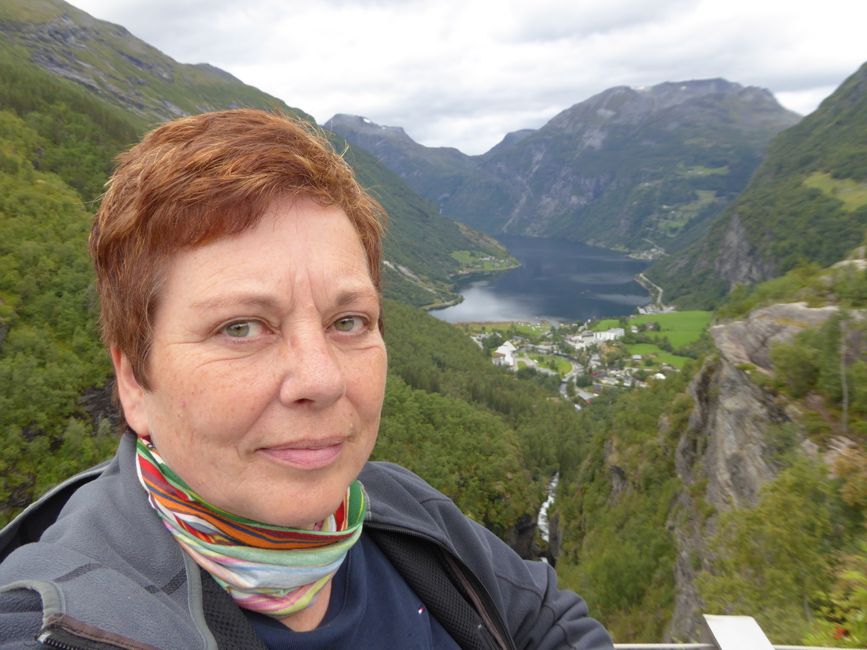
10 Tage von Trondheim nach Bergen
vakantio.de/von-trondheim-nach-bergen
Lærdalsøyri - Borgund - Aurlandsfjellet - Stegastein - Flaambahn - Flaam
Pubblicato: 21.05.2021
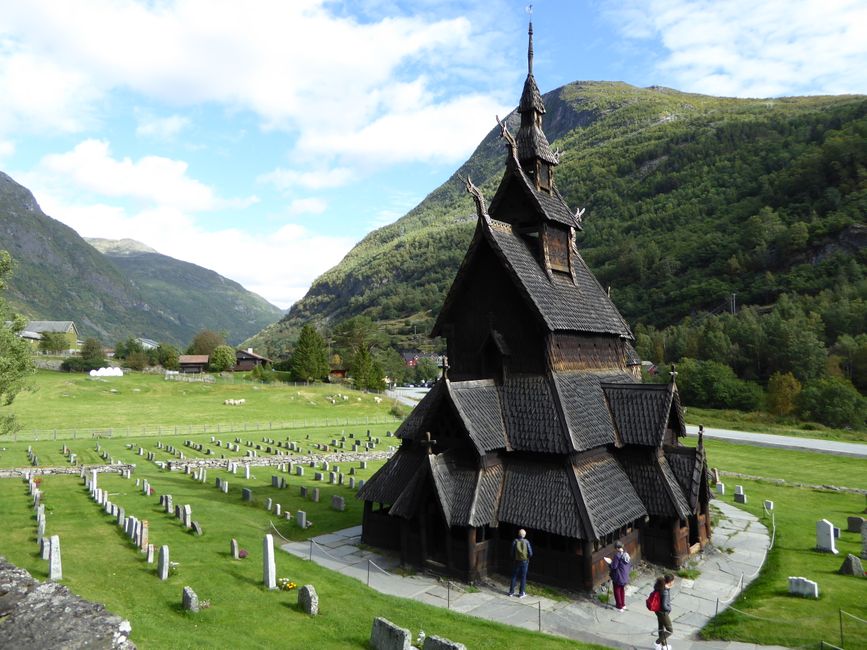



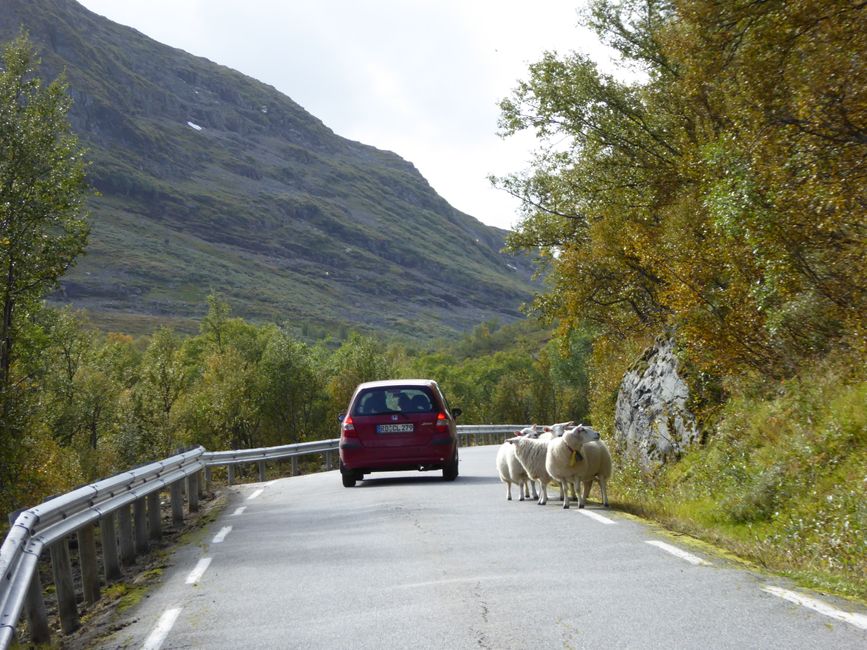
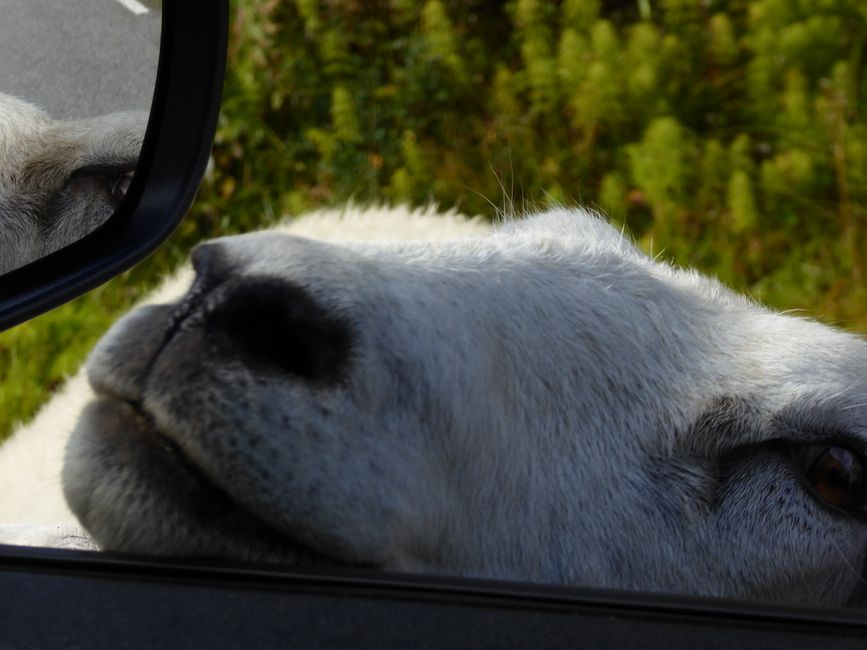
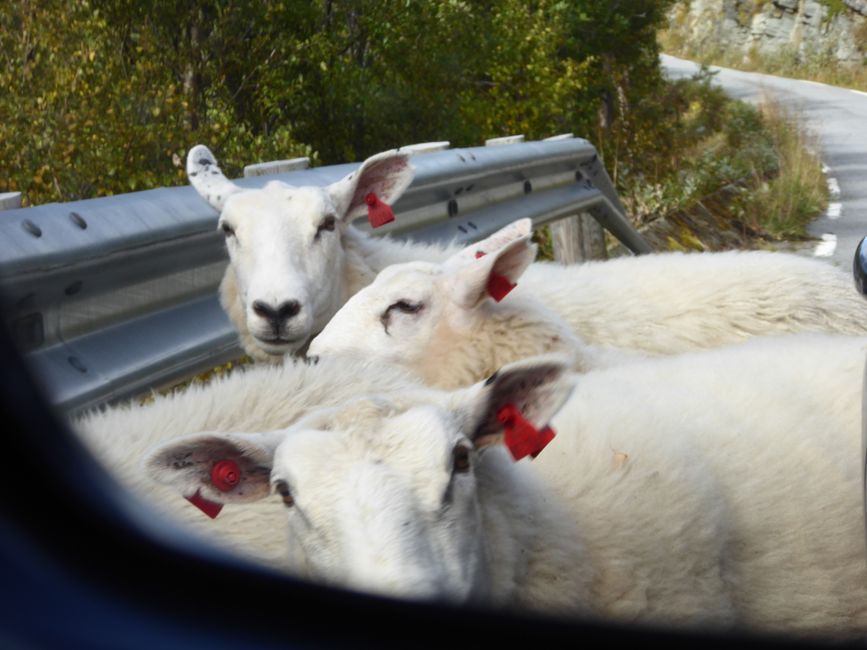
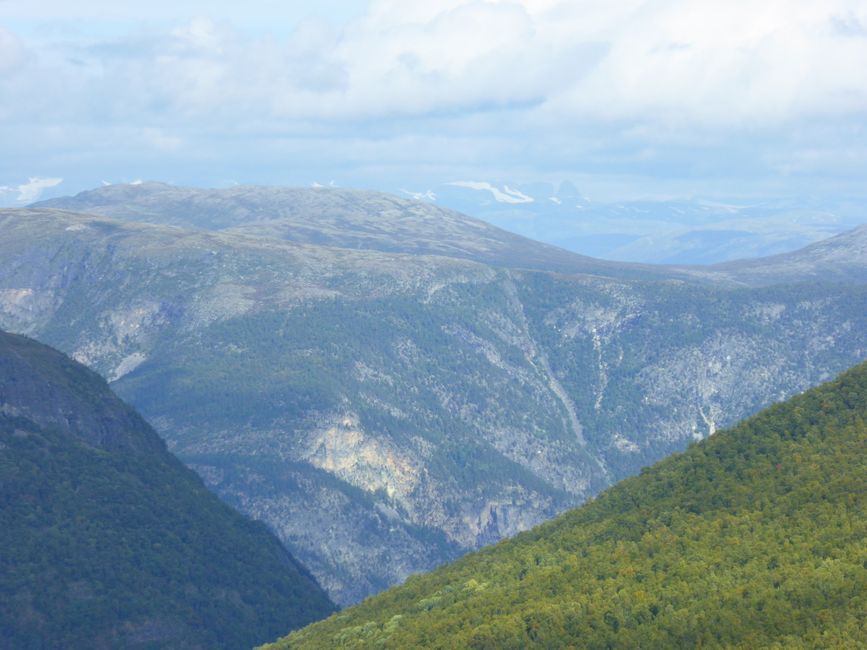
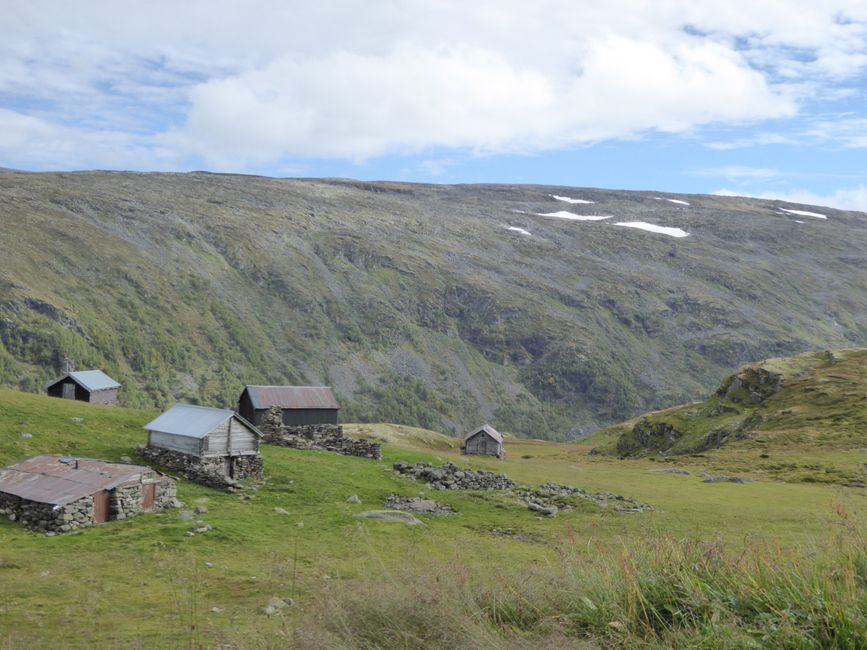
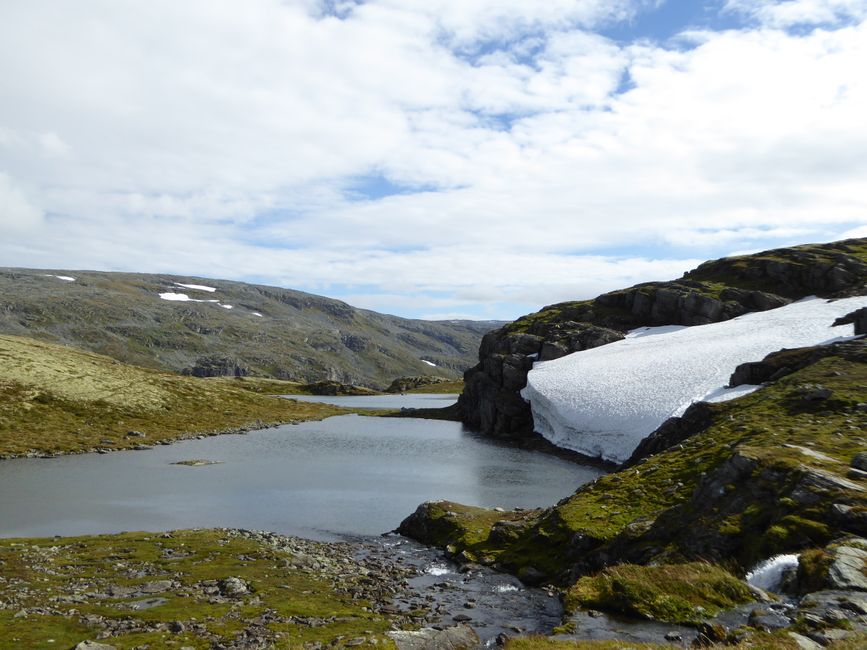
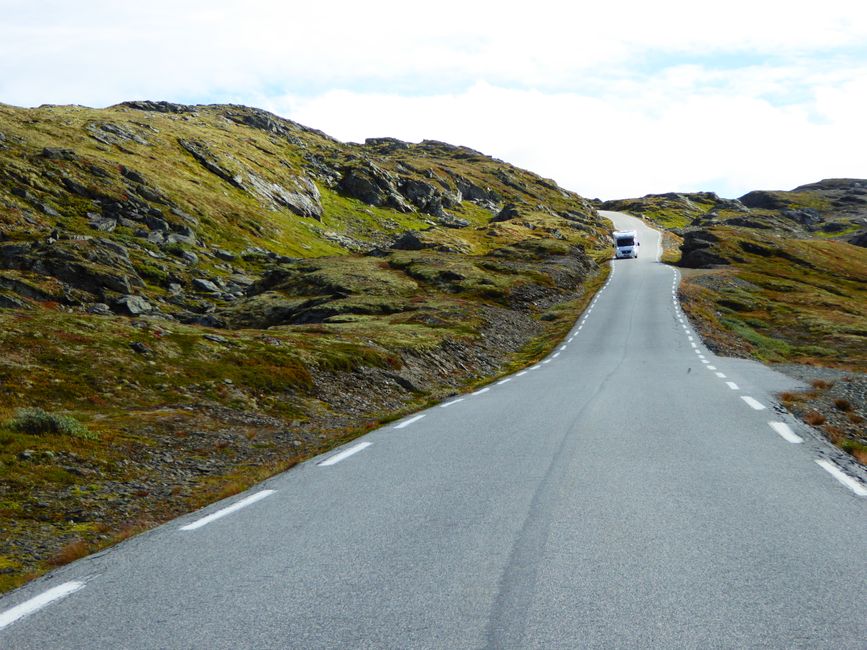
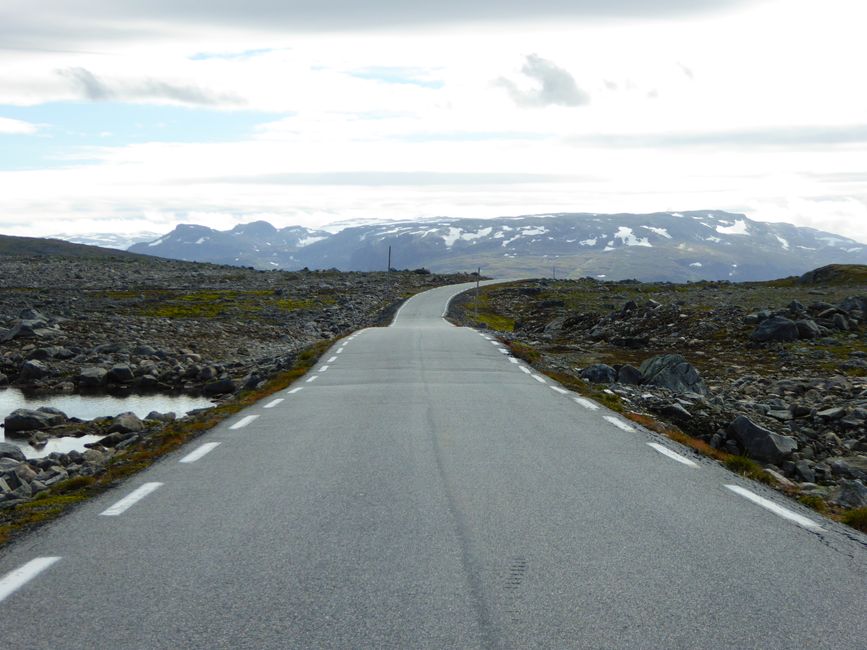
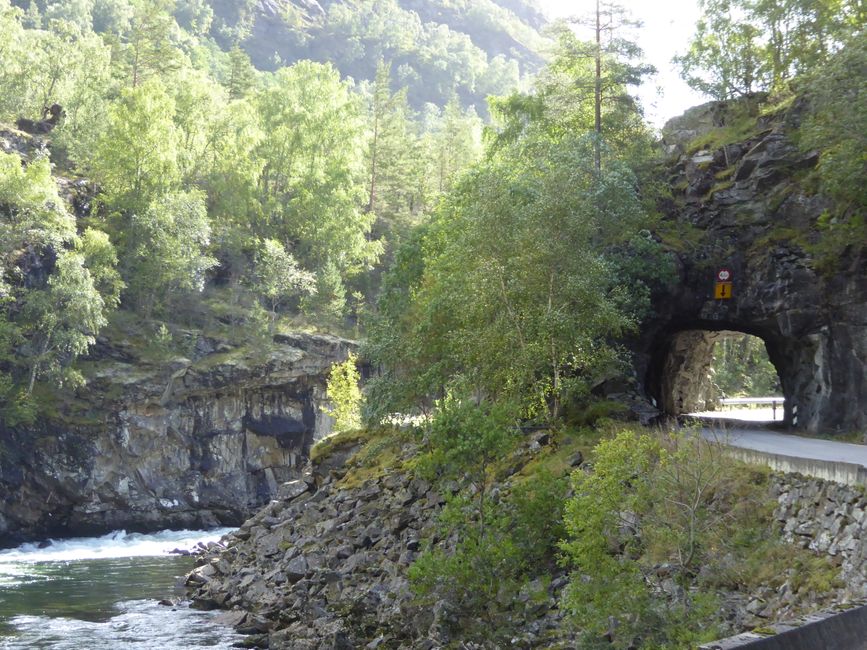
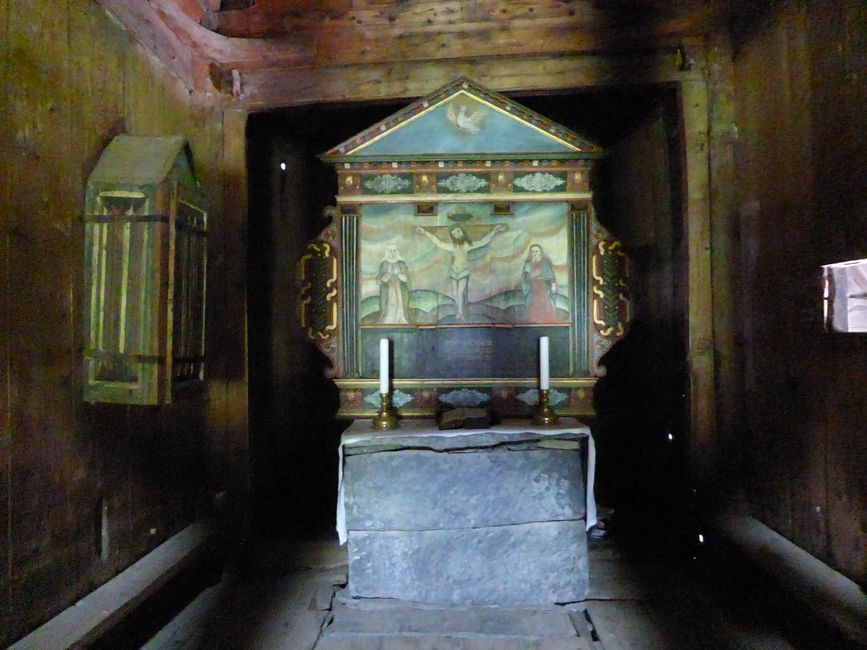
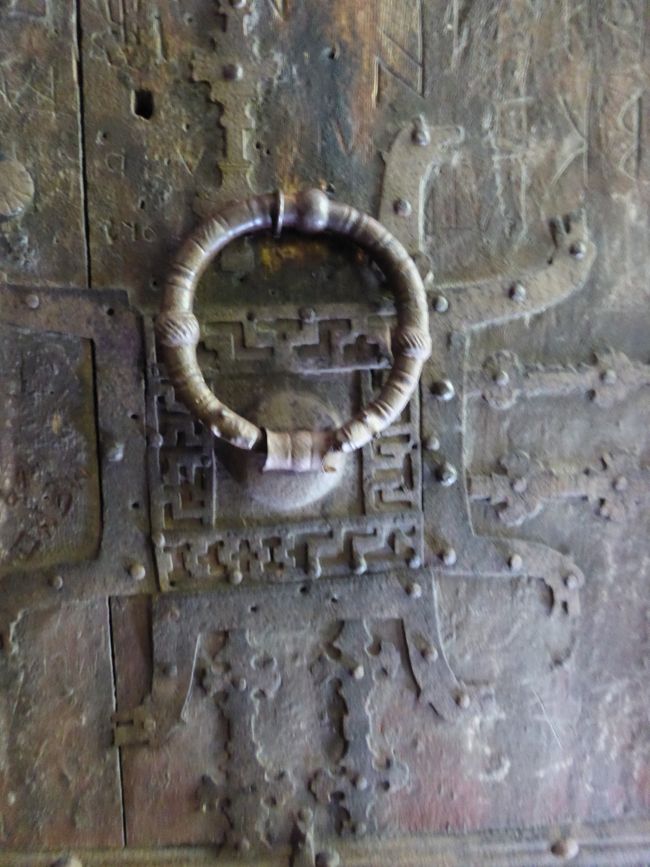
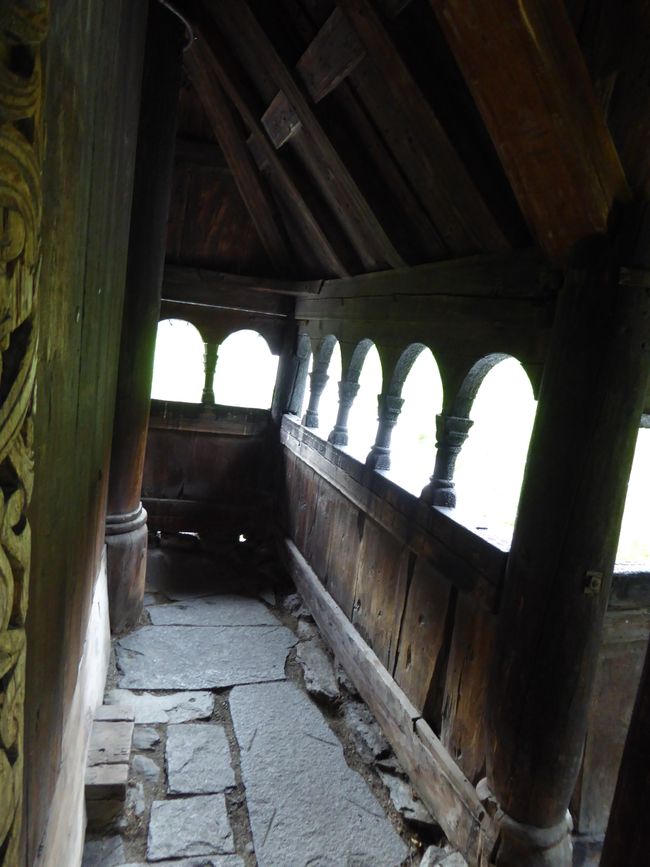
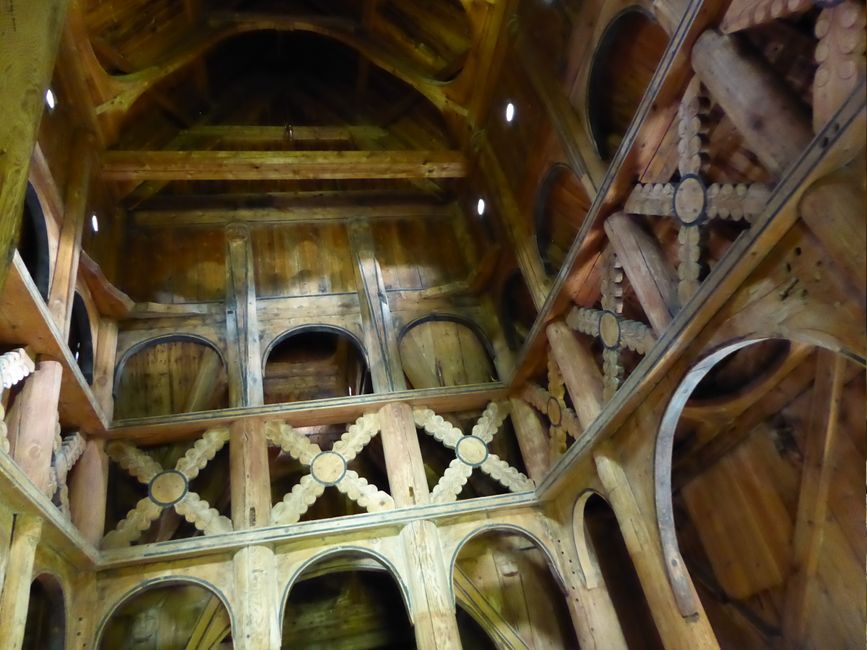
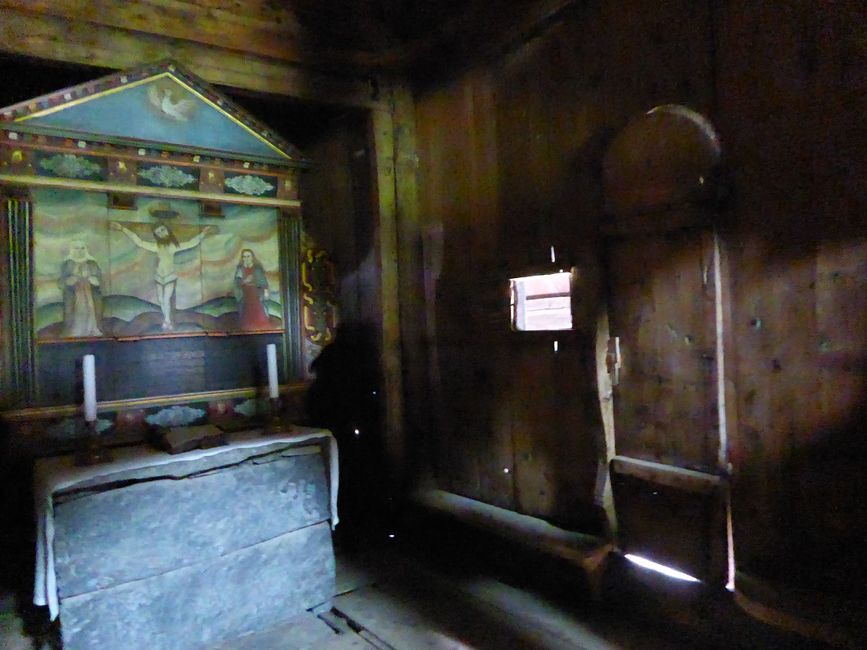
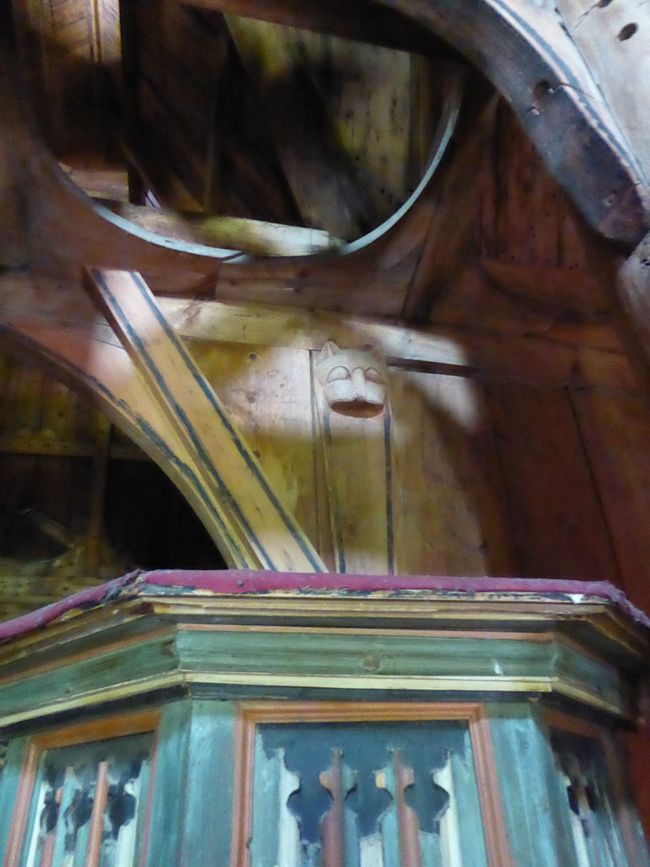
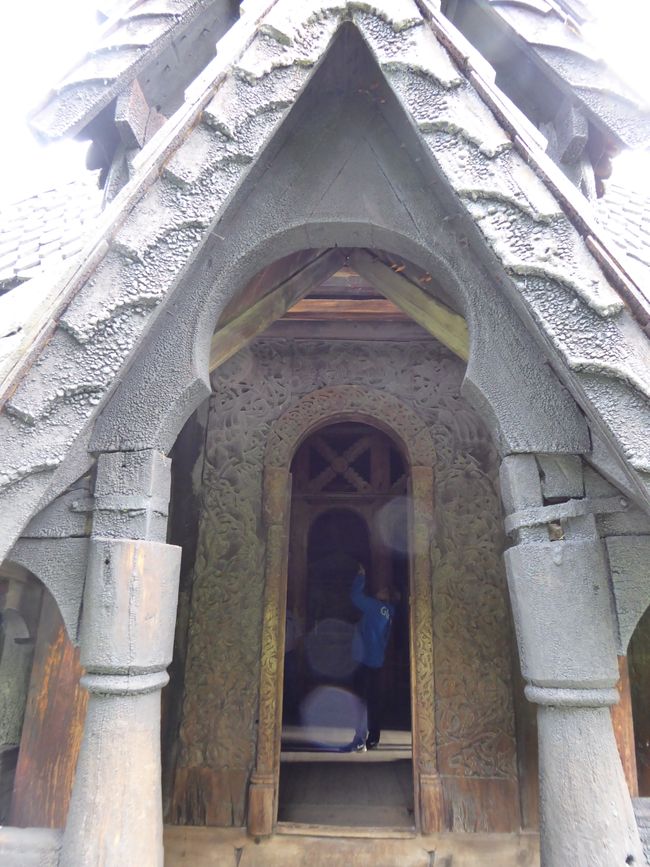
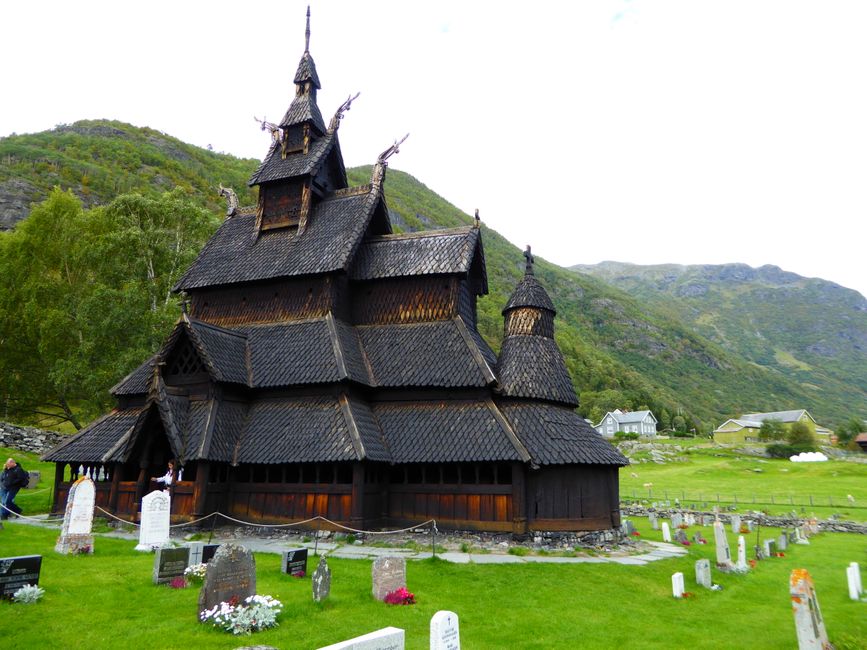
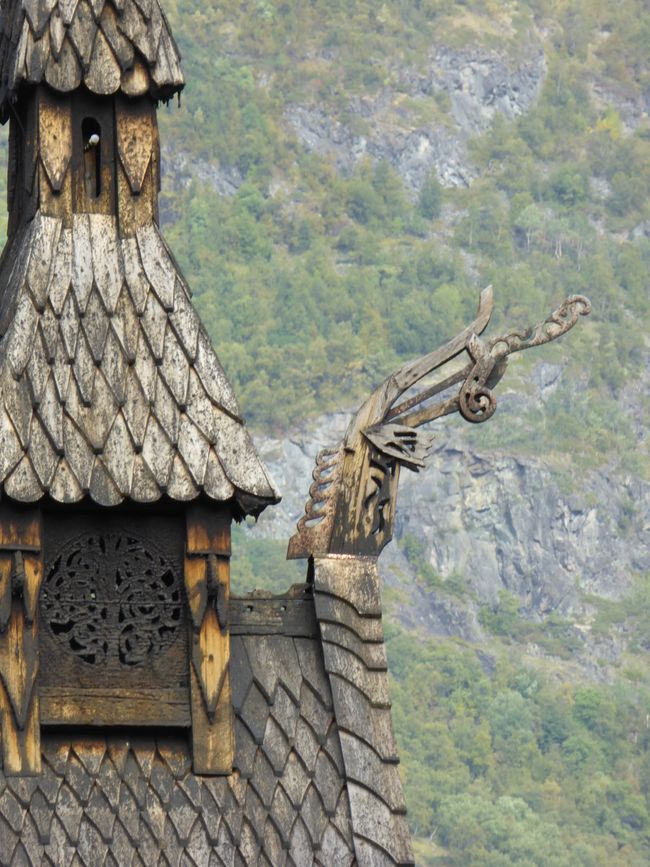
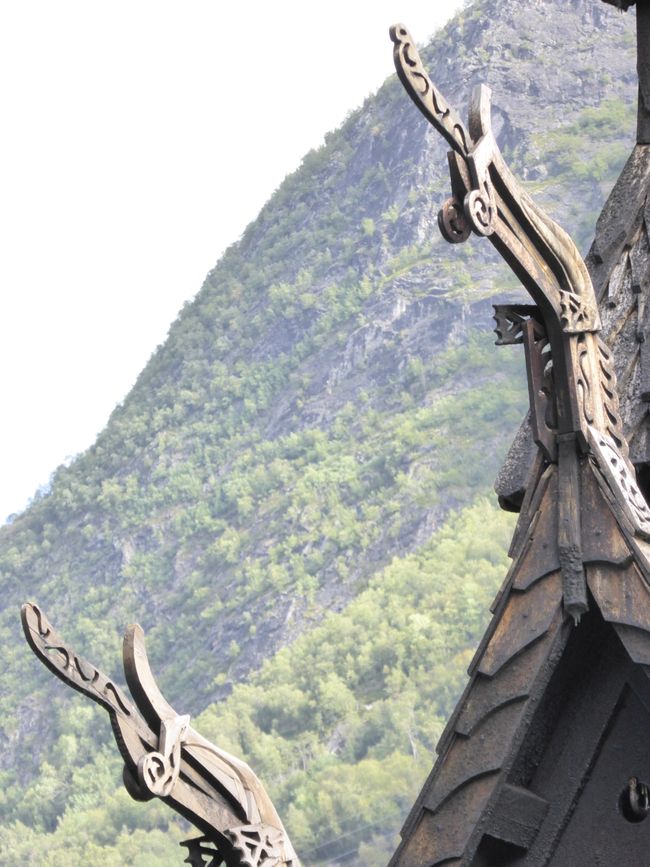
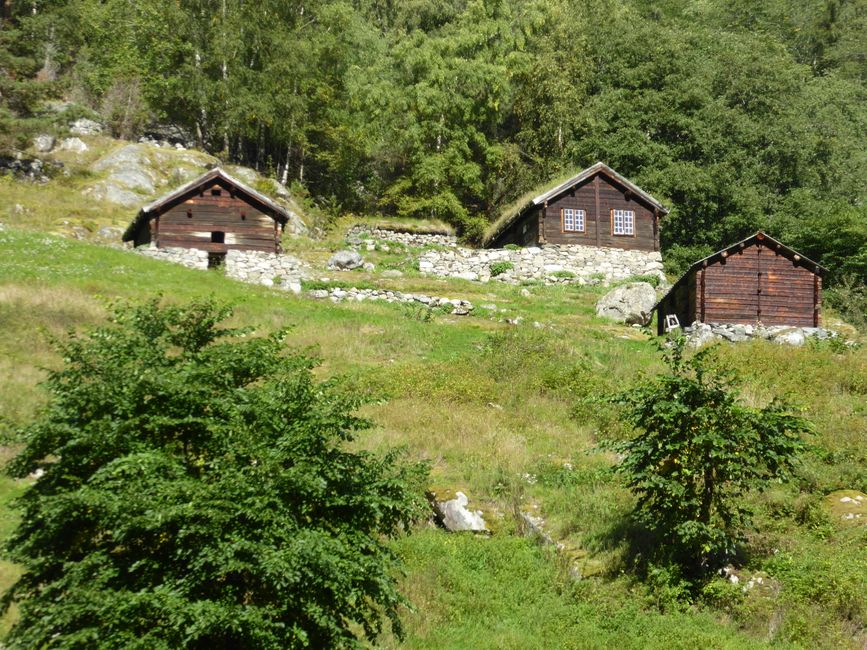
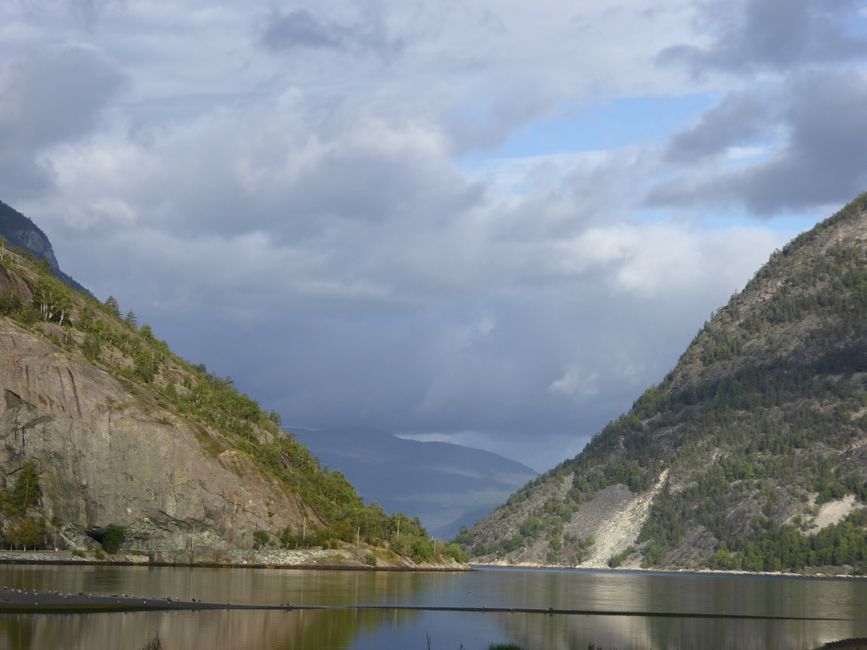
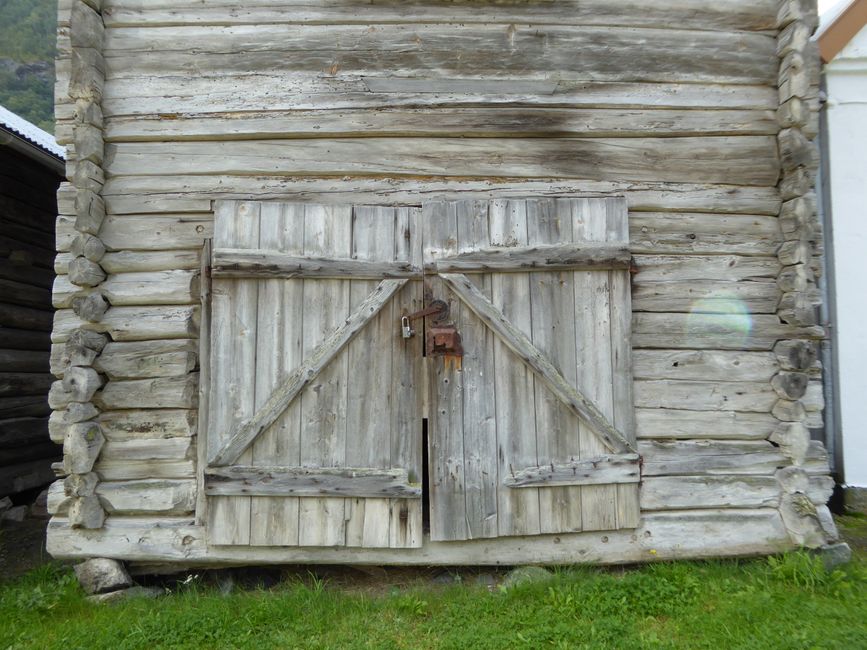
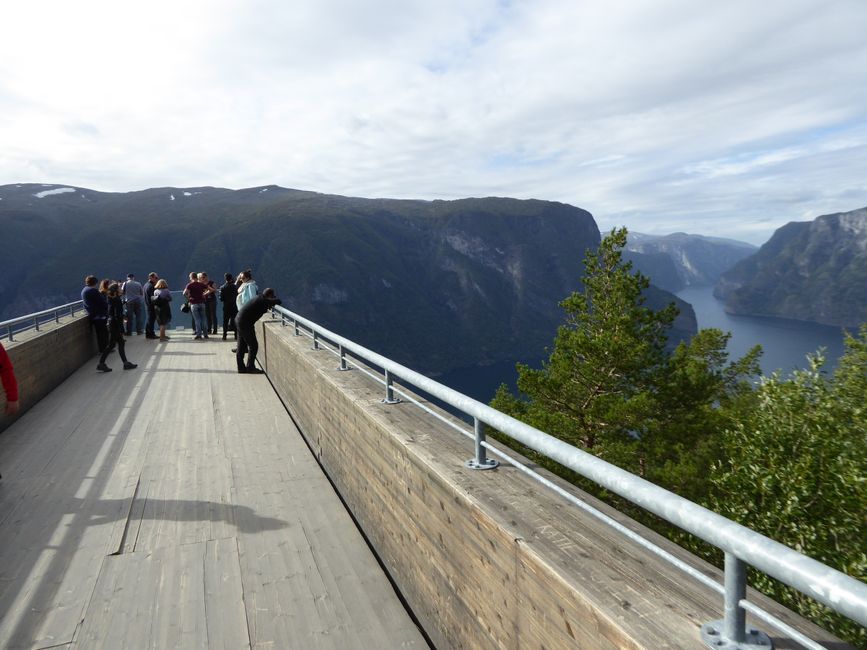
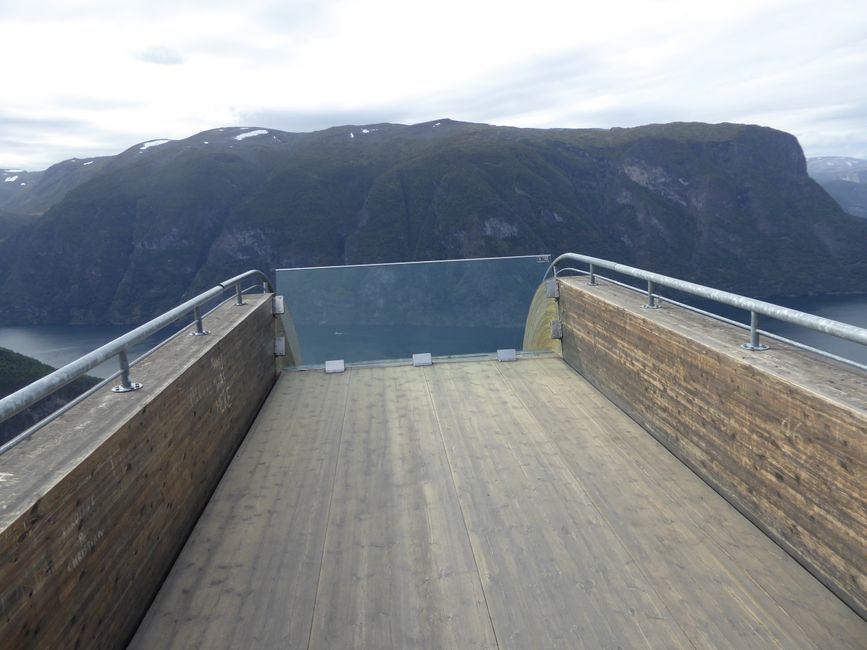
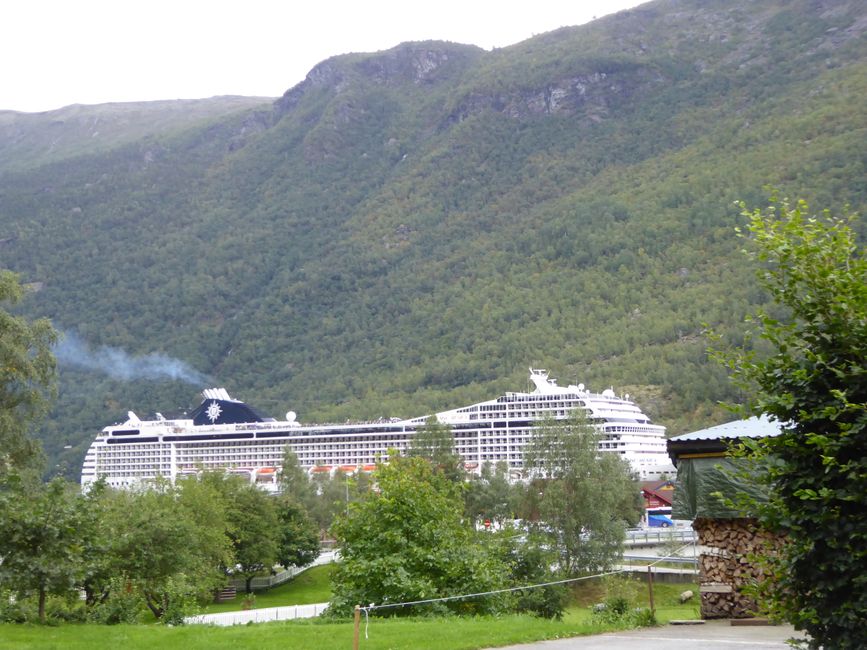
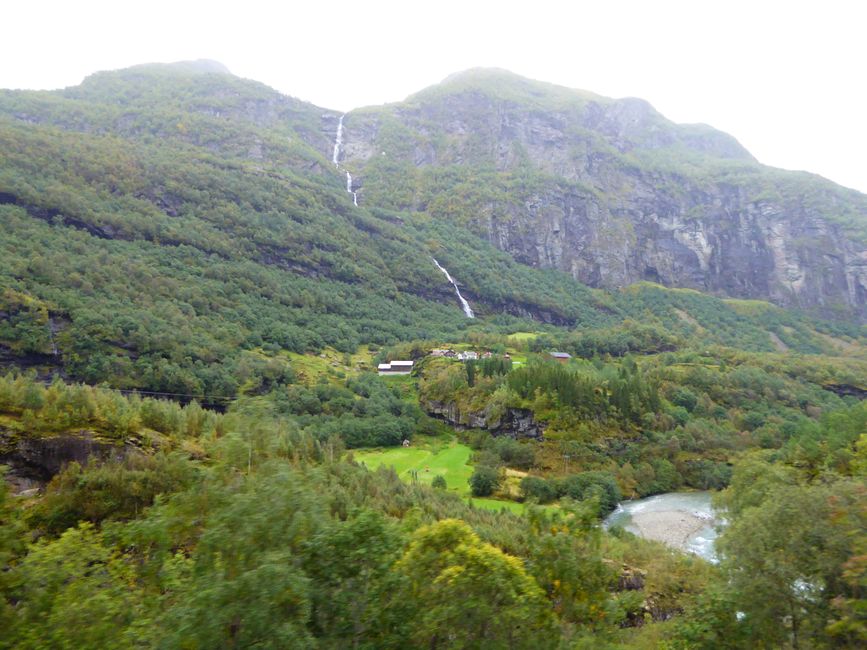
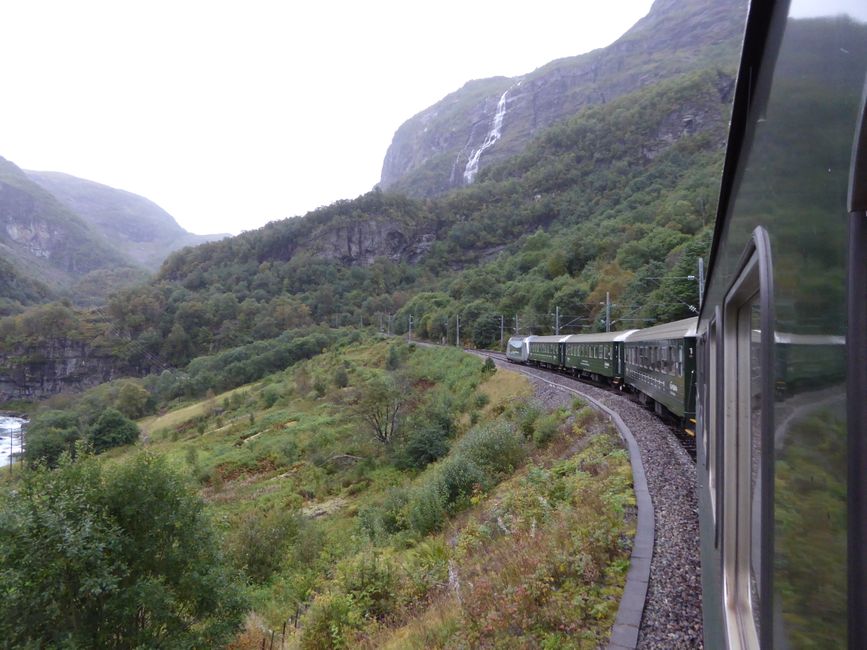
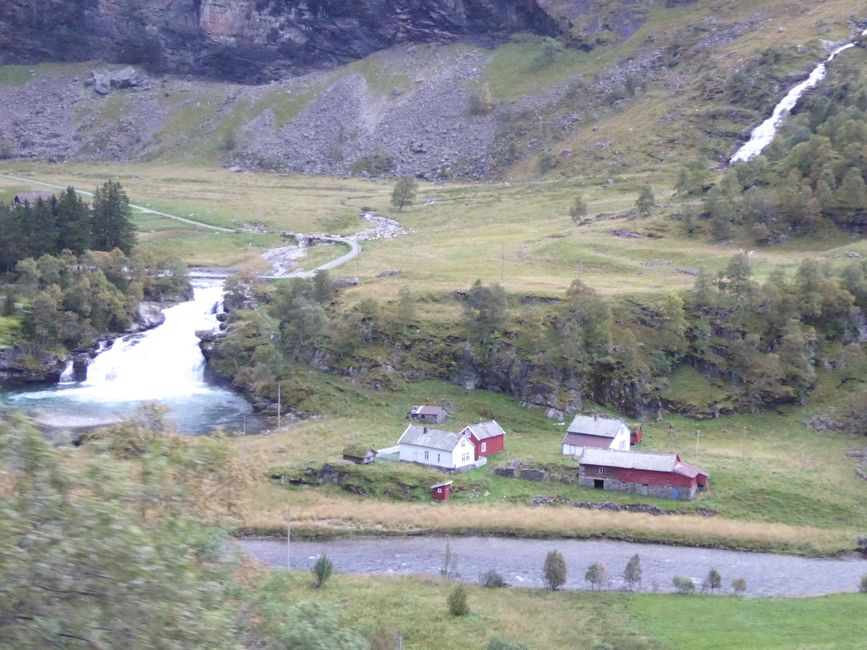
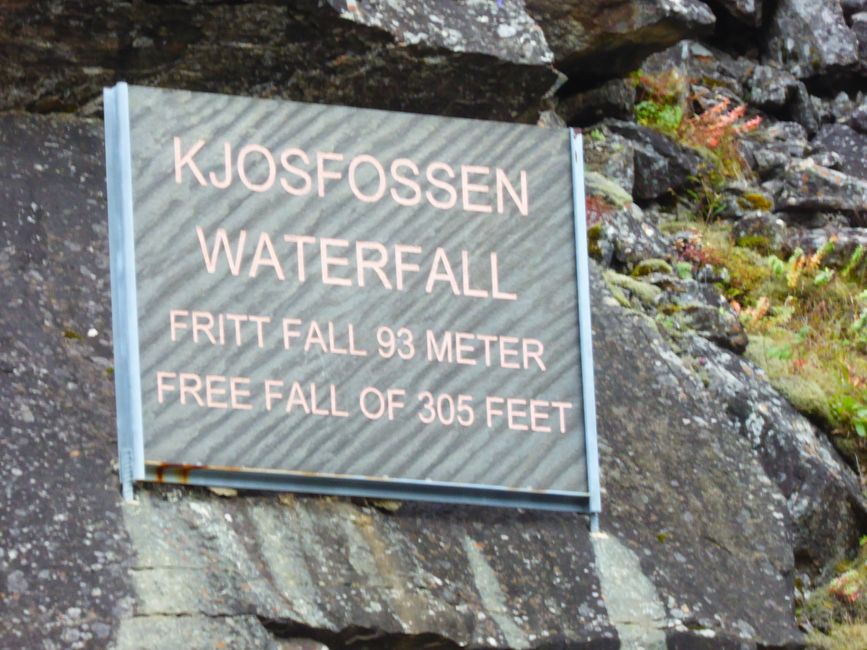
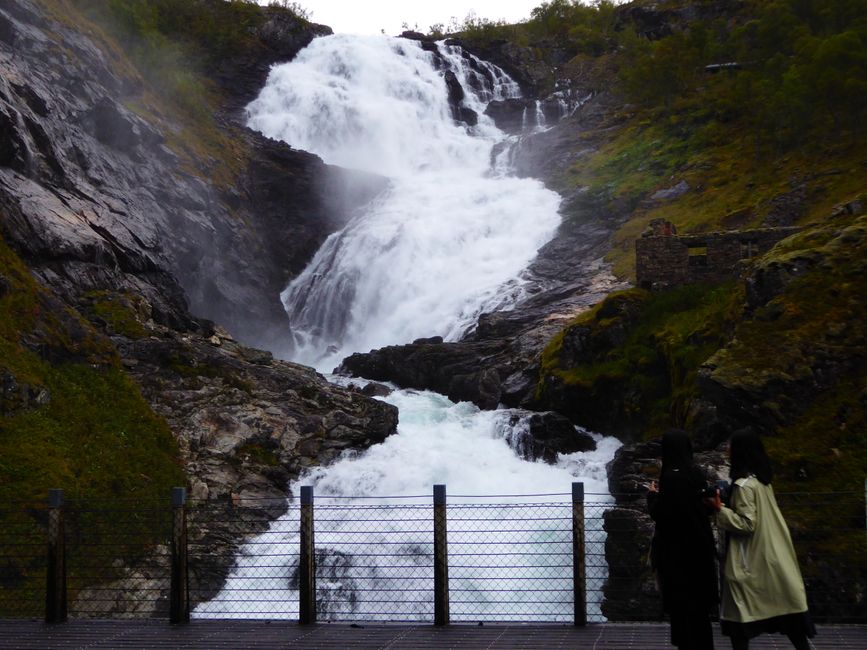
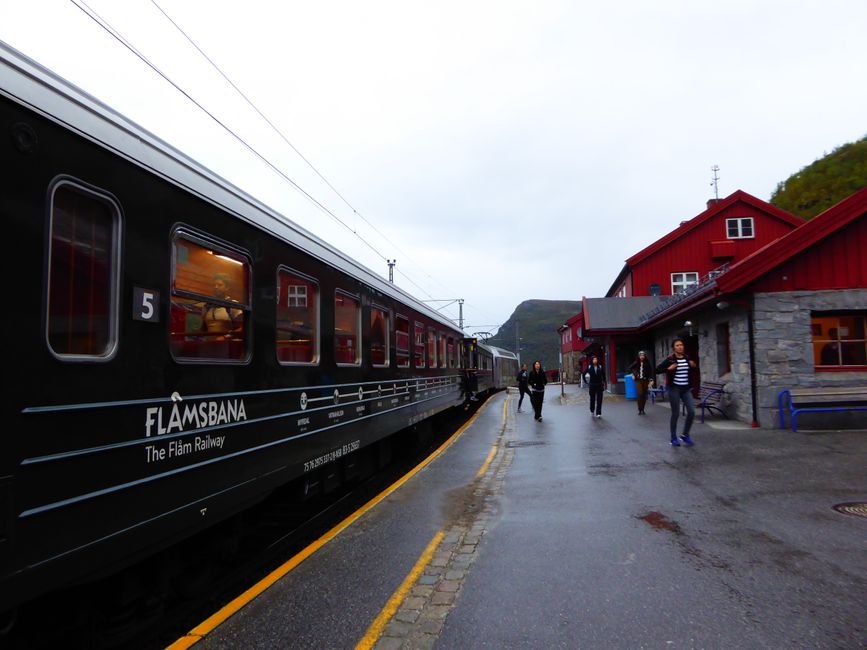
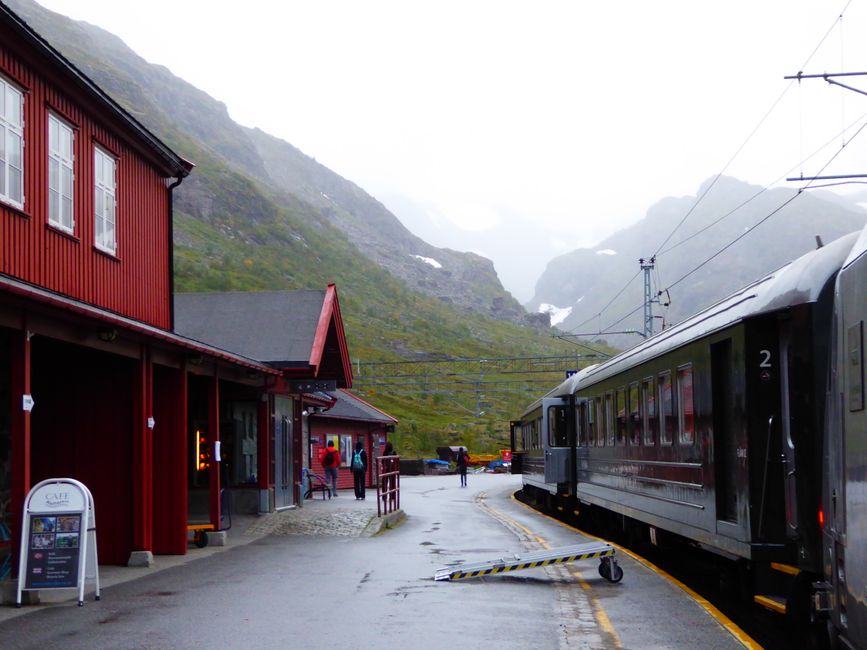
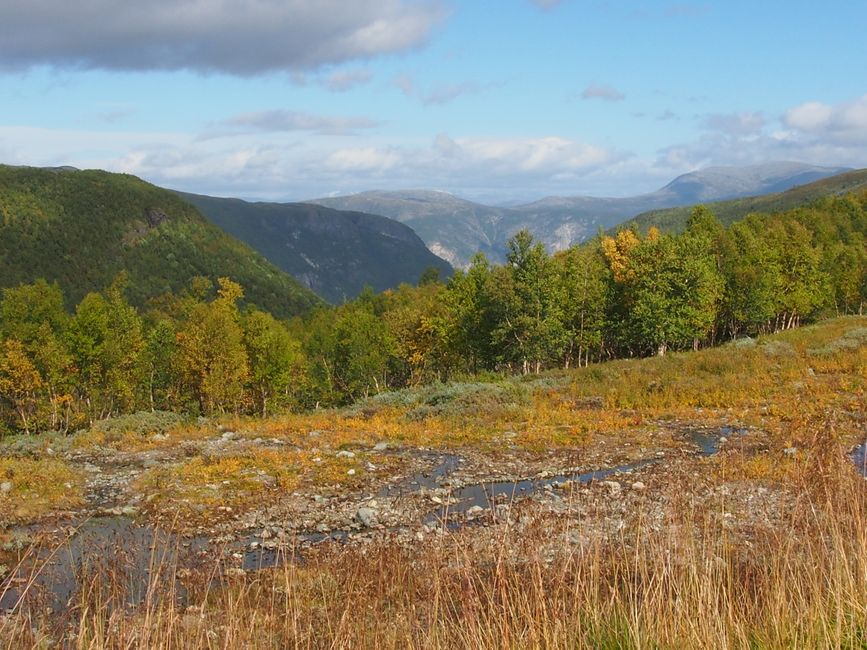
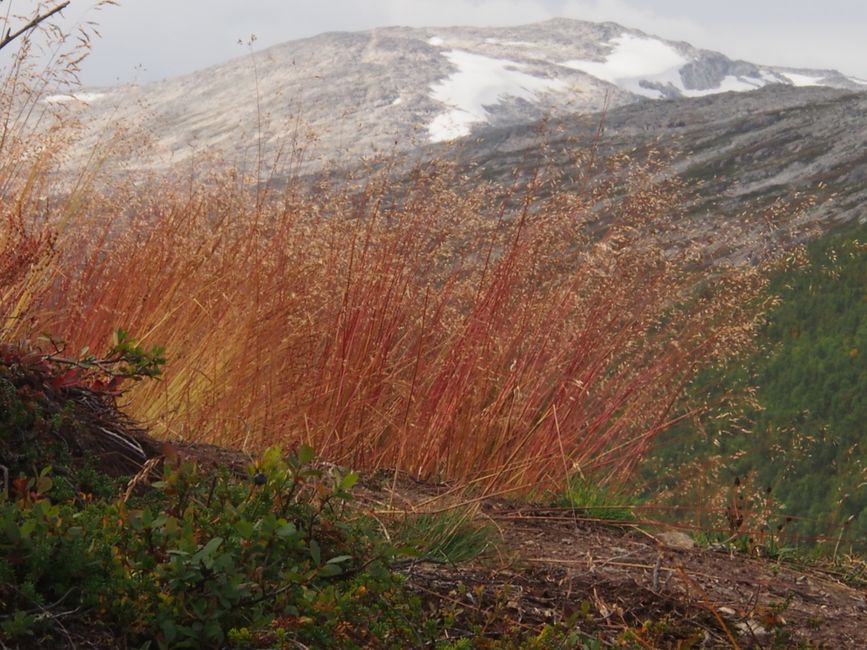
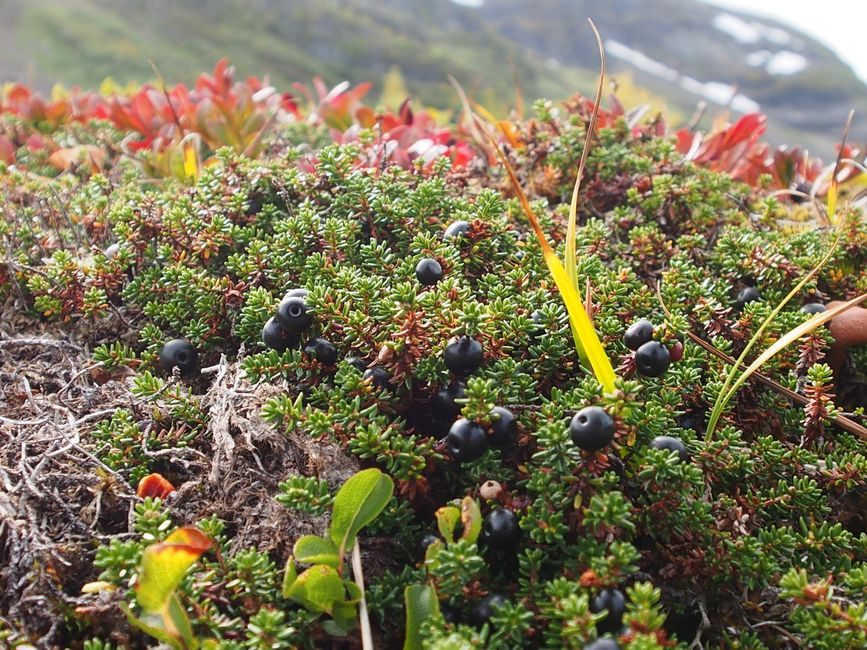
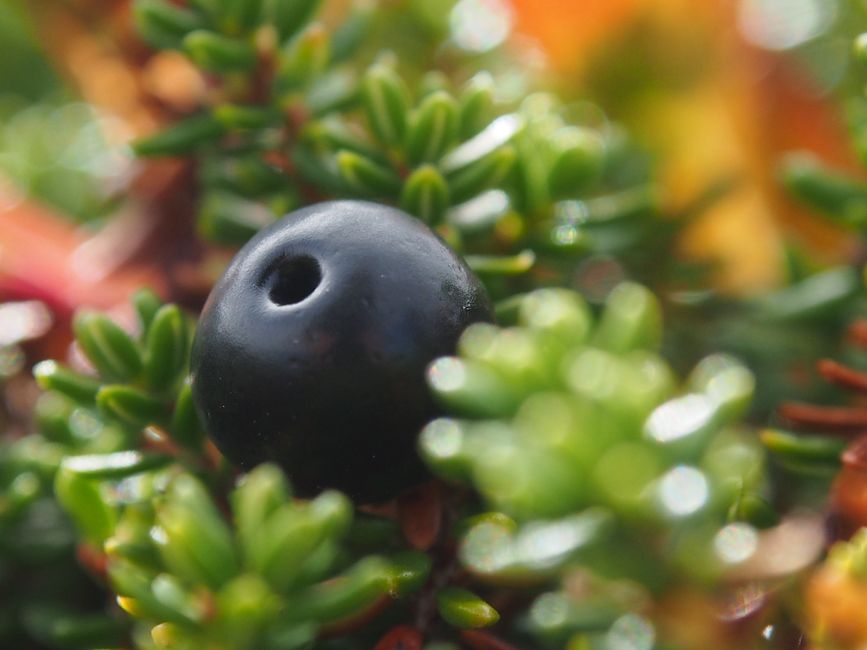
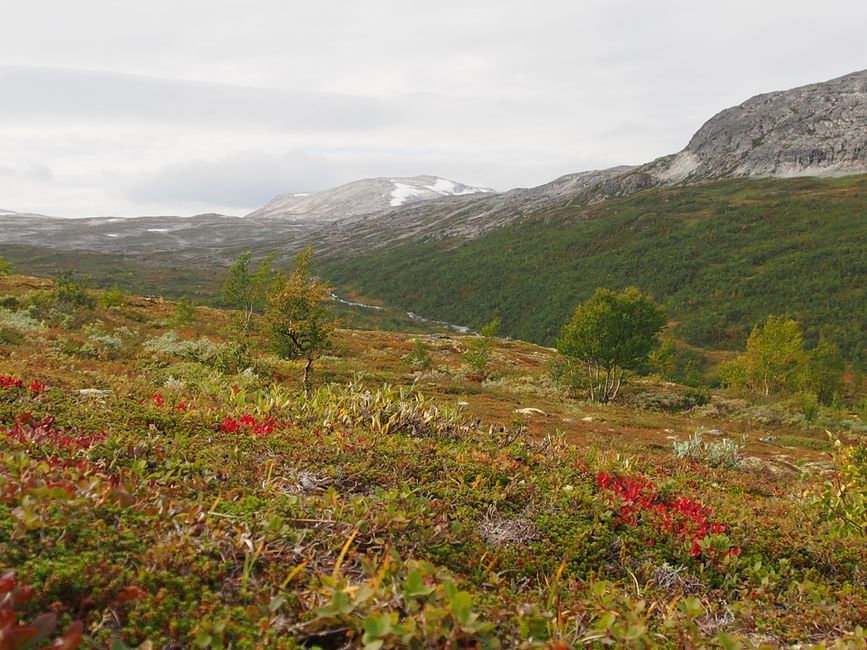
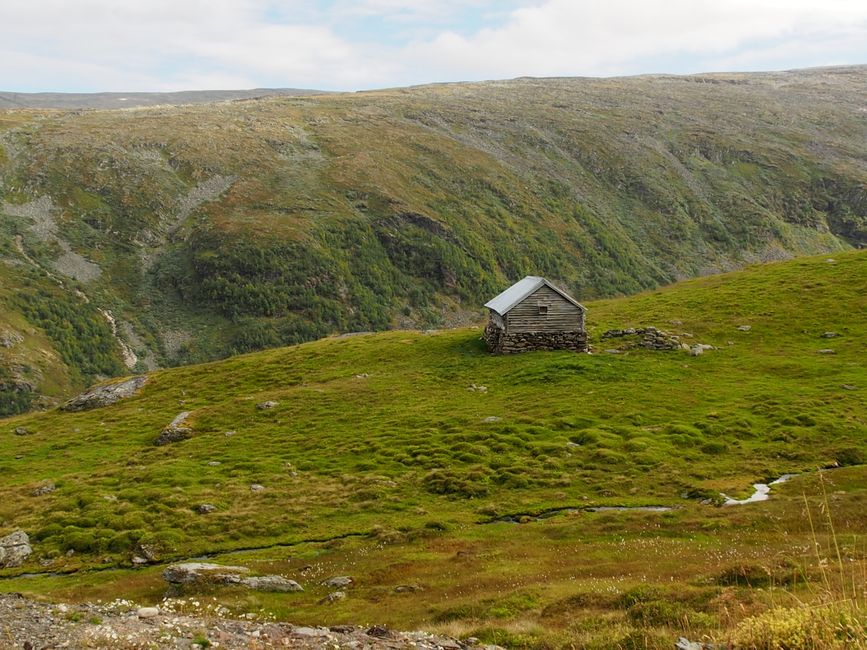
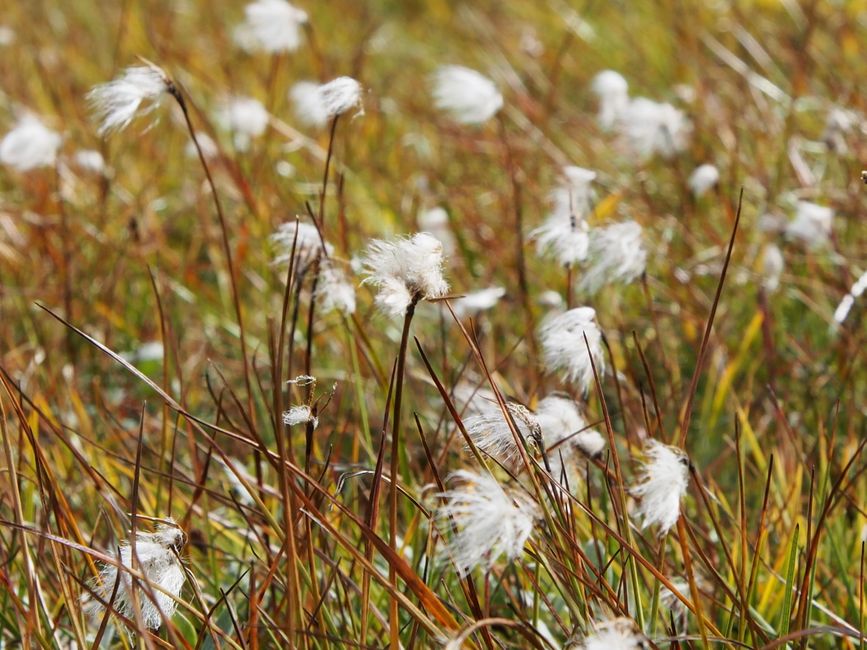
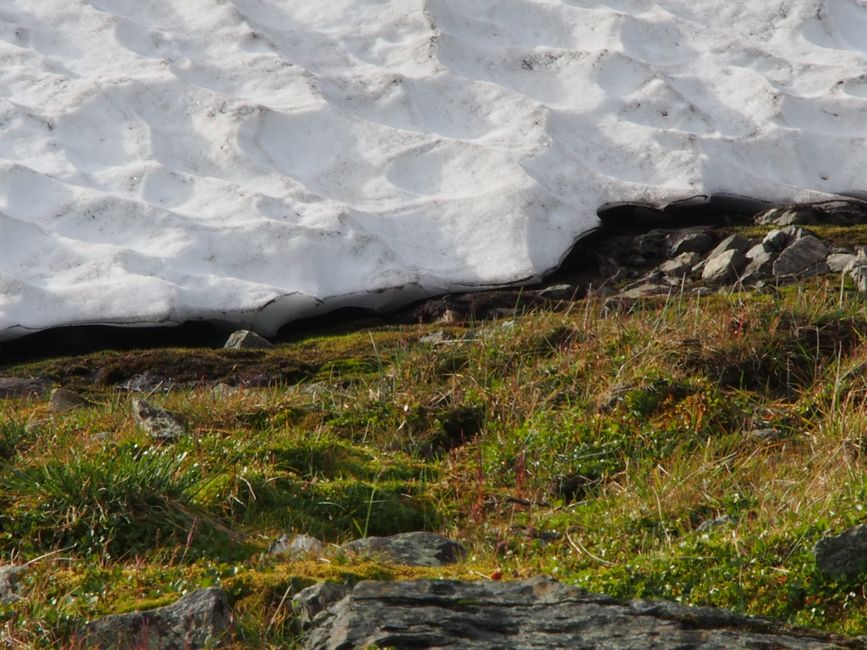
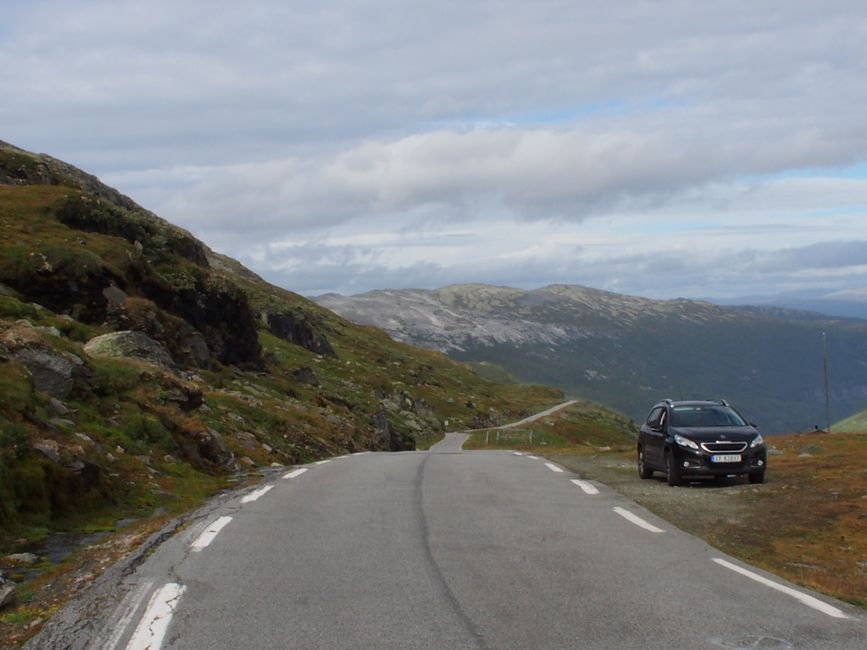
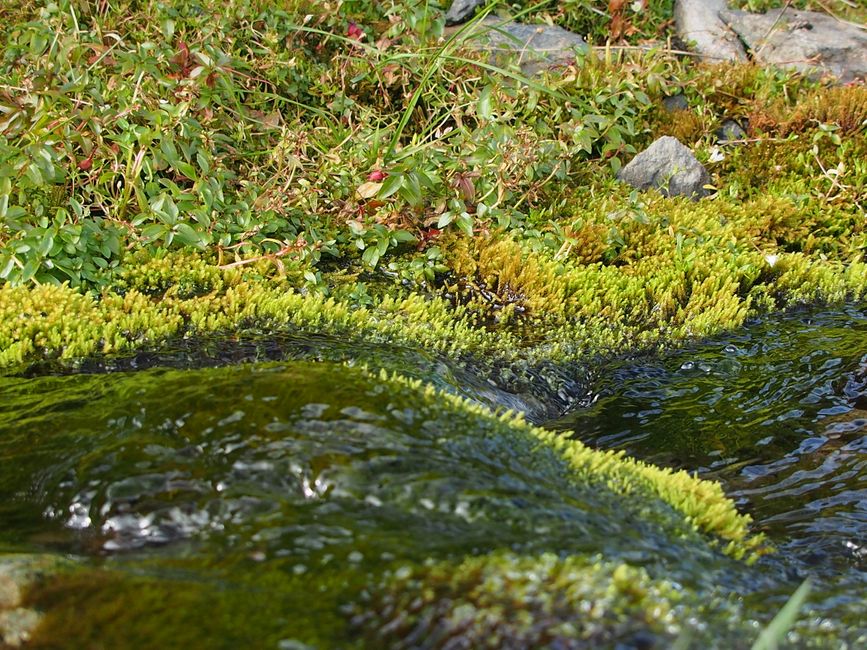
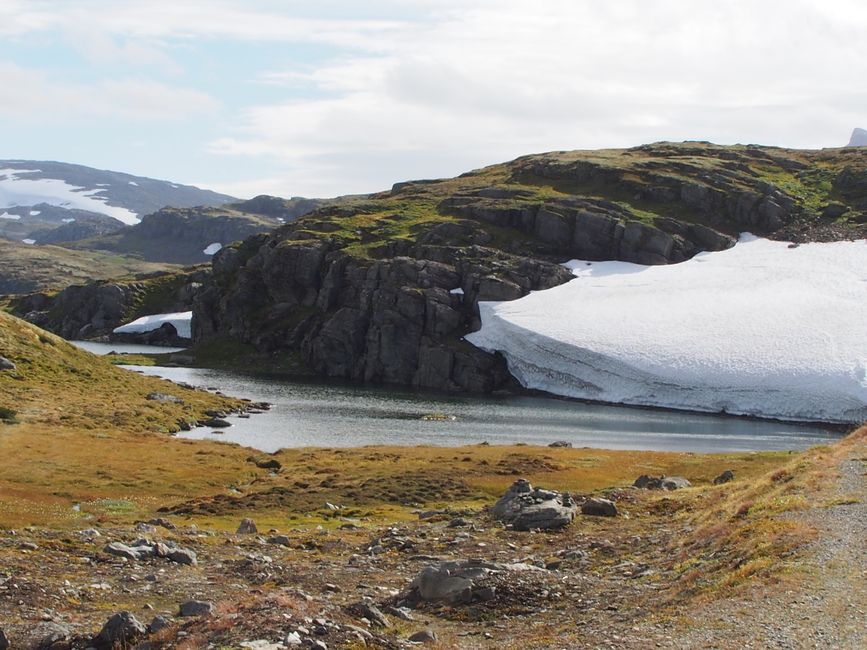
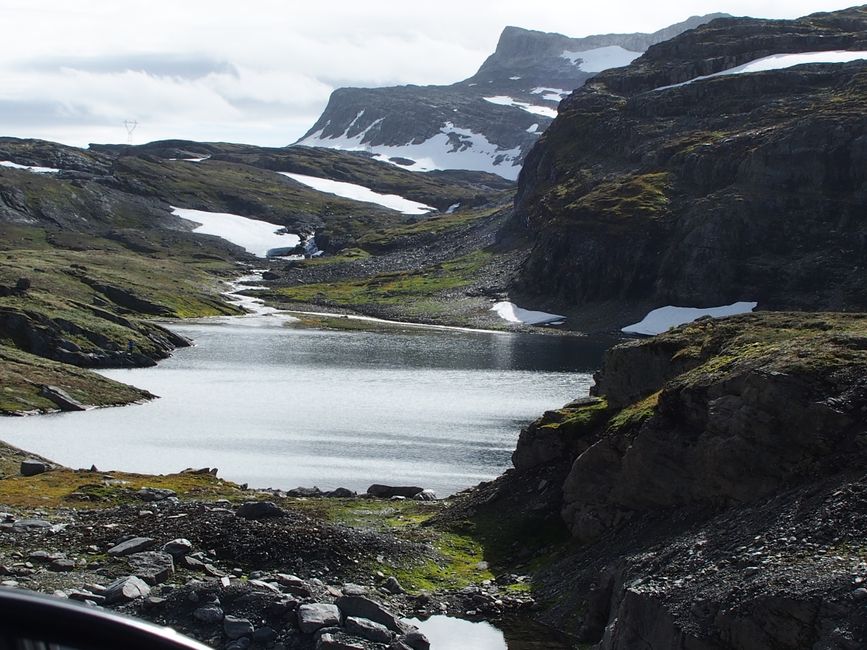
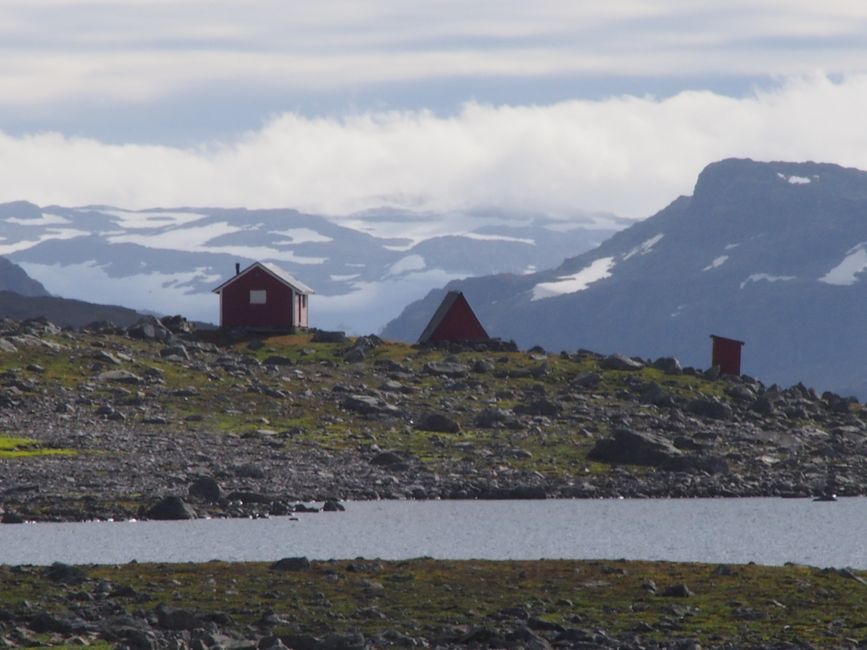
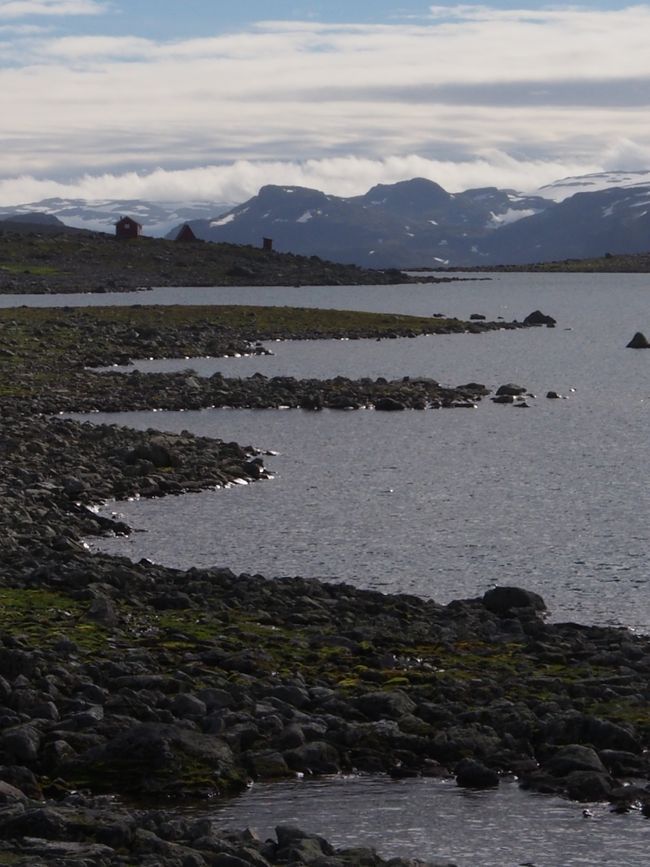
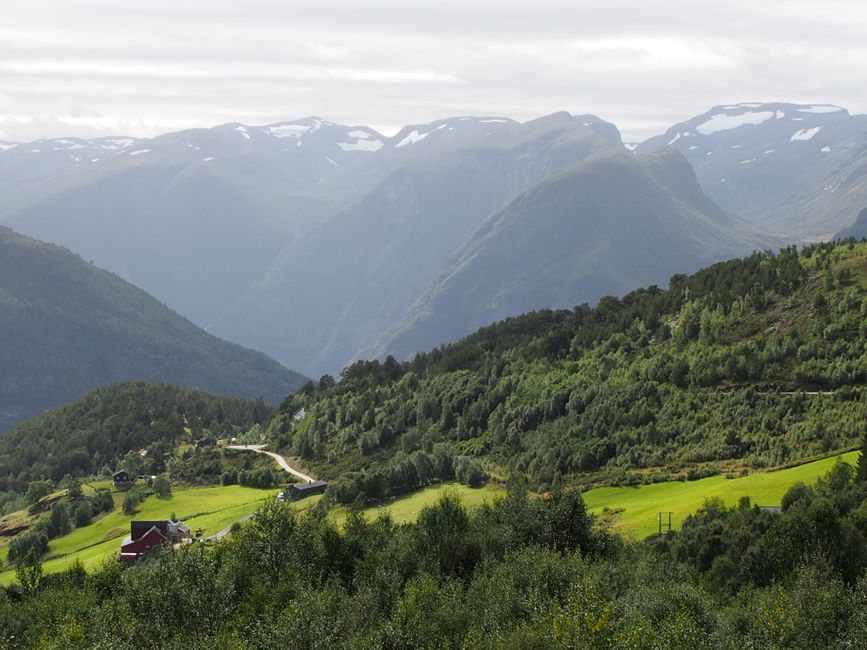
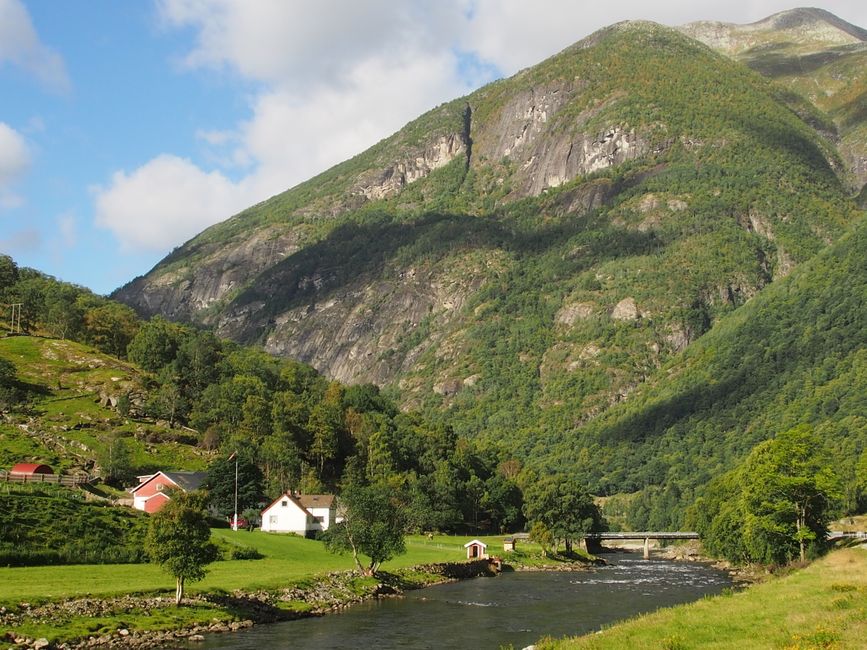
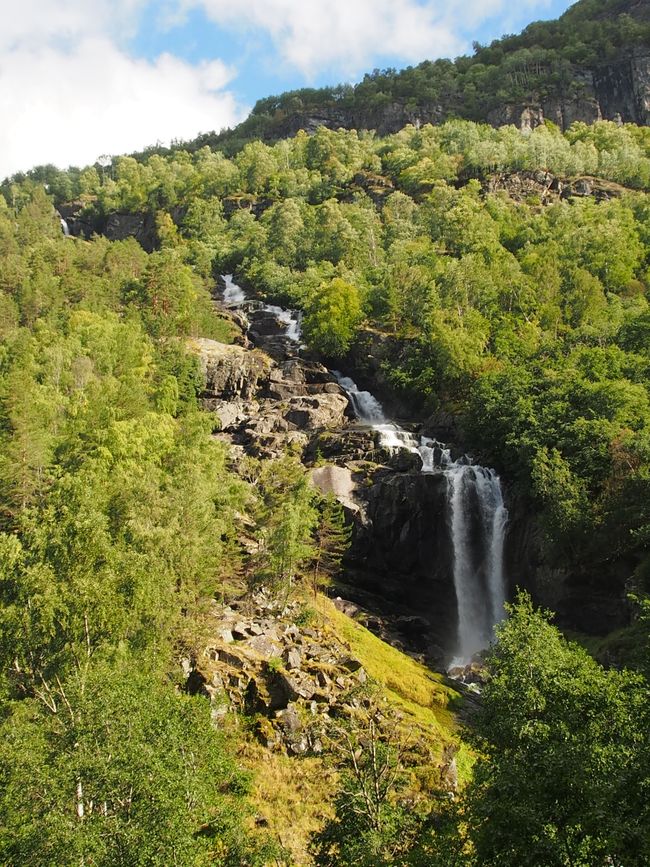
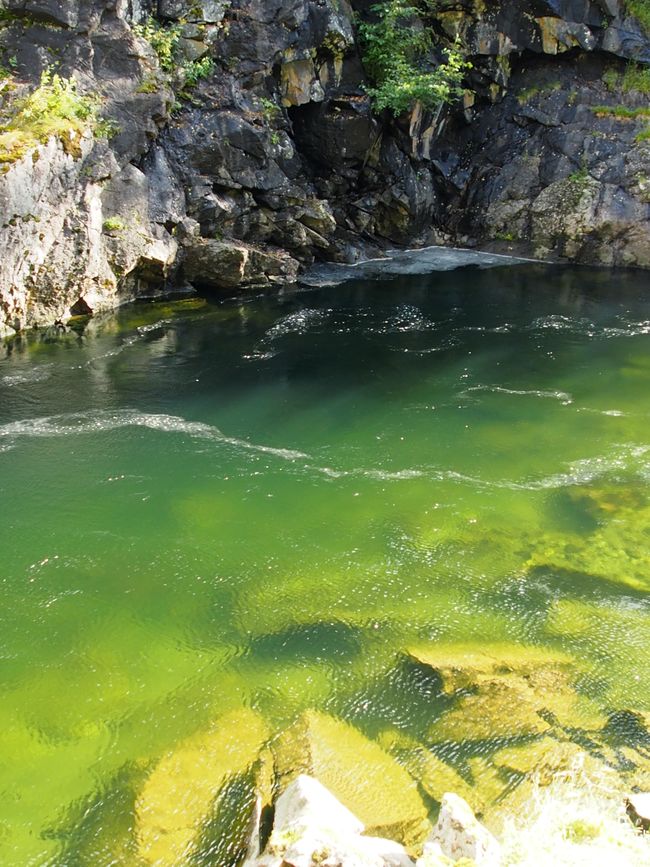
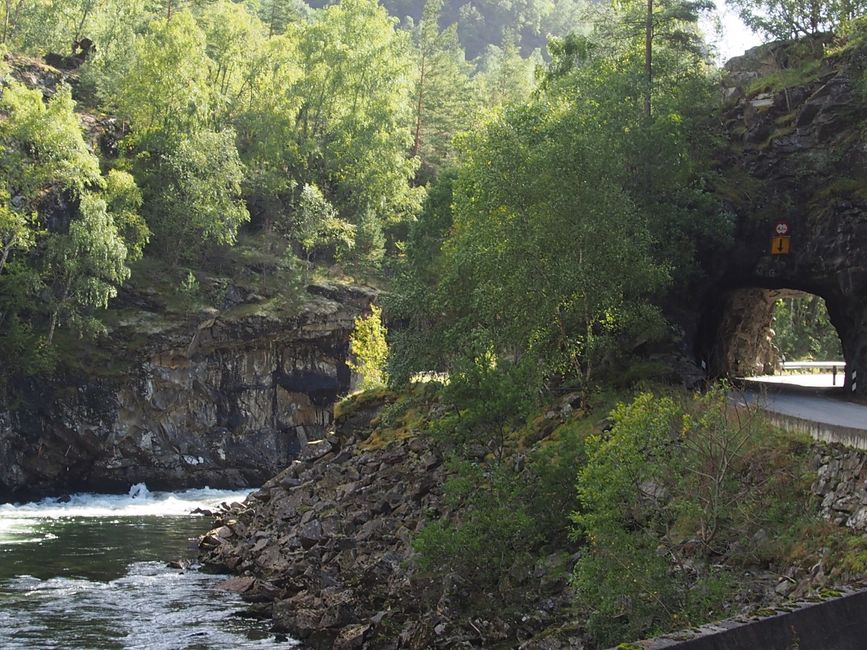
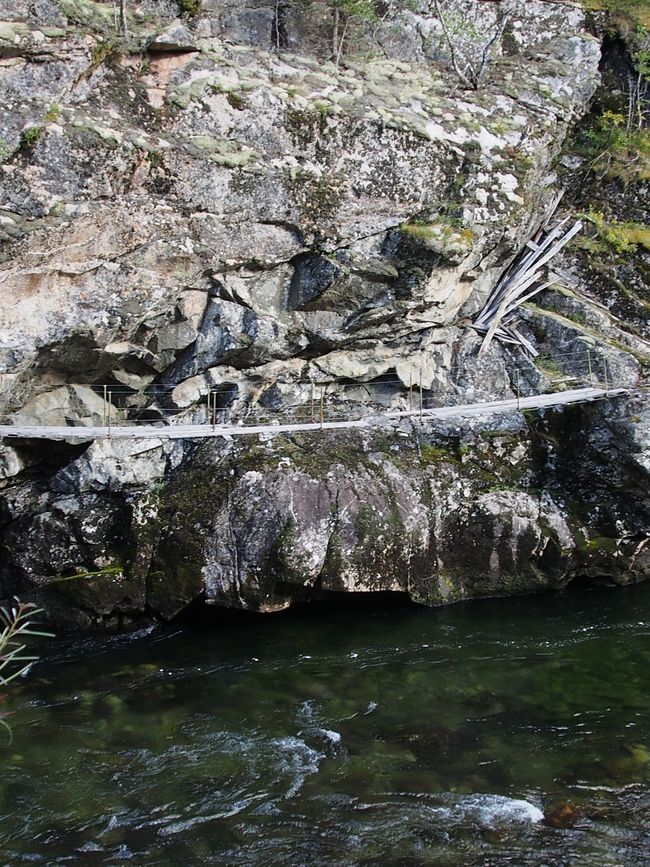
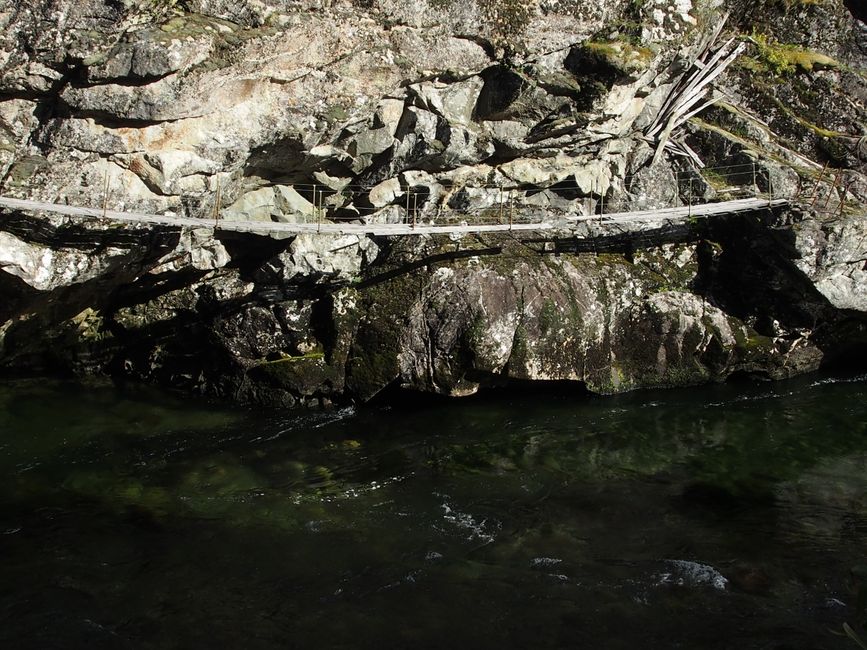
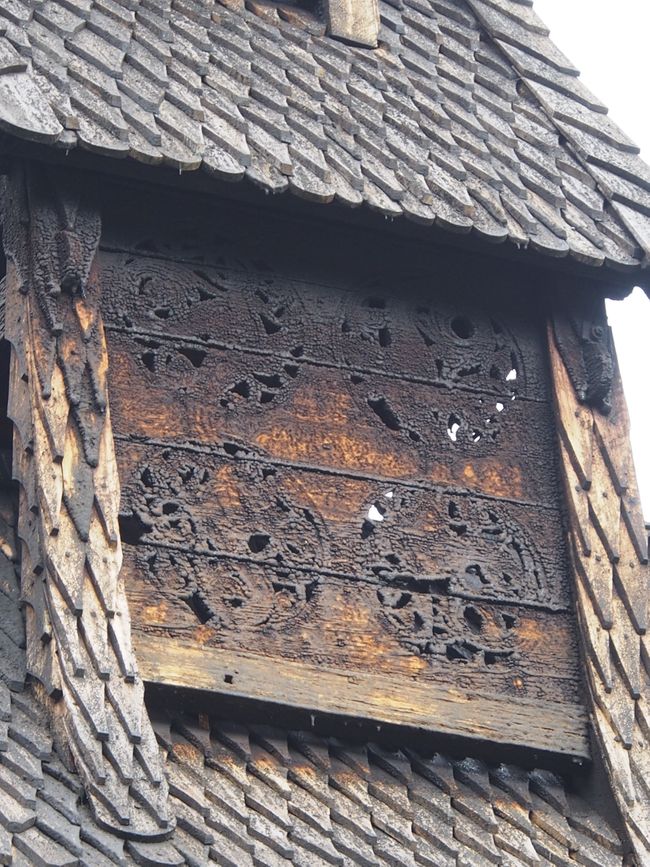
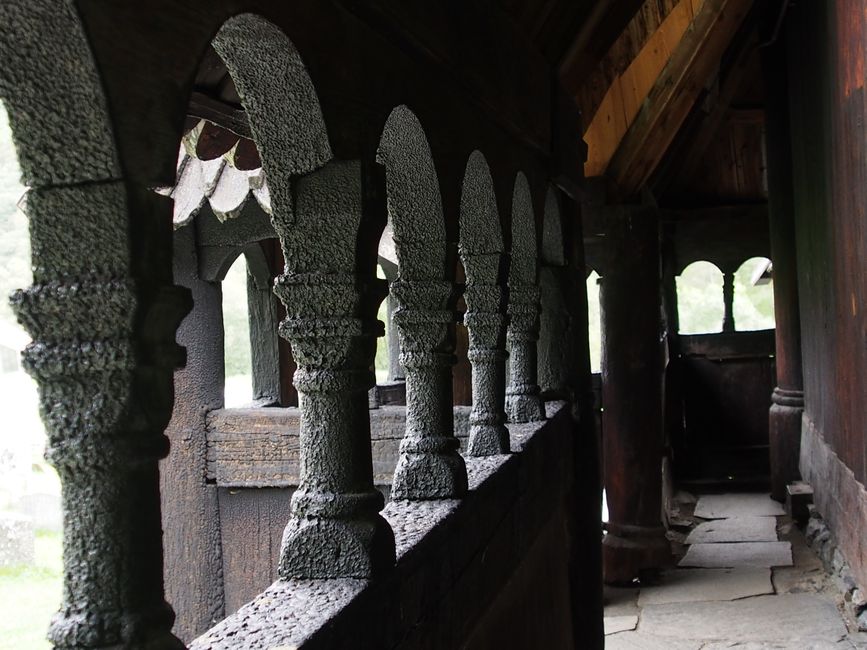
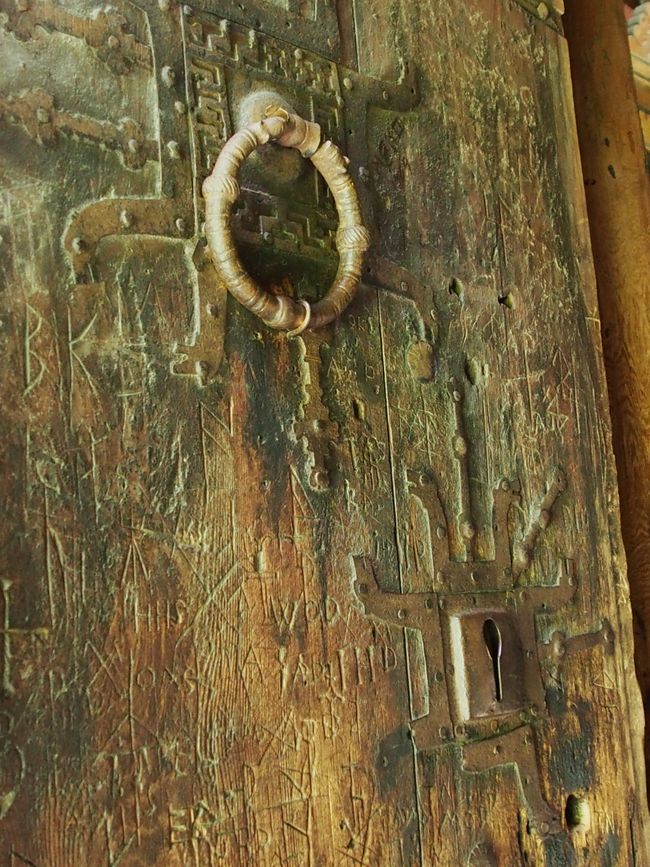
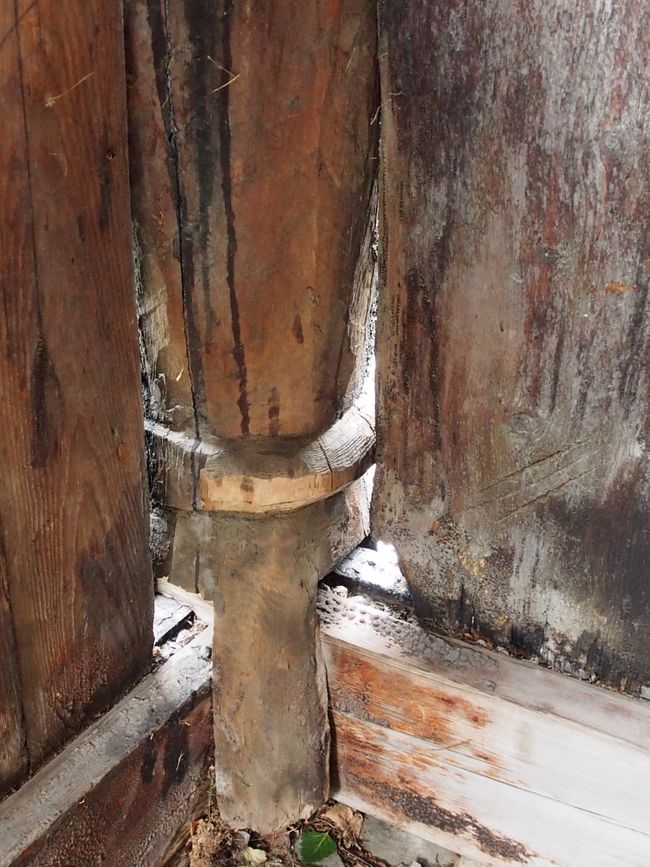
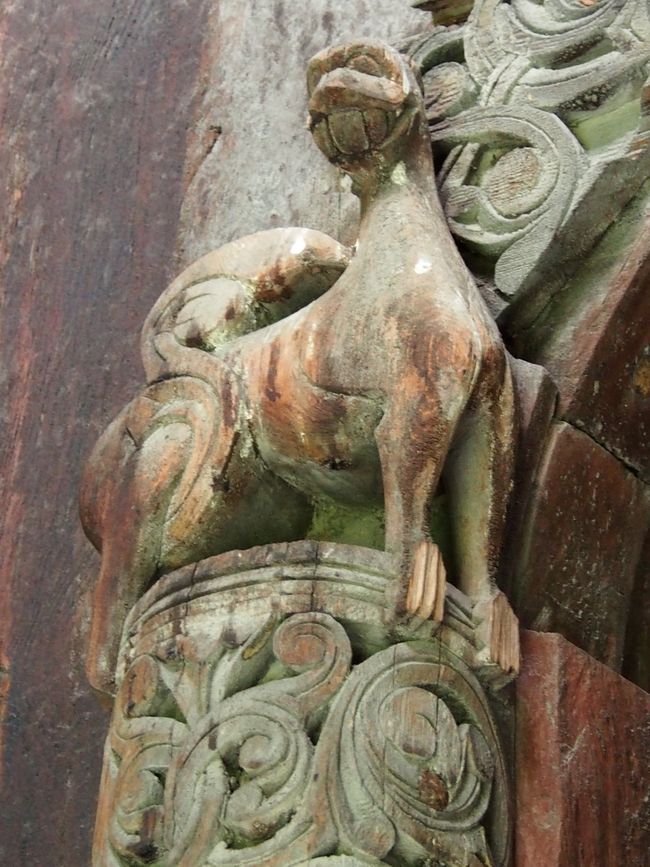
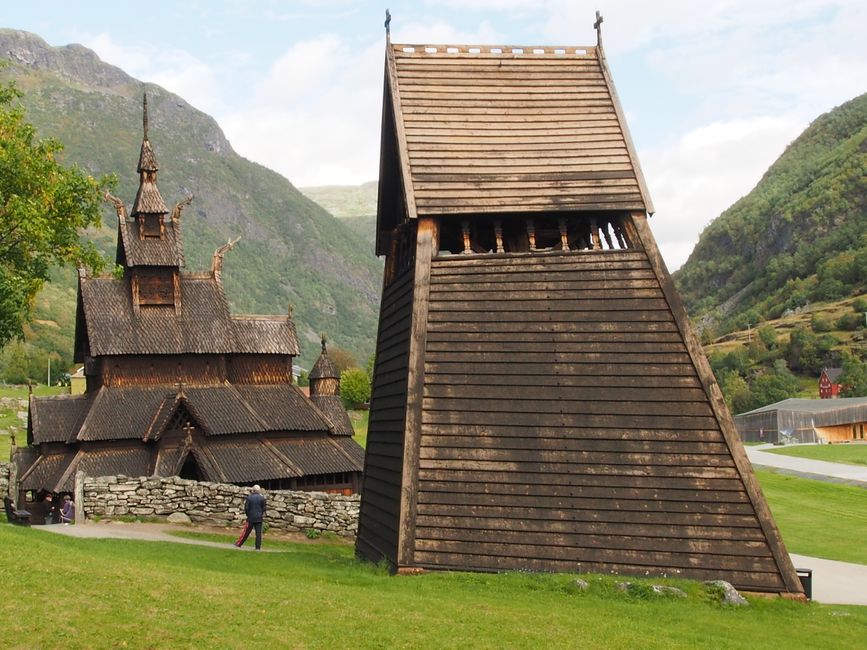
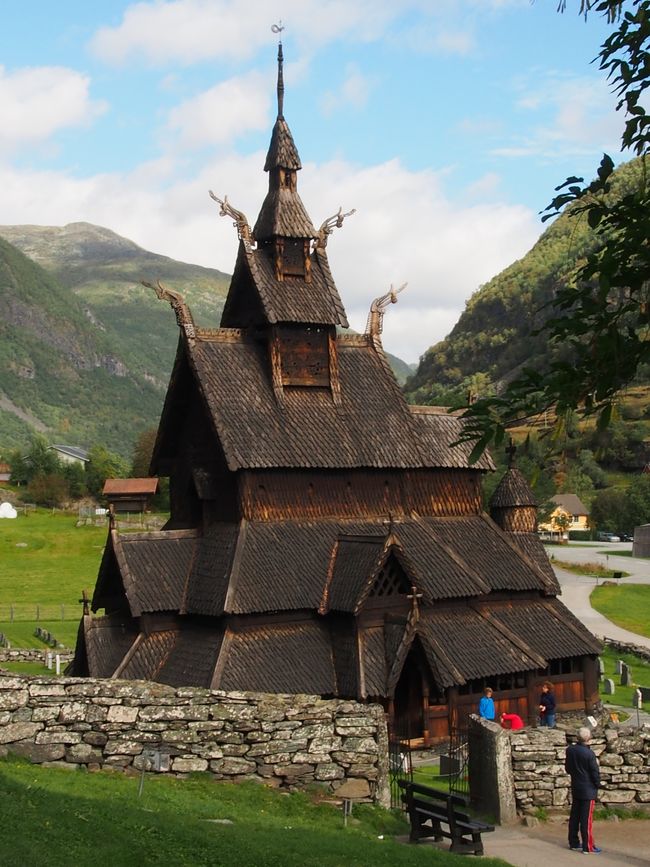
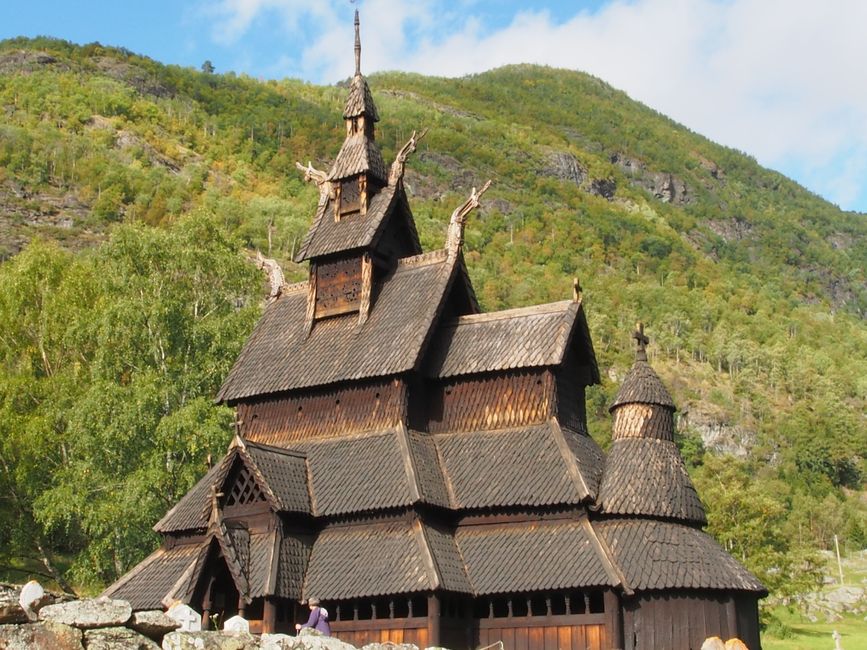
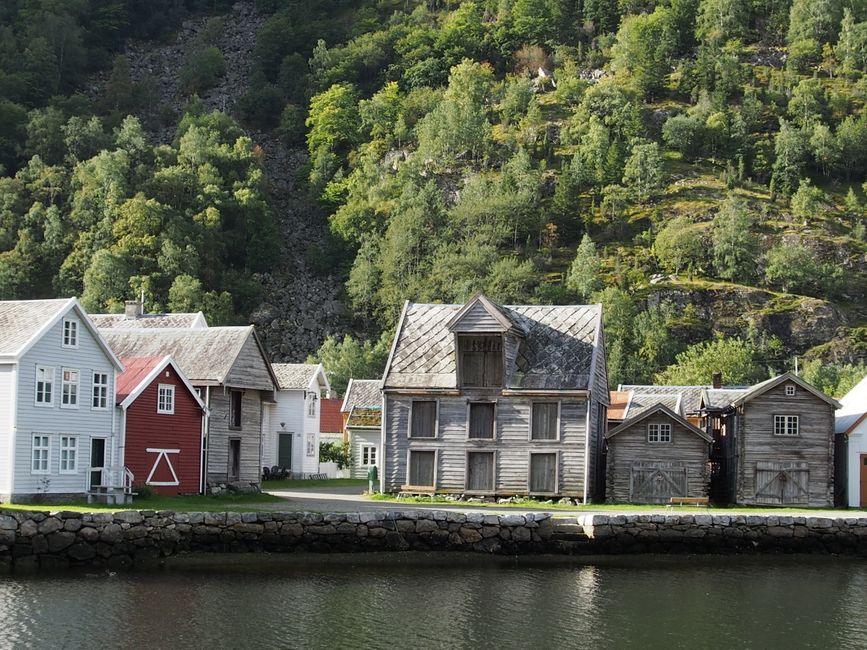
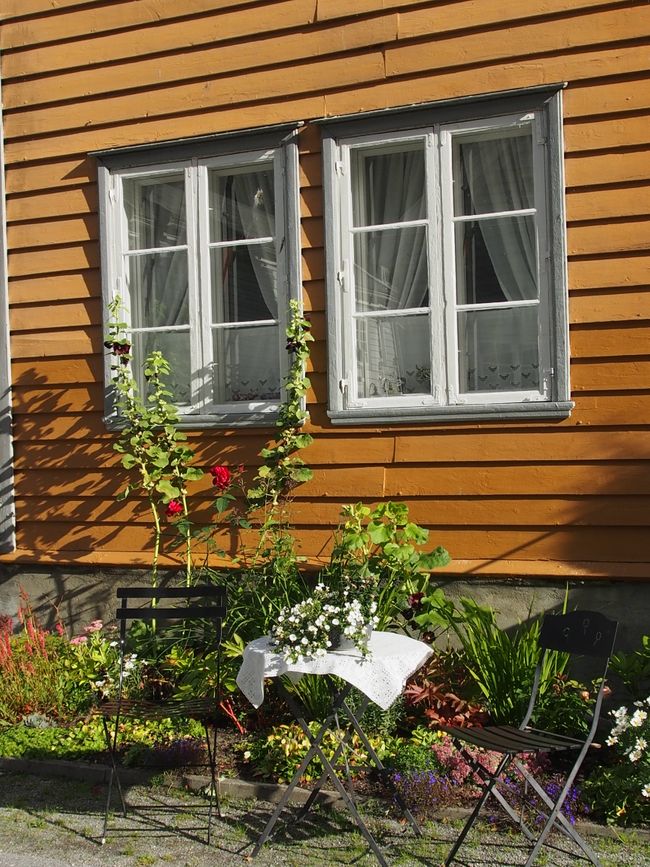
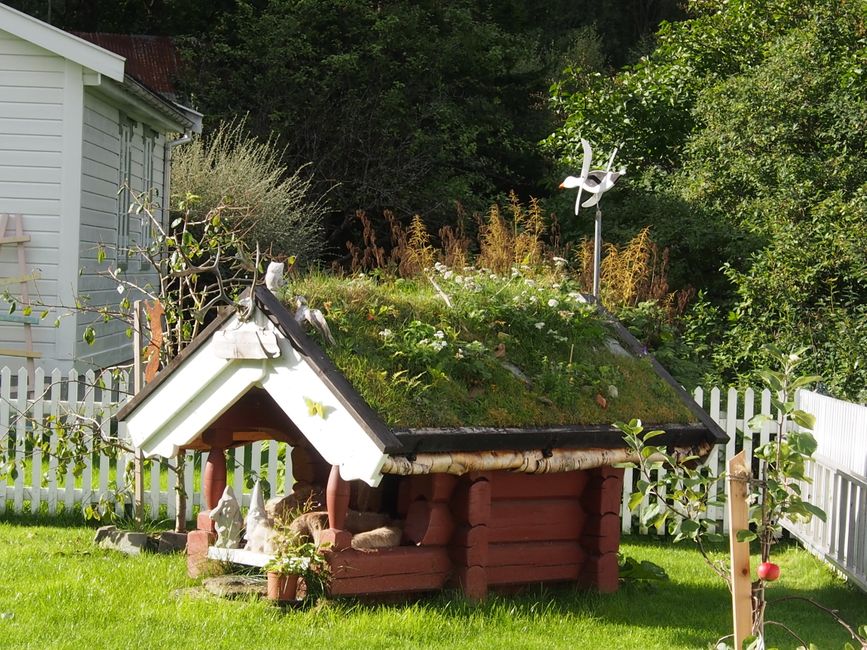
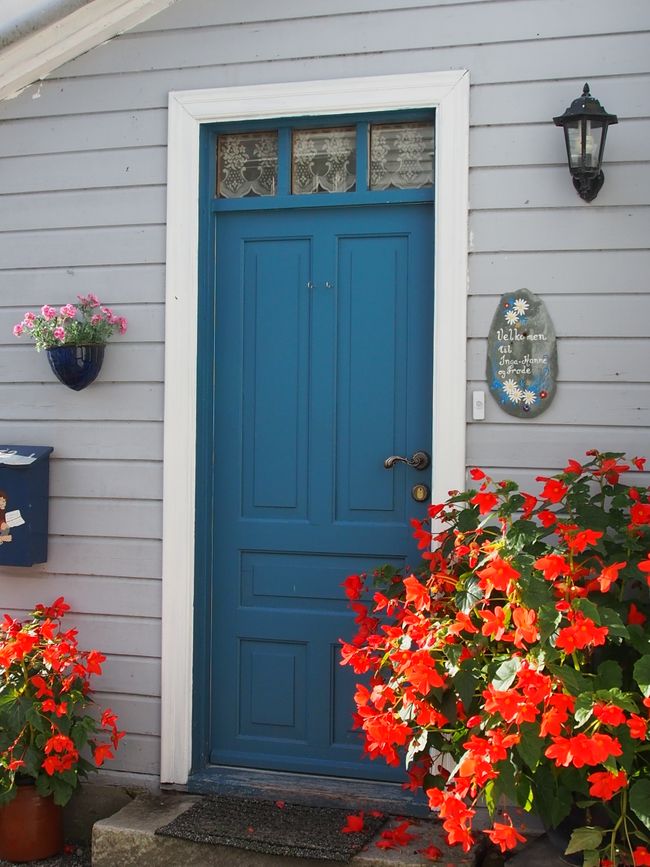
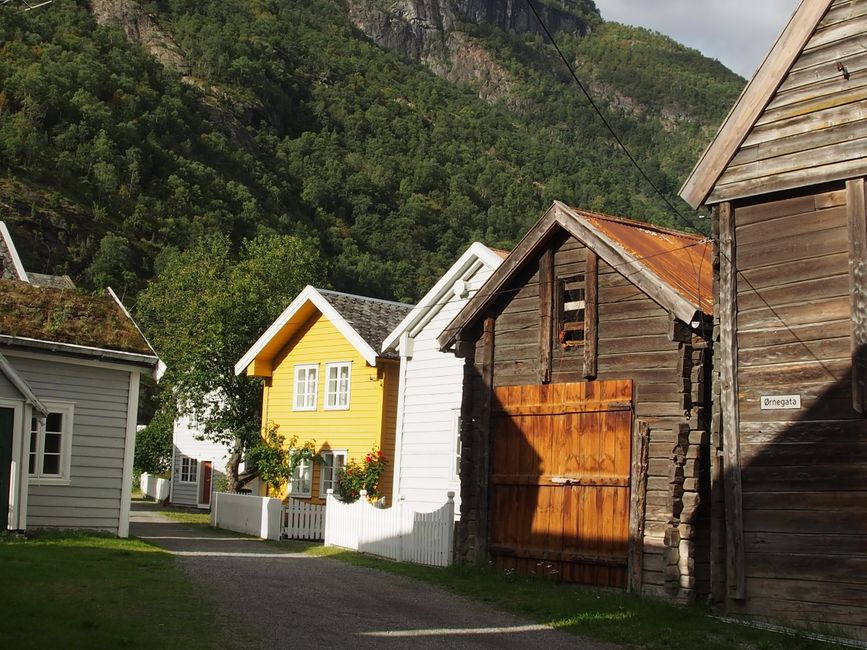
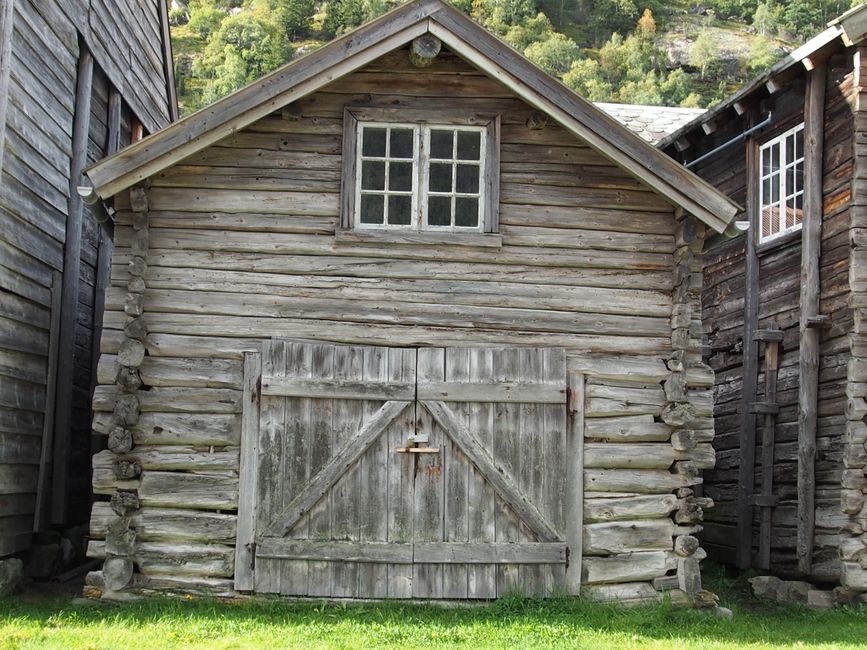
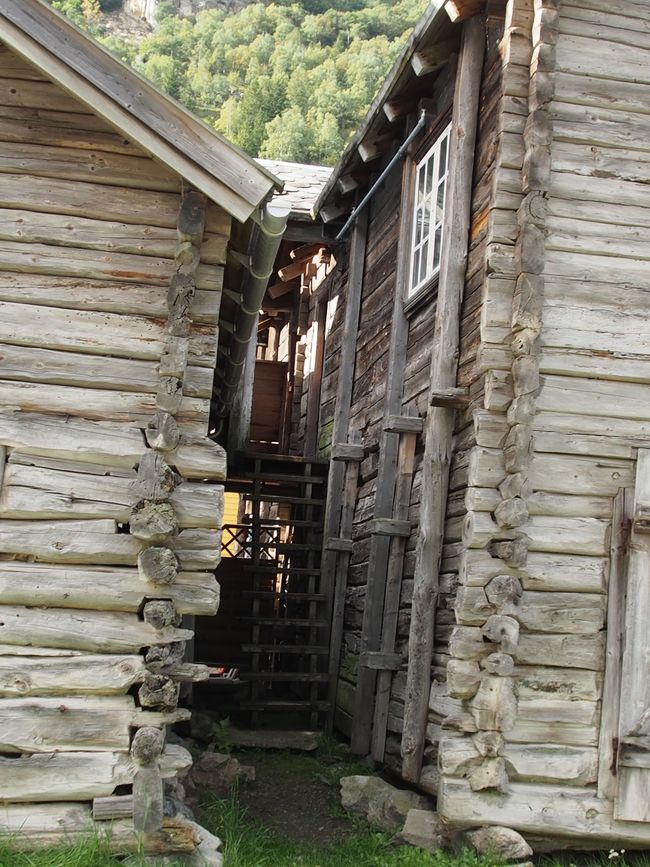
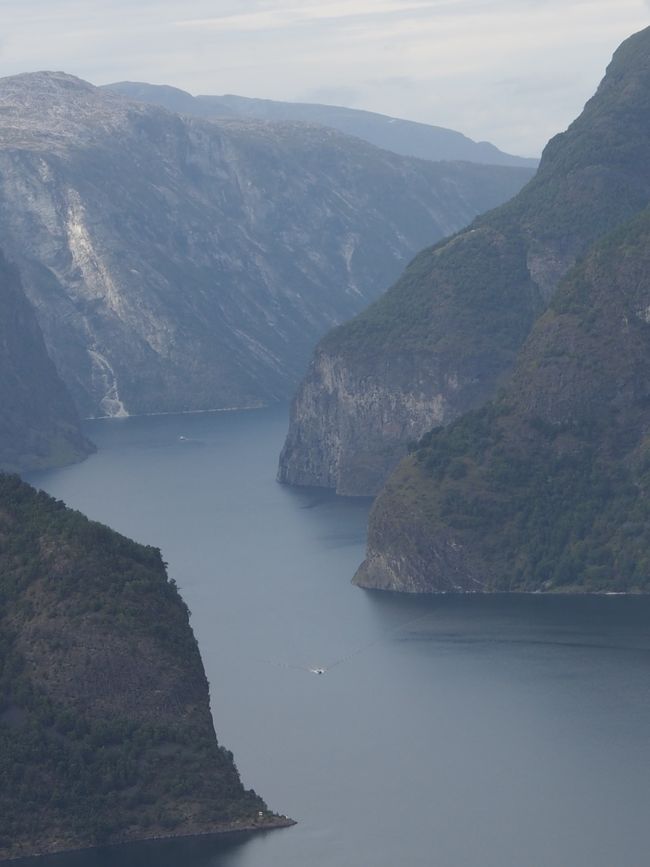
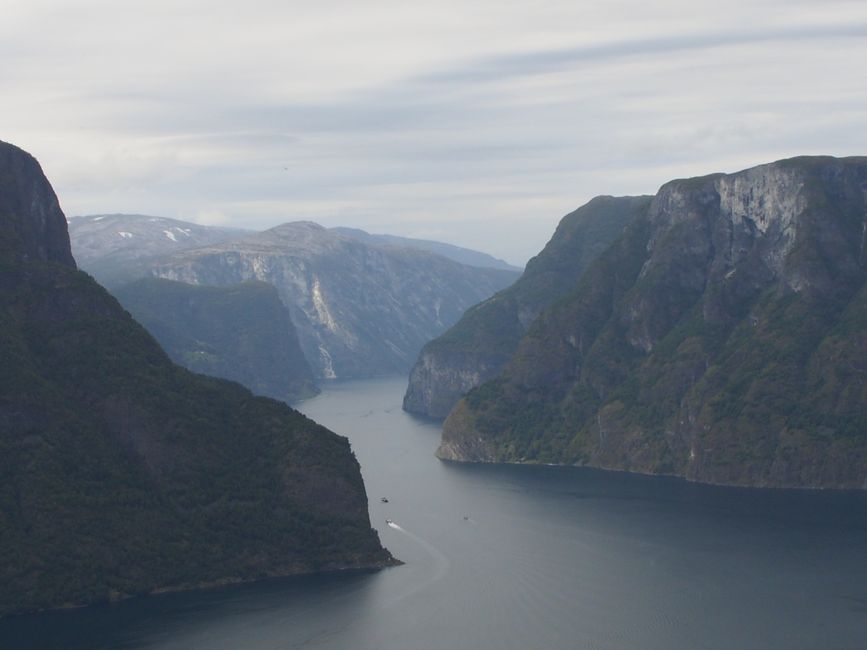
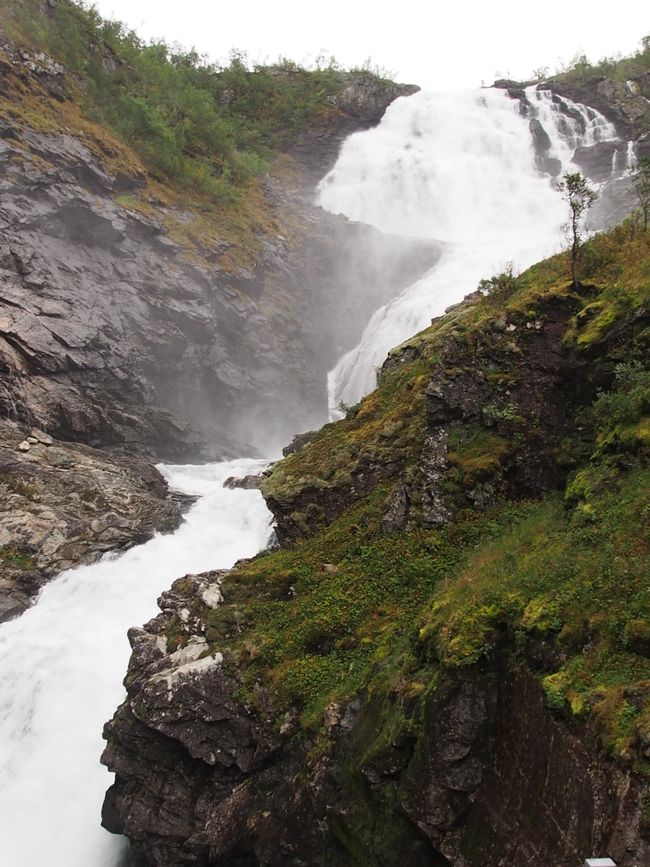
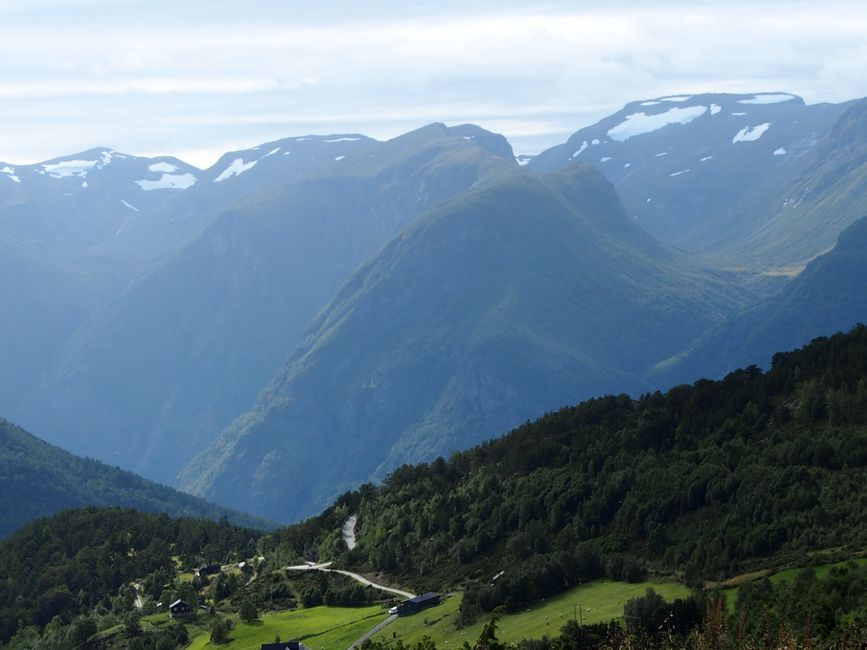
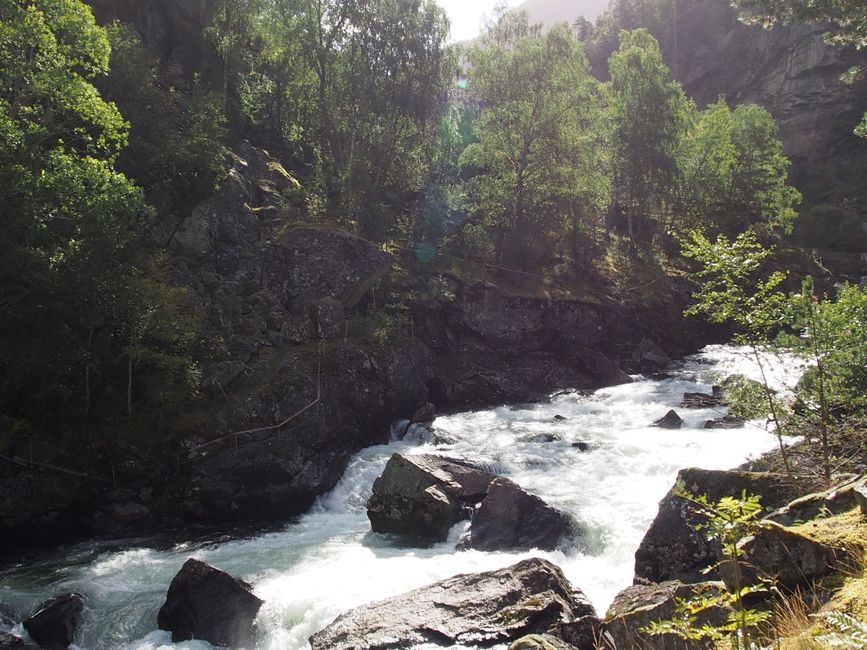
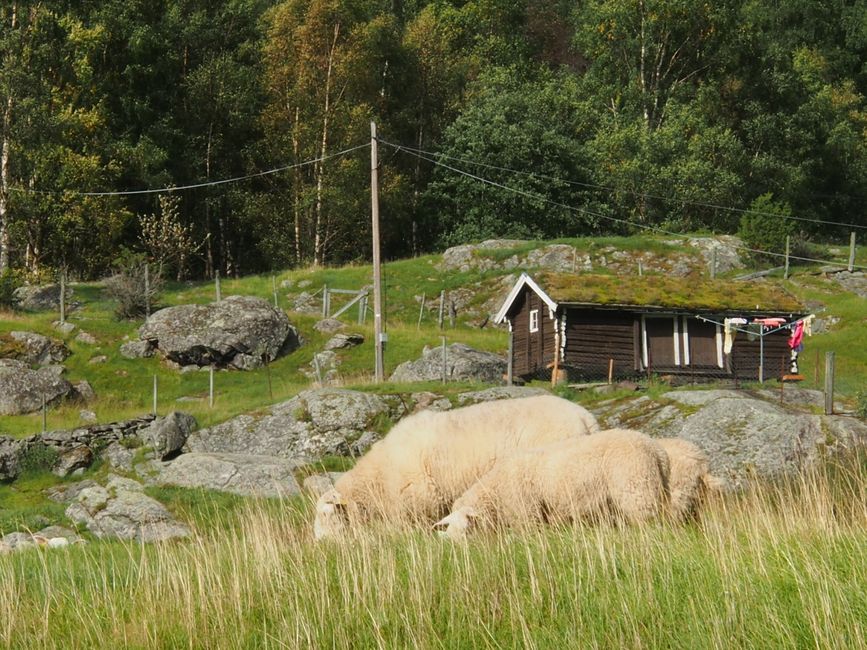
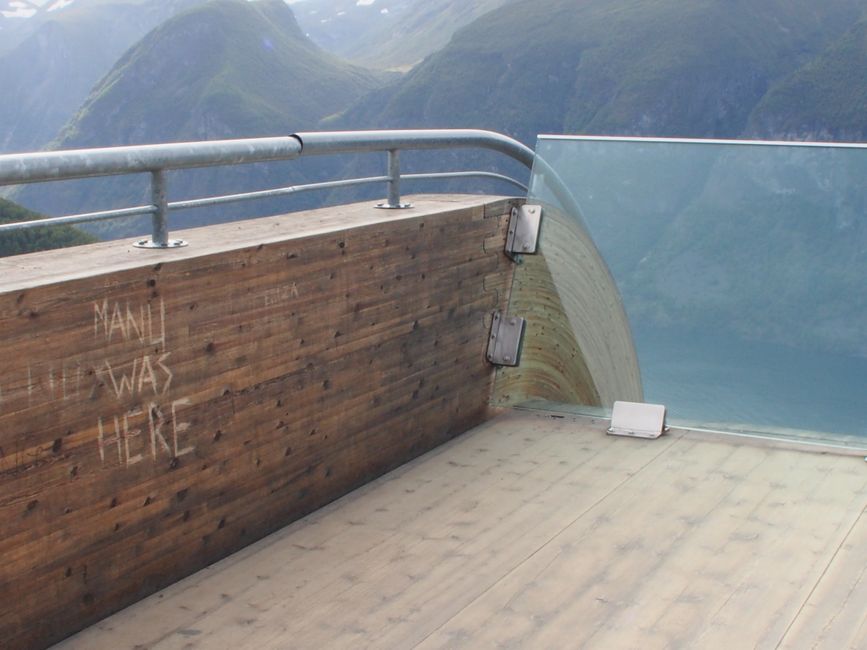
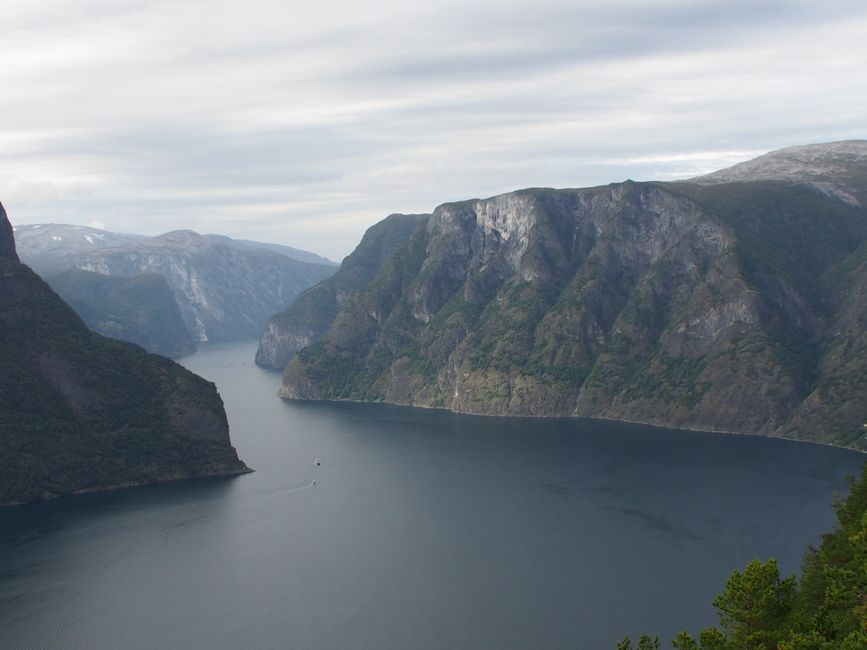
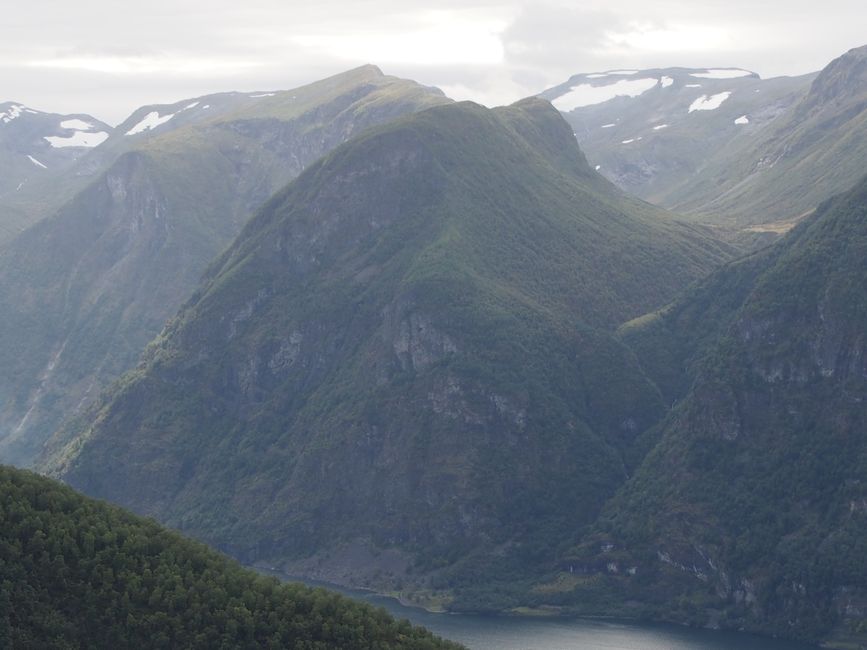
Iscriviti alla Newsletter
Wednesday 7.9.16
At 9 am I am sitting at breakfast, which offers a rather limited selection and there are only two other people here besides me. I suspect that other guests prefer to put together their own breakfast. But I don't want to have dark bread with tea sausage for breakfast either…
By the way, the sun is shining, so I walk through Lærdalsøyri again before I continue driving east by car.
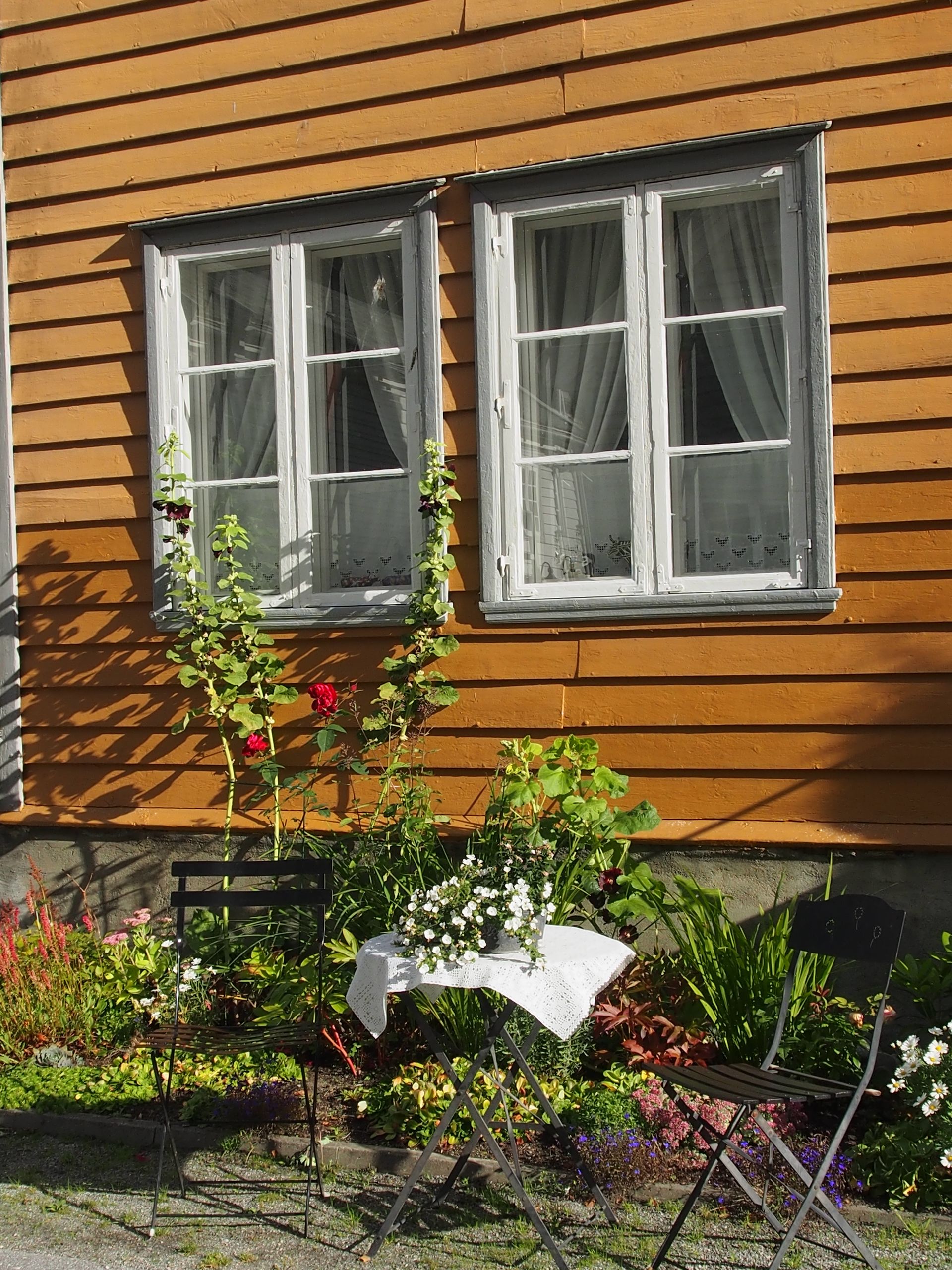
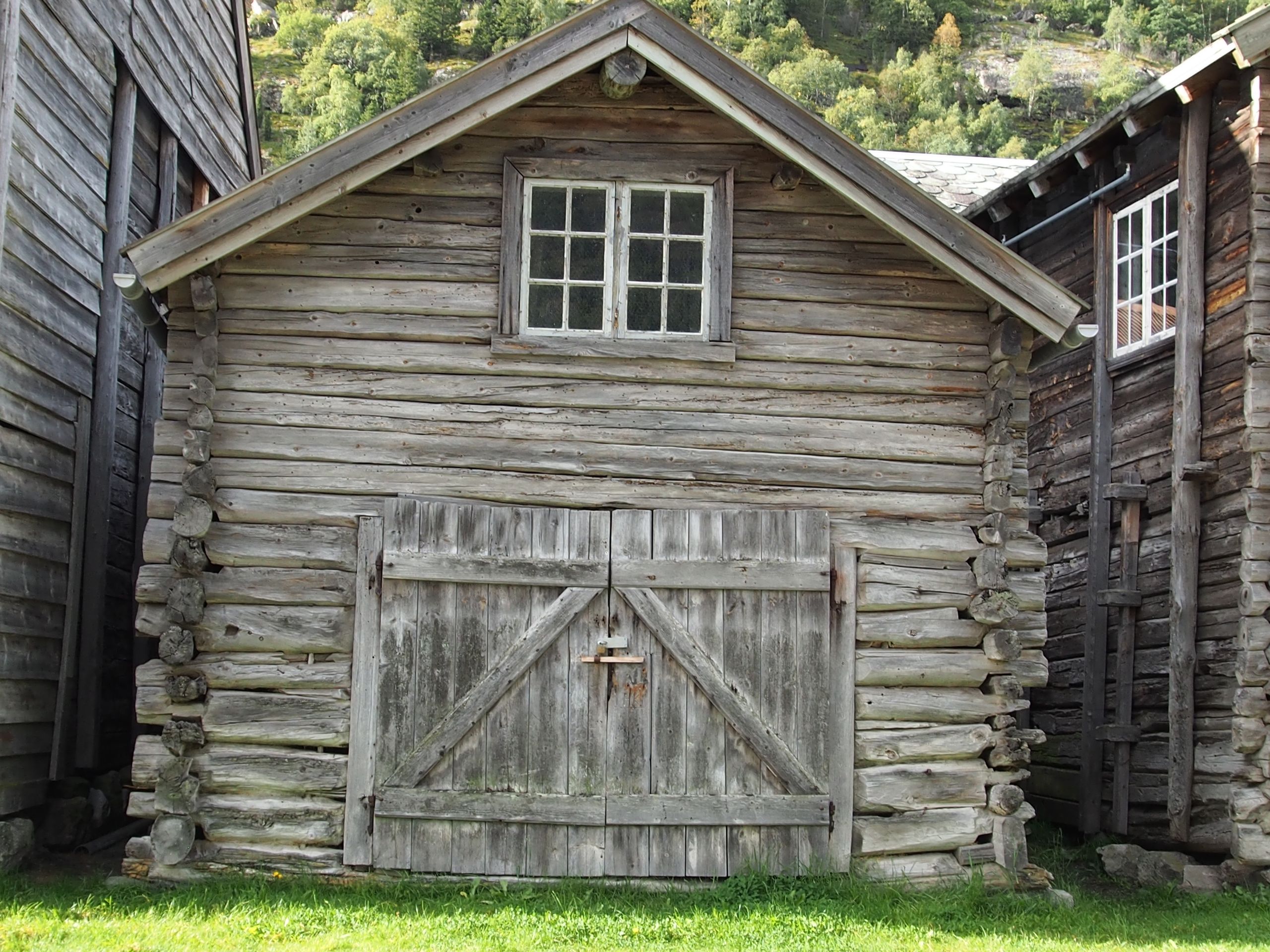

I soon leave the E16 for a side road that was the only road to Borgund and further east before the construction of the highway.
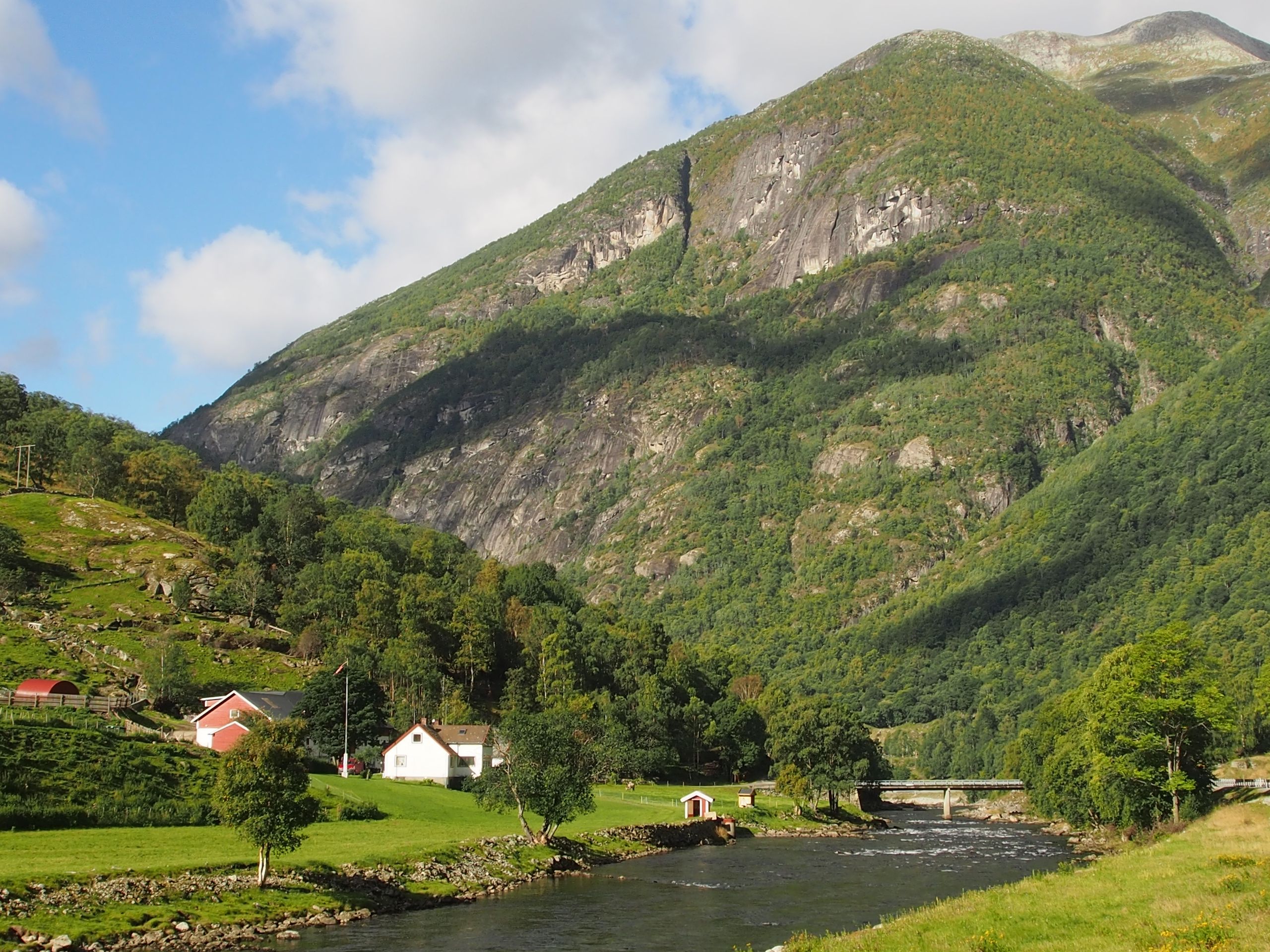

What a dream route! The Lærdalsselvi is a wild, partly emerald green, rushing stream that runs alongside the road.
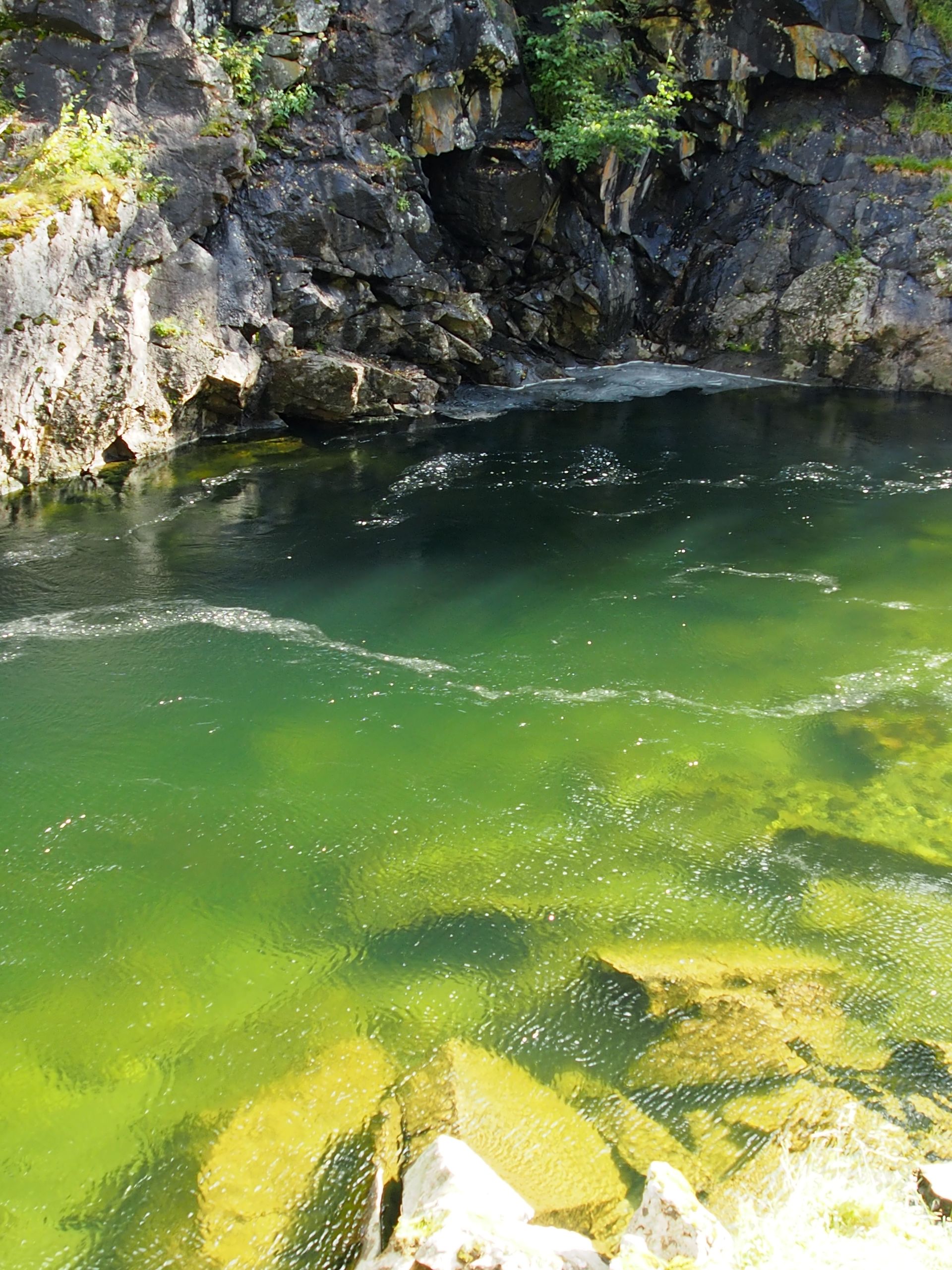
Overhanging rocks require taller cars to drive in the middle of the already narrow road, which is not so pleasant in oncoming traffic. But I have a small, agile car and there is hardly any traffic here anyway. But it can be tricky with a camper. There are narrow tunnels that are better passed carefully in the middle with a tall car.
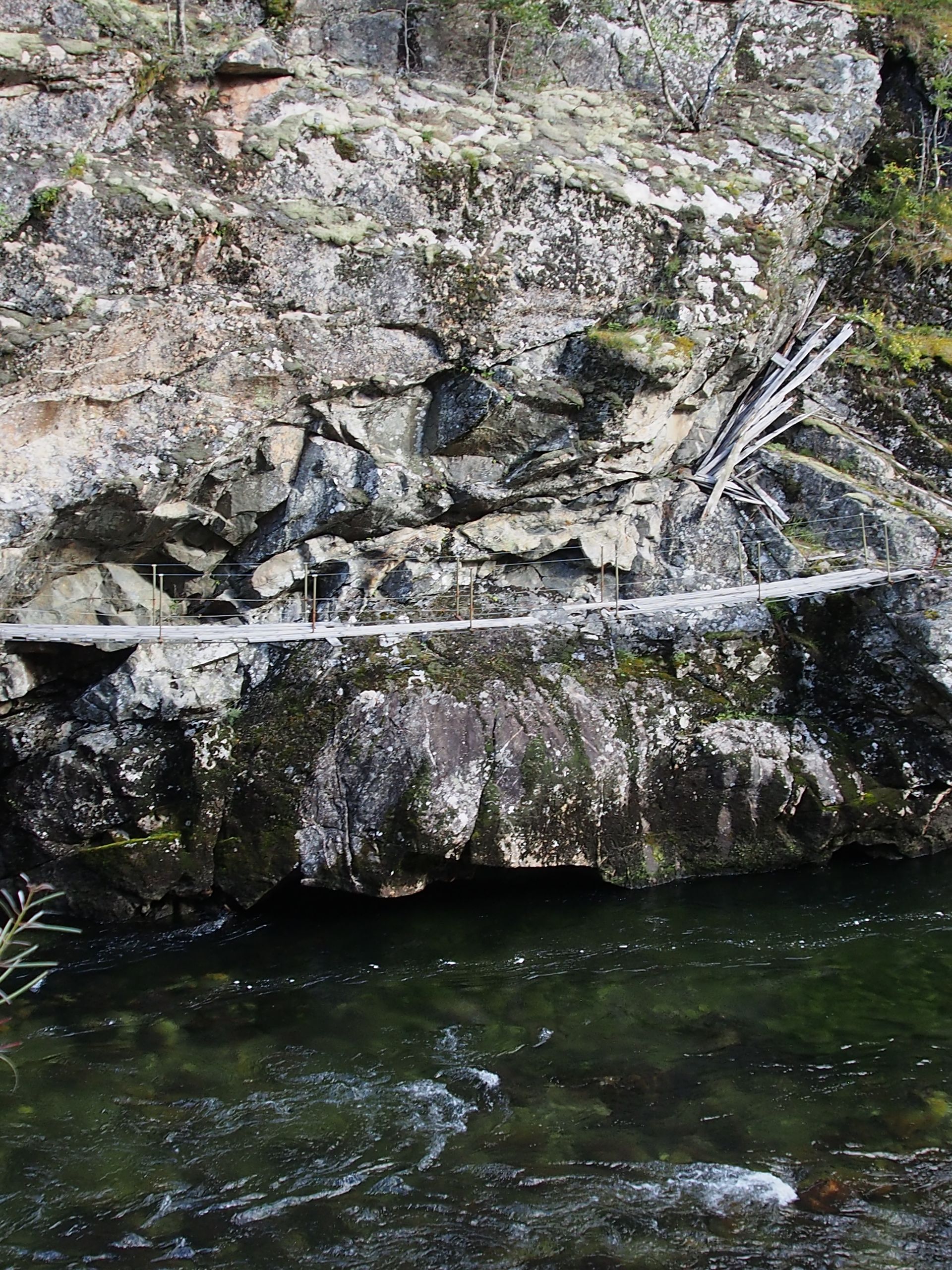
On the other side of the river, there is a dilapidated footpath that hangs dangerously over the water, but cannot be used anymore because some parts are missing. This is part of the famous King's Road, the Bergen Kongensvei, which in the 18th century led from Bergen via Oslo to St. Petersburg.
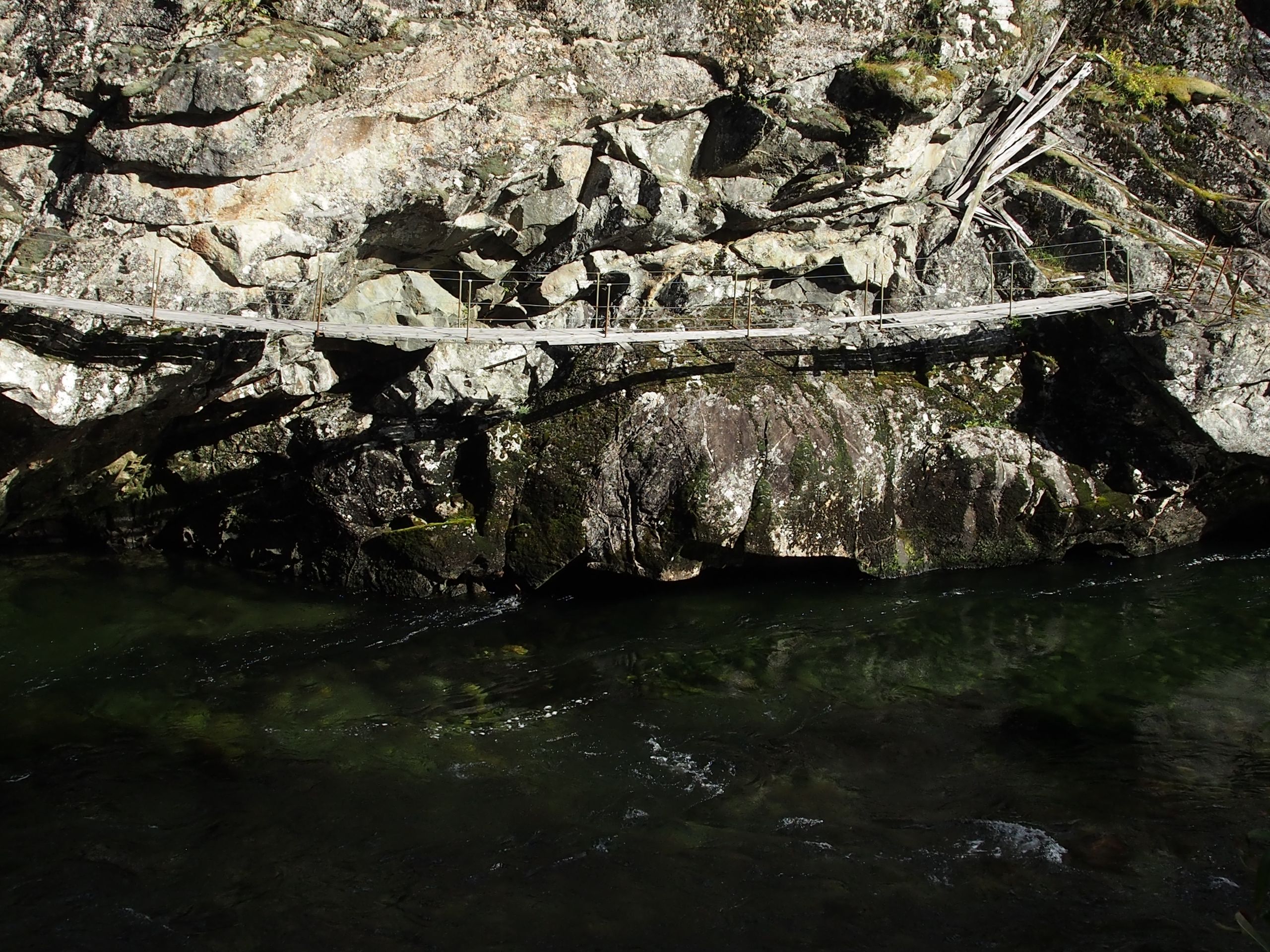
Recently, a part of the King's Road has been reopened in the region. But you can also follow the old paths cross-country - but not here at this river.
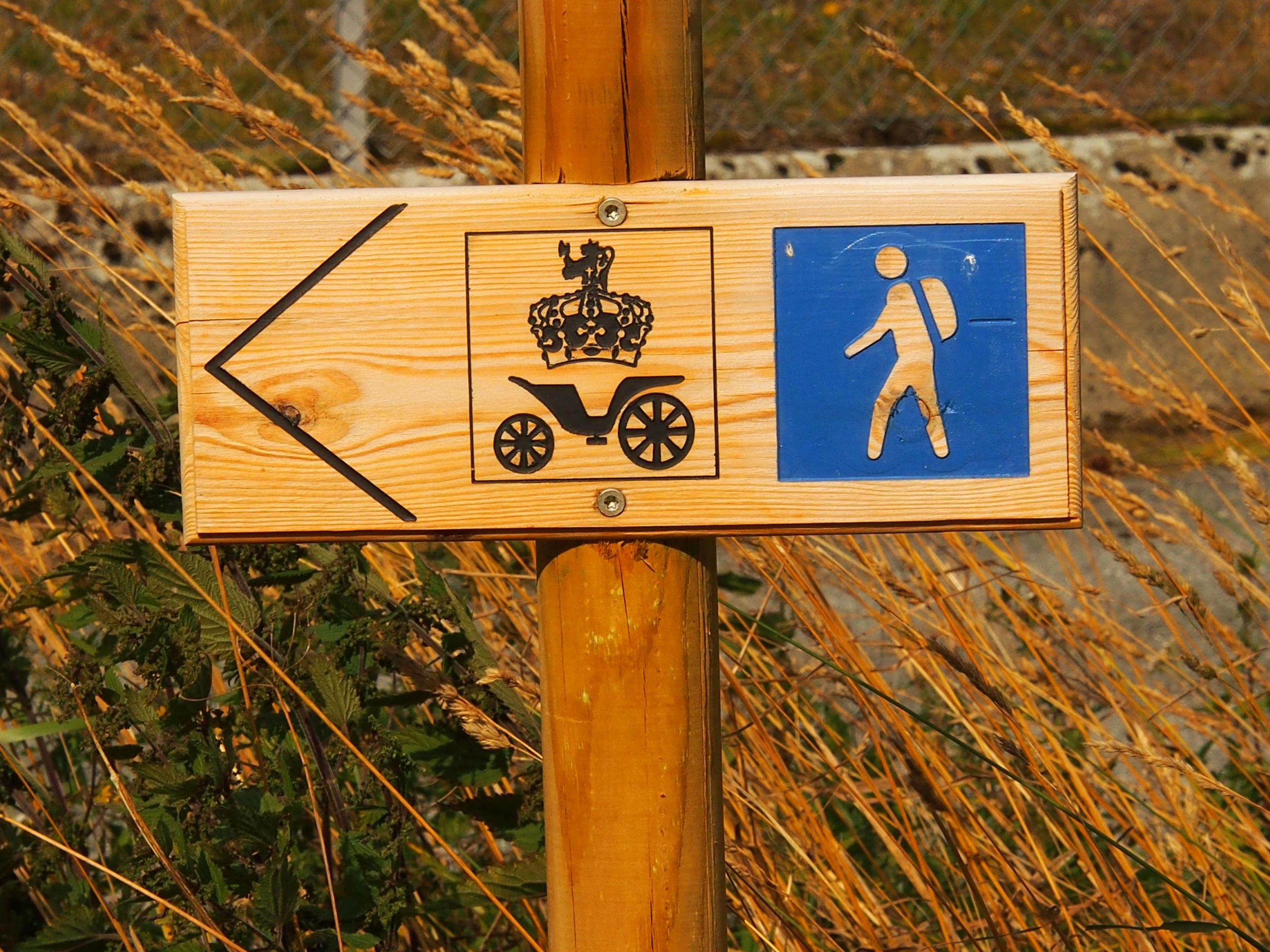

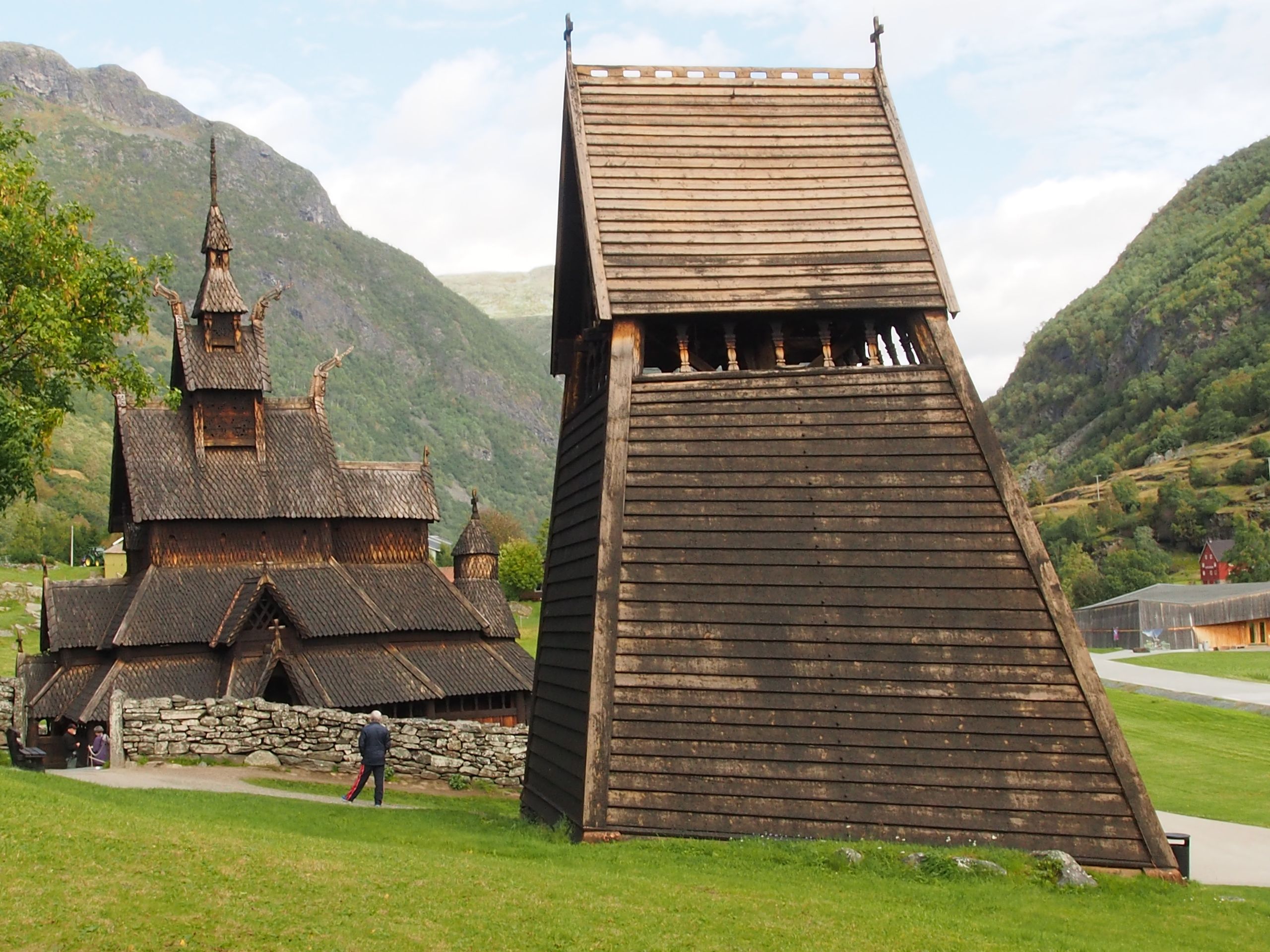

Investigations of the wood have shown that it was felled in the winter of 1180-81.
At that time, the rural population in Norway was mostly devoted to pagan religions, when in the late 10th century, the Christianization was attempted to be driven into the country with (usual) violence. Stave churches were built during this period and it is assumed that they were primarily built in the transition period from paganism to Christianity, which could also explain individual decorations in the church.

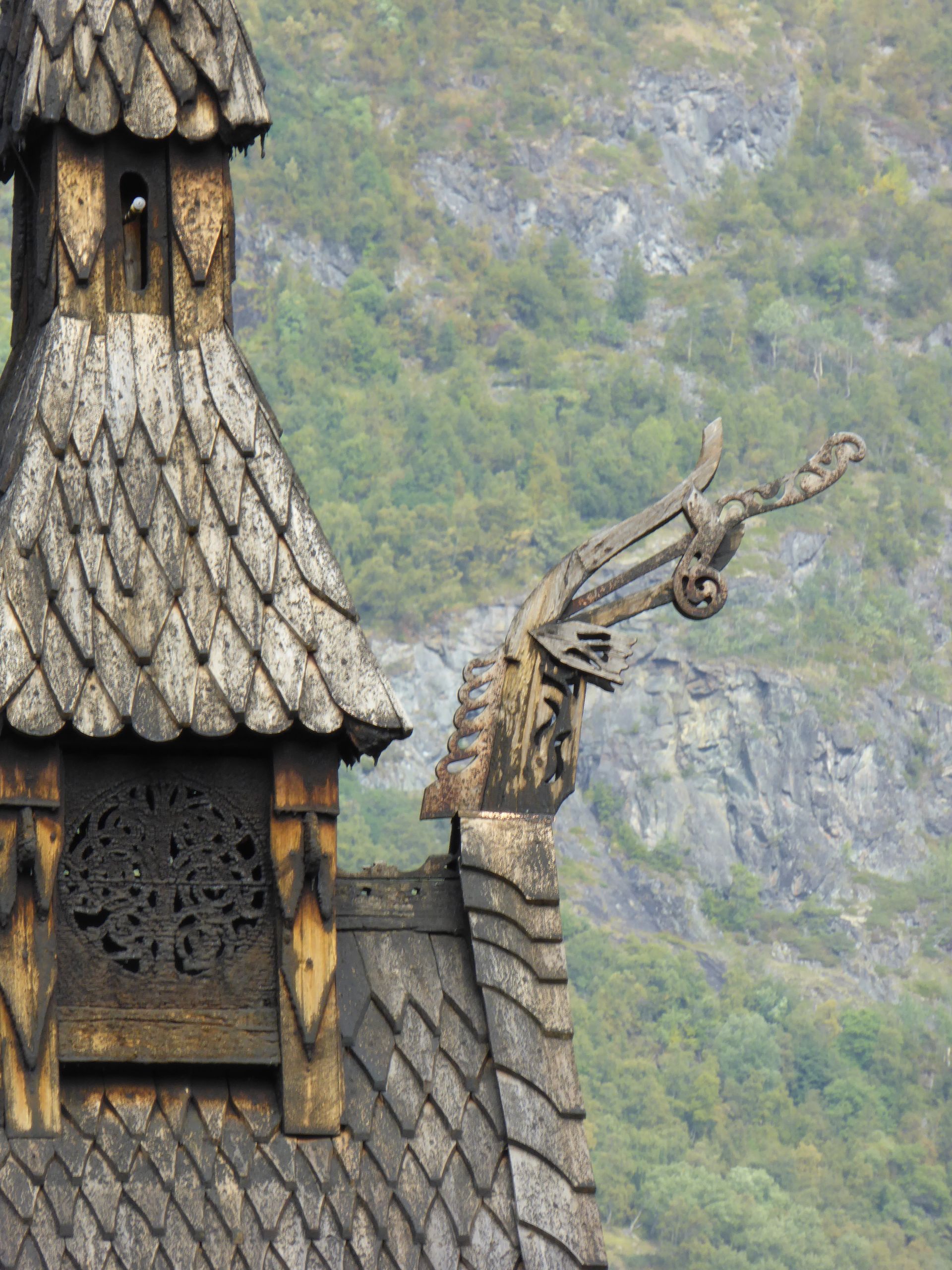
Runes on the roof ridge and in the timber have shown inscriptions that roughly mean:
"I rode past here on St. Olav's Day. The Norns did me a lot of evil as I rode by." The mention of a saint in connection with the Norns clearly shows the combination of both belief systems at that time. The Norns are fate goddesses from the old pagan religion. While there are plenty of church crosses on the gables, there are dragon heads towards east and west. They wanted to keep evil forces away.
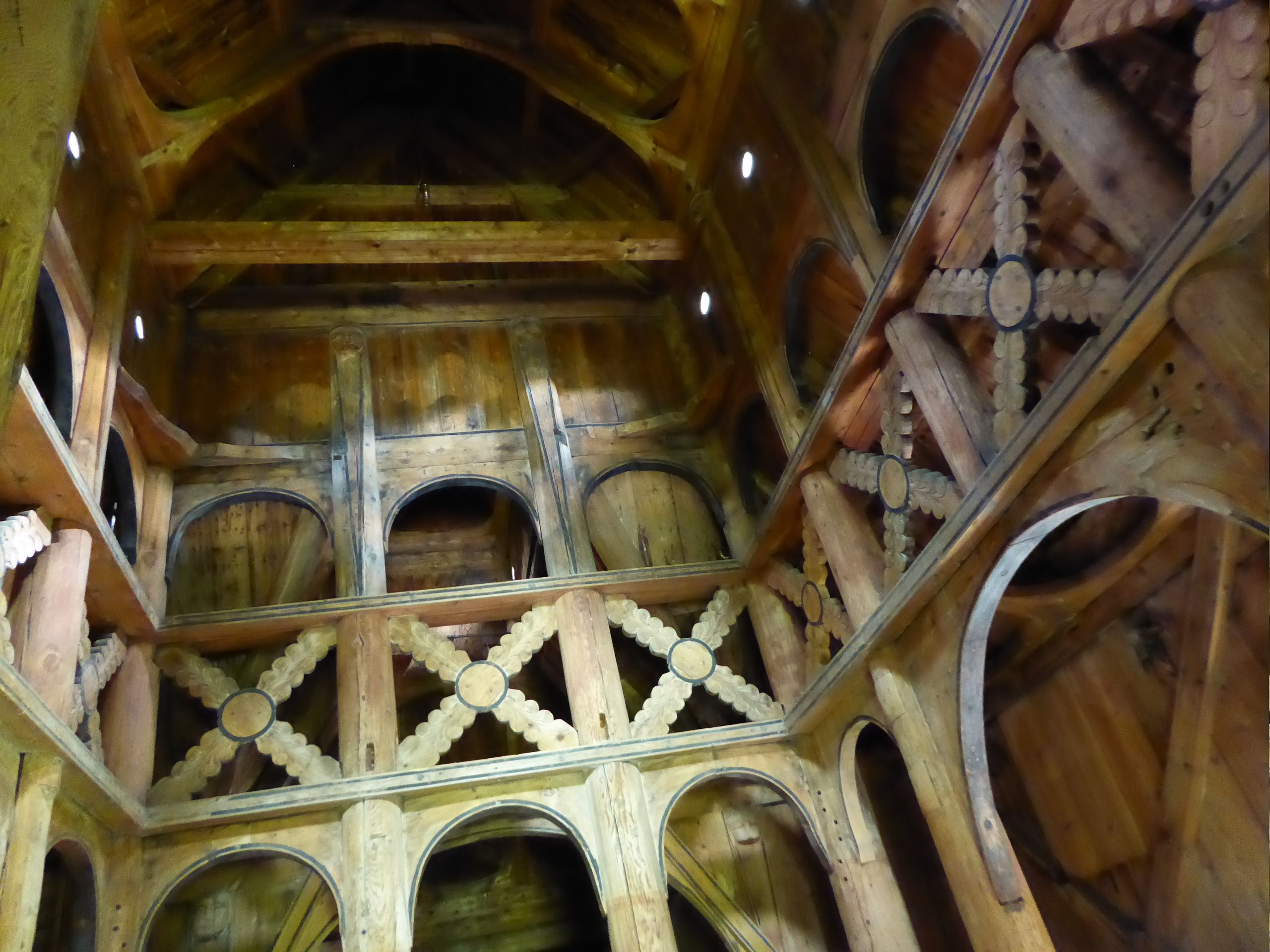
I am not only impressed by the construction without nails, but also the interior decoration is completely different from what I know. The wood is almost completely black with resin and decorated above the doors and on the ridge. Inside, there are only true images at the altar, the rest of the space has no paintings. However, there is a cat head relief above the pulpit, which also indicates the pagan faith. There is a narrow bench for the old and sick worshippers around the worship room. Otherwise, people stood during the church service. The church has a low surrounding and covered exterior passage. Here, one would put down their weapons before entering the church.
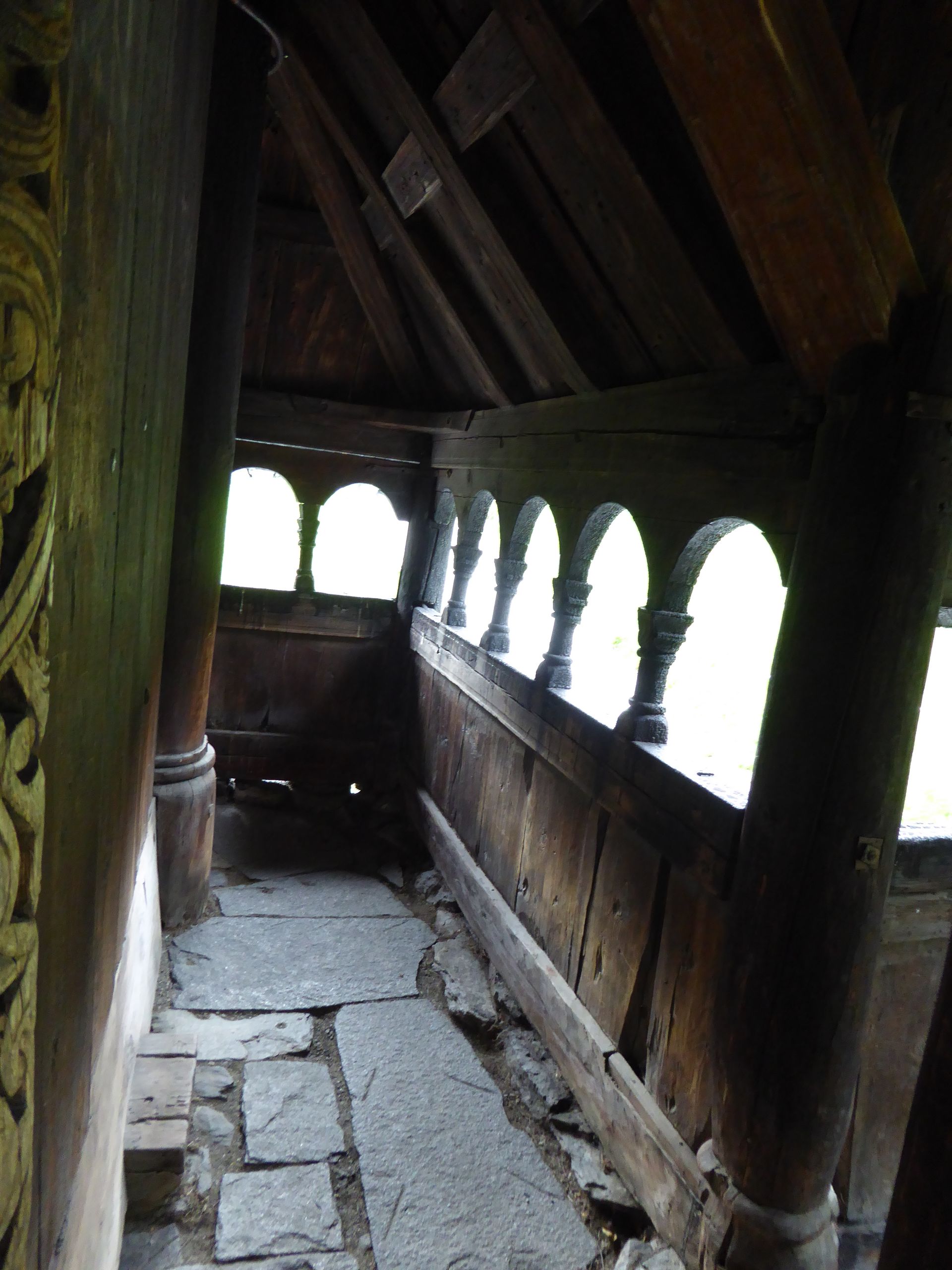

The construction of stave churches came to a sudden end in the Middle Ages when the plague decimated half of Norway's population. In the years and the time thereafter, they simply had other things to deal with than building more churches. Later, they built with stone.

At 12:30 pm, I leave Borgund because the newly built church next to it (which is also about 150 years old) is closed and now I start a scenic drive in hopefully continuing good weather.
First, I drive back to Lærdalsøyri and then turn towards Aurlandsfjellet from there. Lærdalsøyri was often cut off from the outside world before tunnels were built to Aurland when it snowed in winter. Because you could only reach Aurland via the high plateau, Aurlandsfjellet, and there is usually meter-high snow between the end of September and the end of May. The Lærdal Tunnel is the world's longest road tunnel with 24.5 km and was opened in 2000 and is part of the E16 European road.
You can cover the distance to Aurland within 45 minutes without weather influences. But today I decide to take a route through nature because if the sun is shining, I don't want to drive through a tunnel.
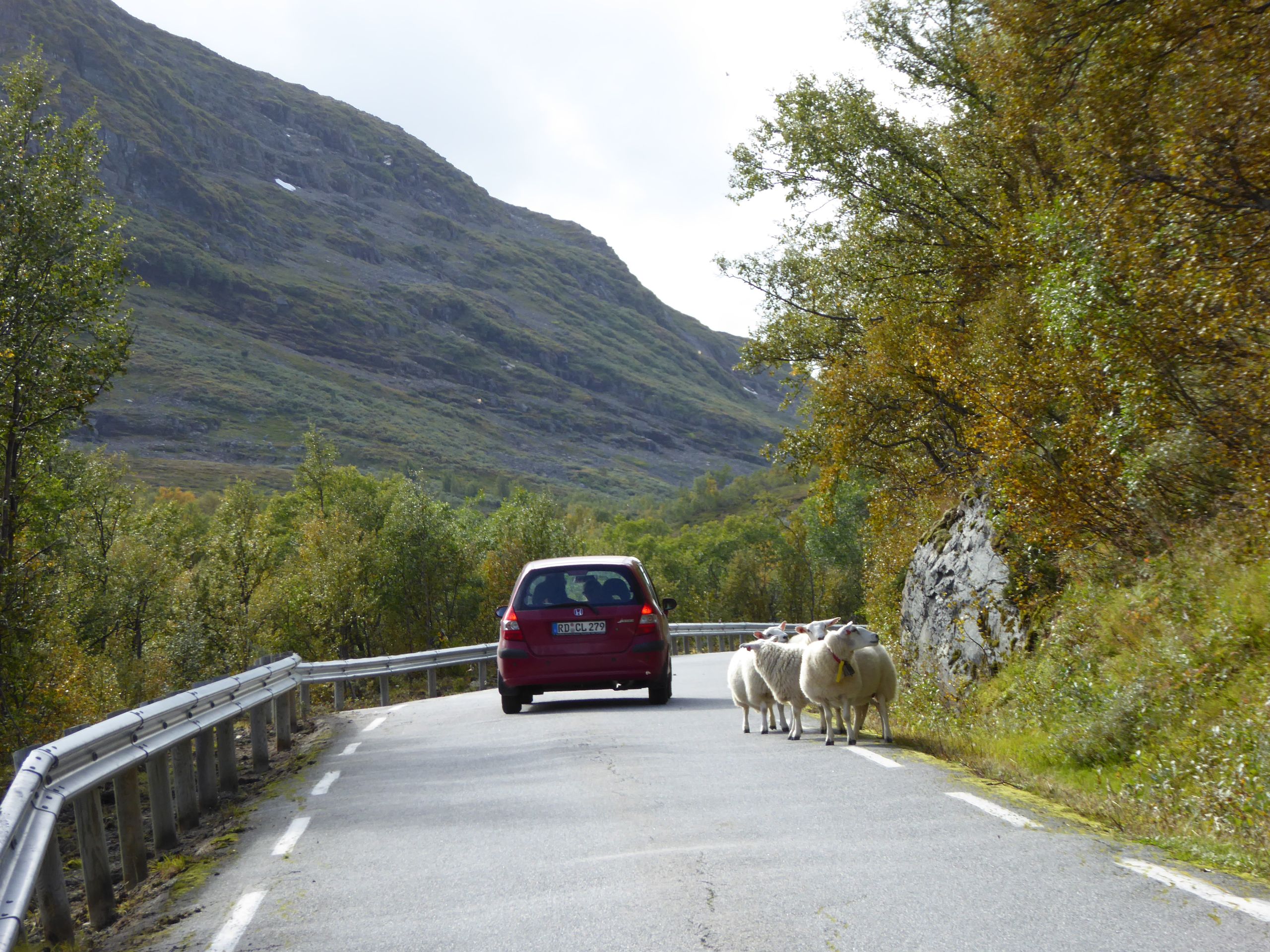
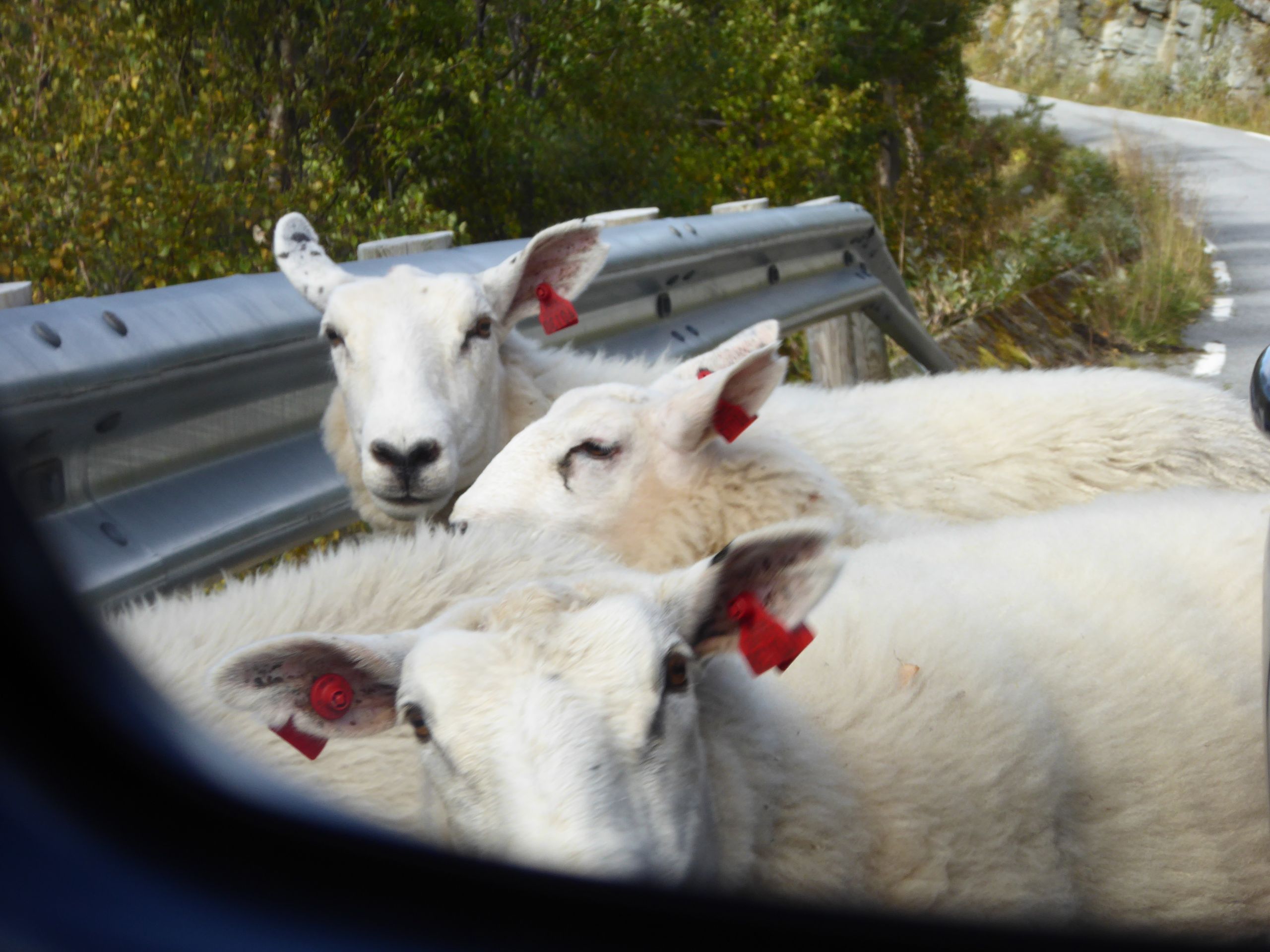
The route over Aurlandsfjellet and the Stegastein viewpoint on the Aurlandsfjord to Aurland. Almost 50 km through wild, rough, breathtakingly beautiful nature.
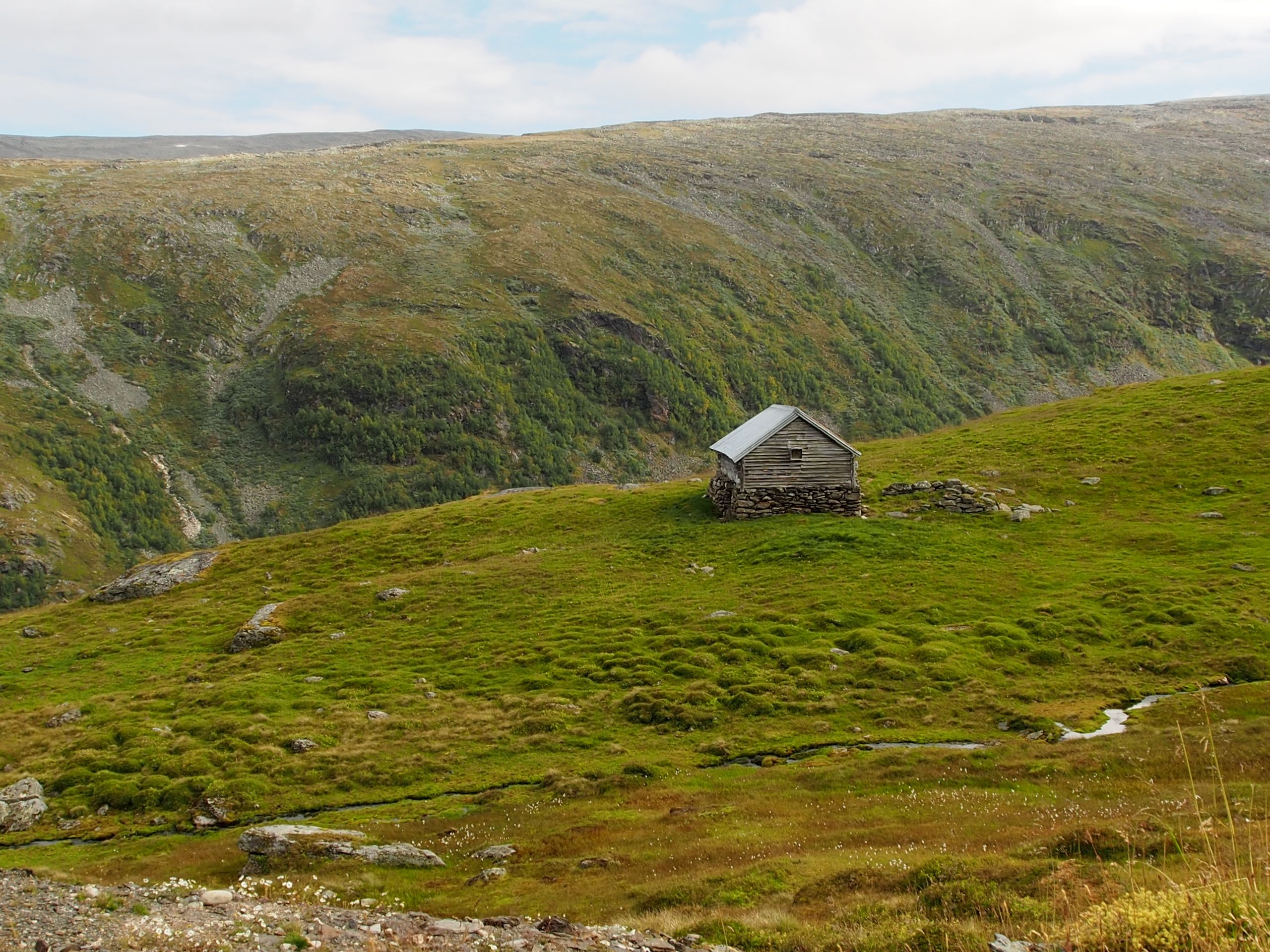
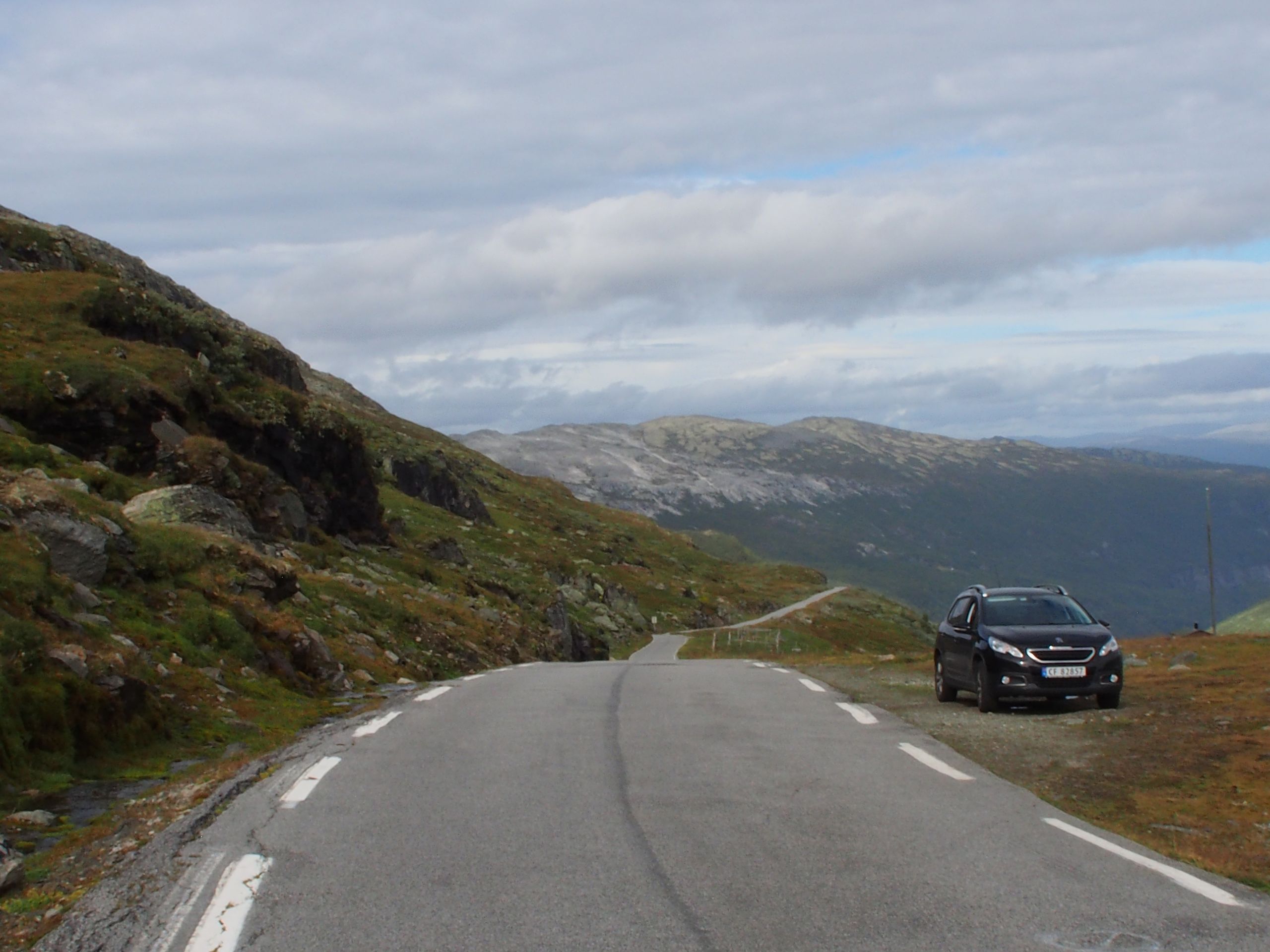
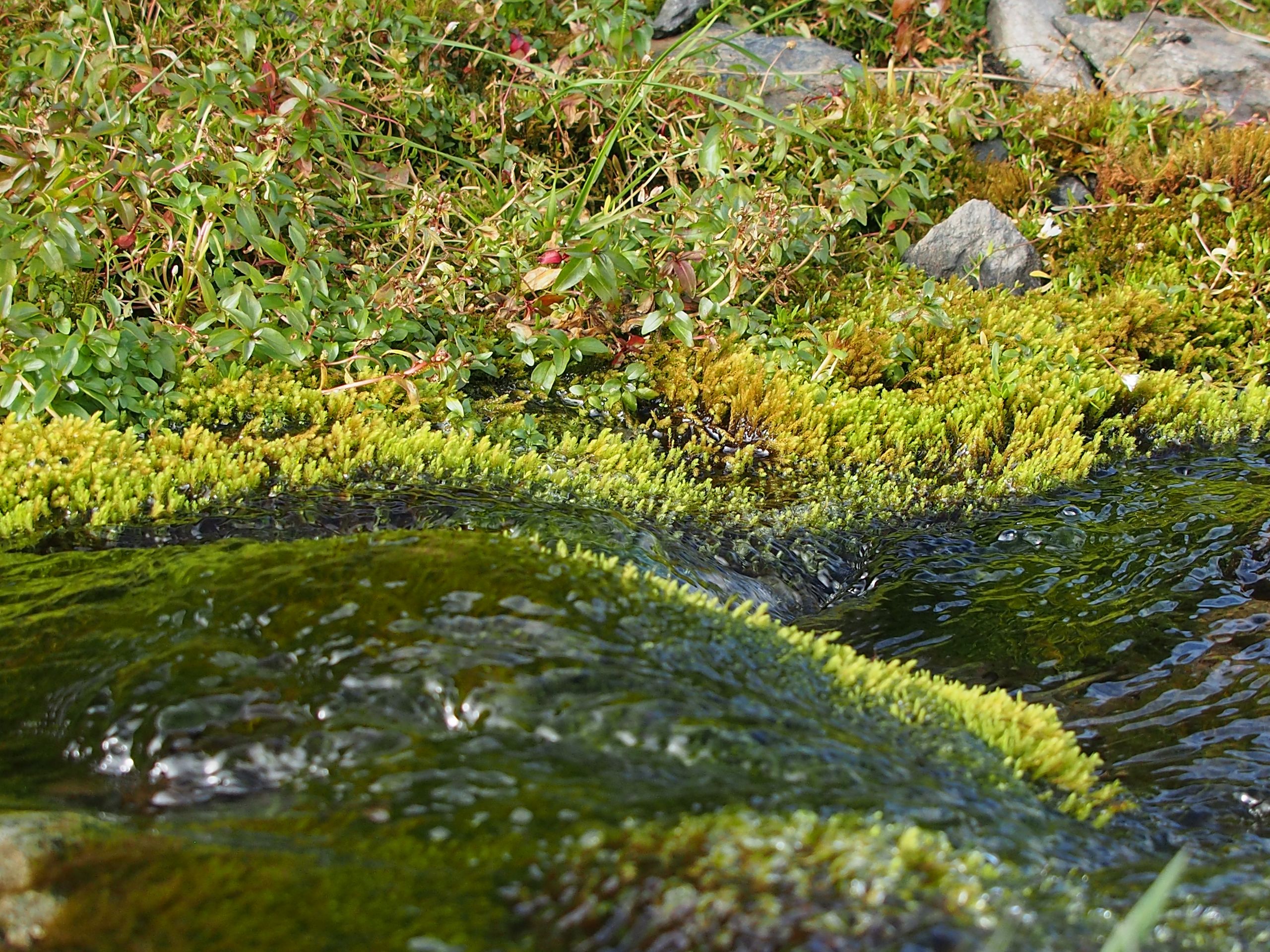

The road is narrow and climbs steadily until you drive on a high plateau with a magnificent view. The tree line is already reached at 1,300 m here, and instead of low ground vegetation in autumn colors, there are snow fields and rocks all around.
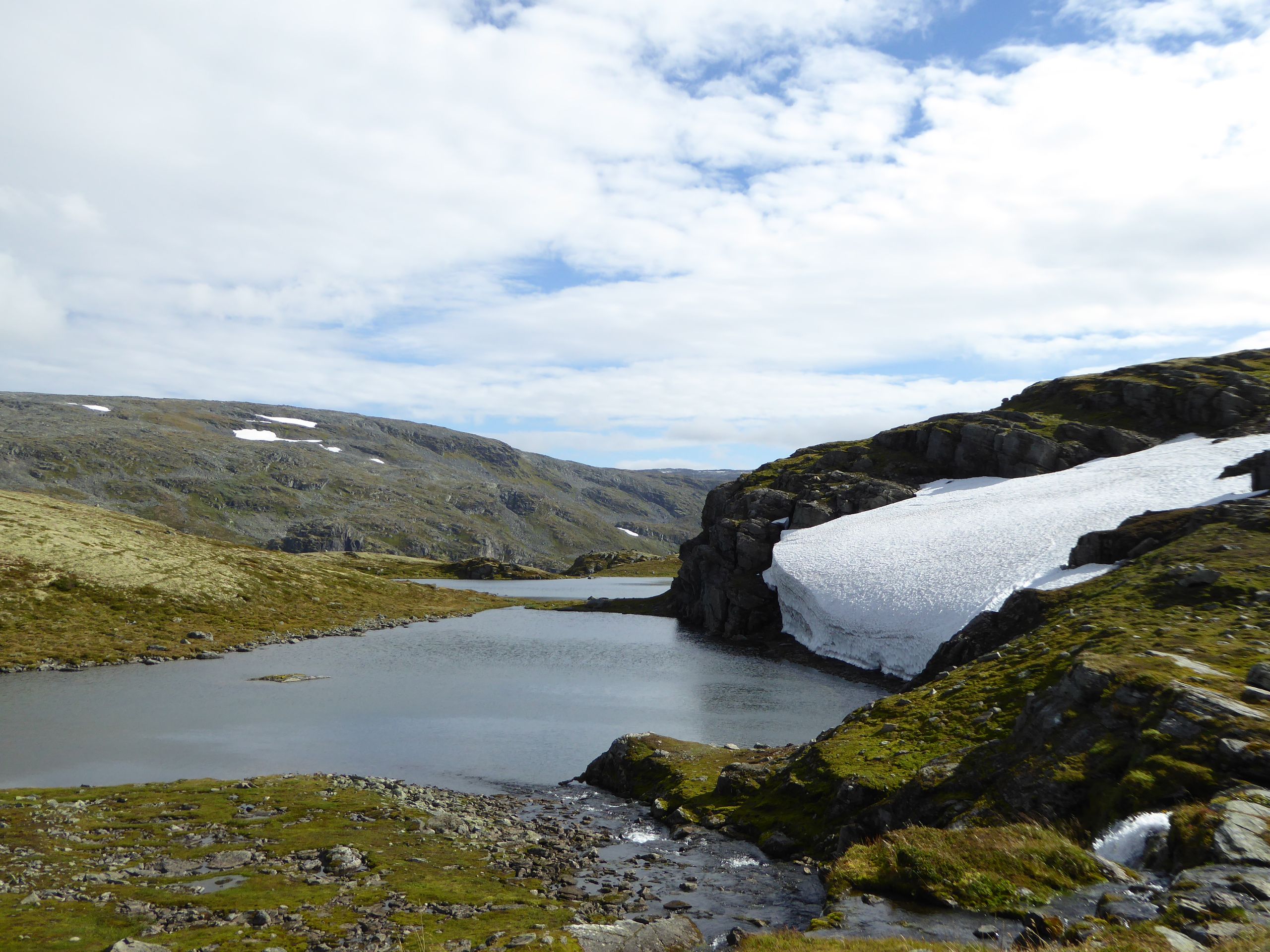
Small streams and lakes, probably fed by melted snow, can be seen everywhere. A dreamy-rough-beautiful nature. A strong wind is blowing and the temperature has also dropped to 11 degrees, which is quite cold despite the sunshine.
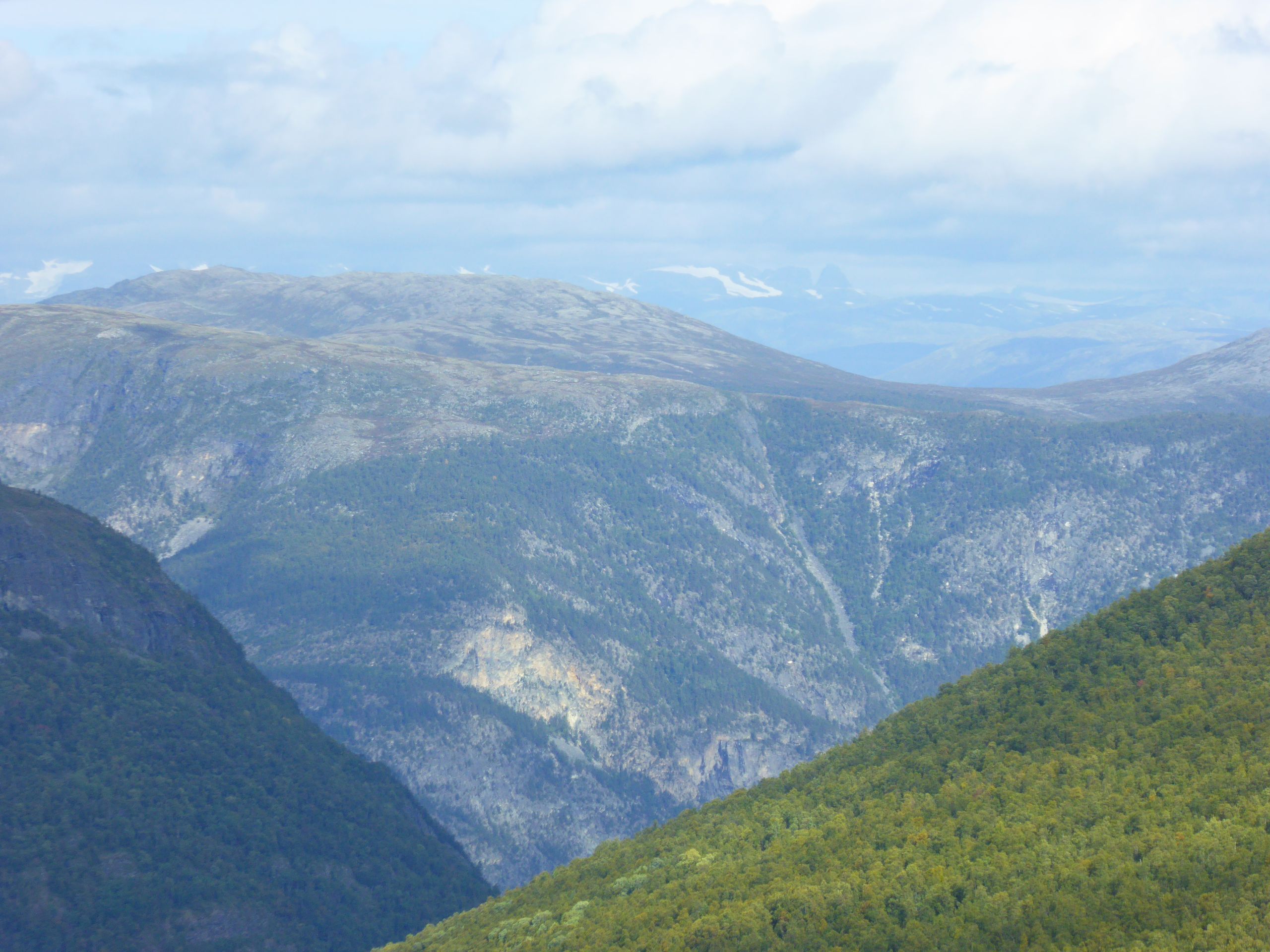
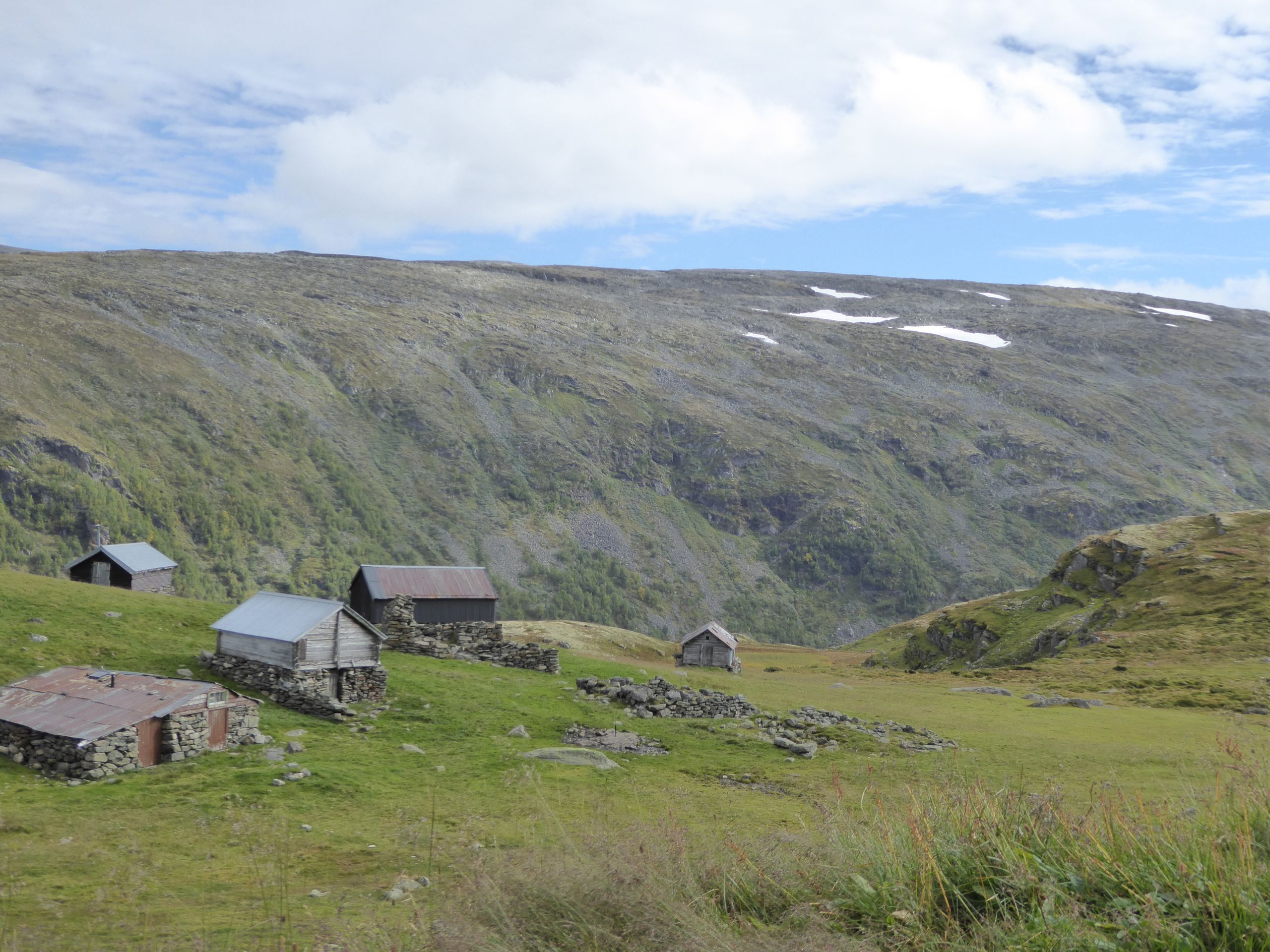


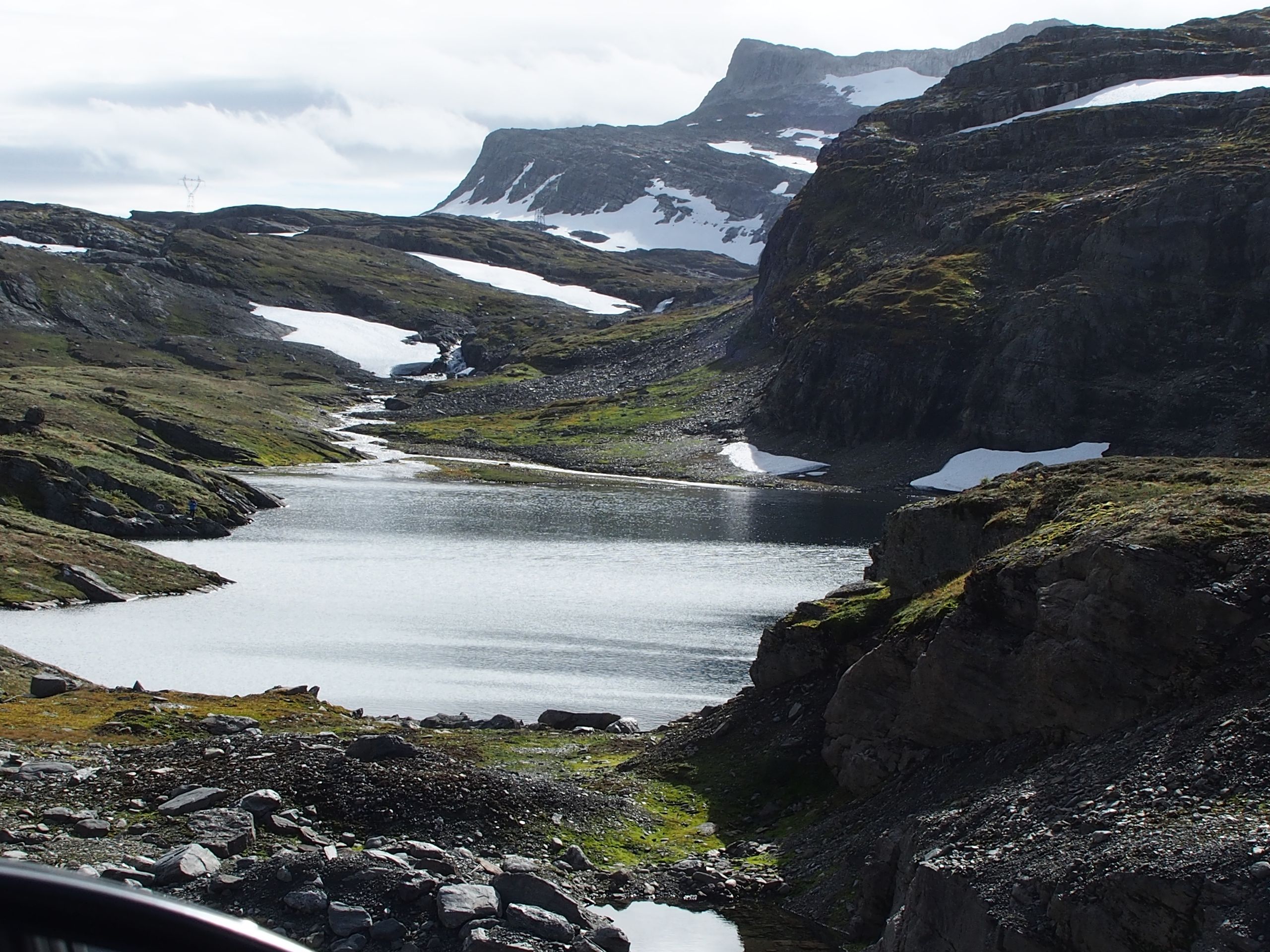
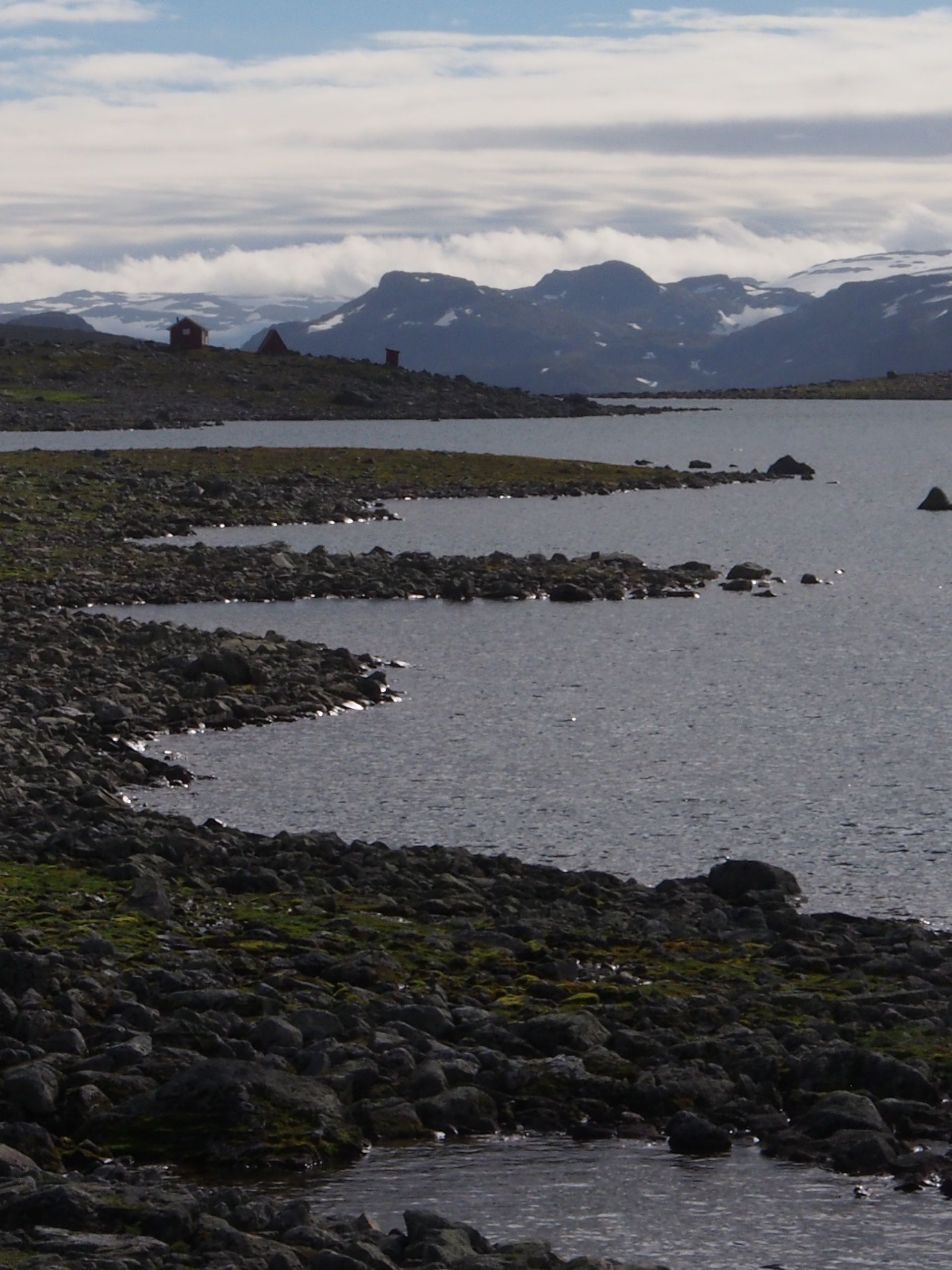
But the view is magnificent and eventually I make my way down to the Stegastein viewpoint, which has a pretty cool architecture.

It is practically a wide bridge that ends in front of a glass panel and below is the Aurlandsfjord about 100m below. Despite the approaching clouds, it is a beautiful view and I am looking forward to taking a boat trip tomorrow that will cross both the Nærøyfjord and the Aurlandsfjord.
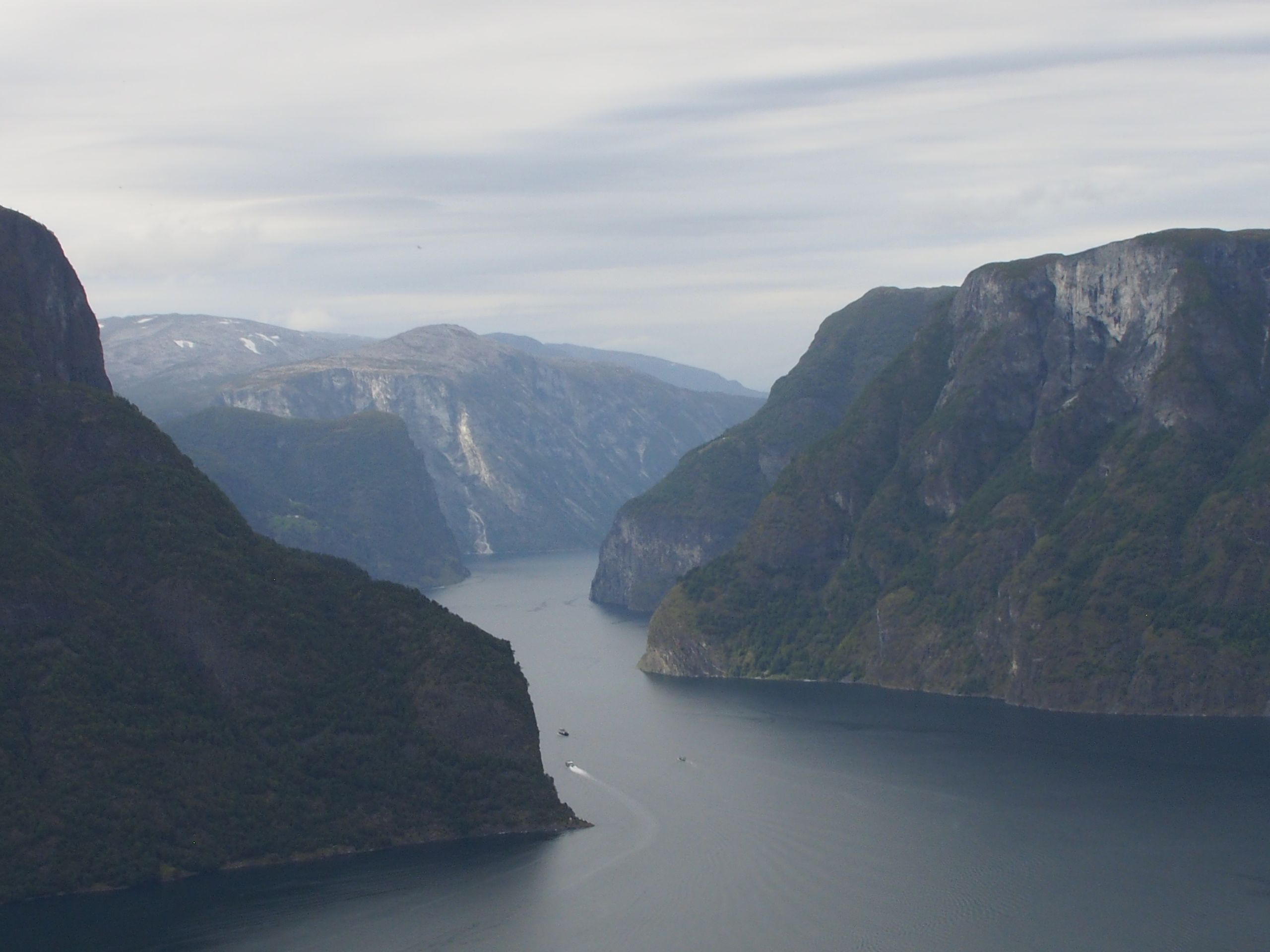
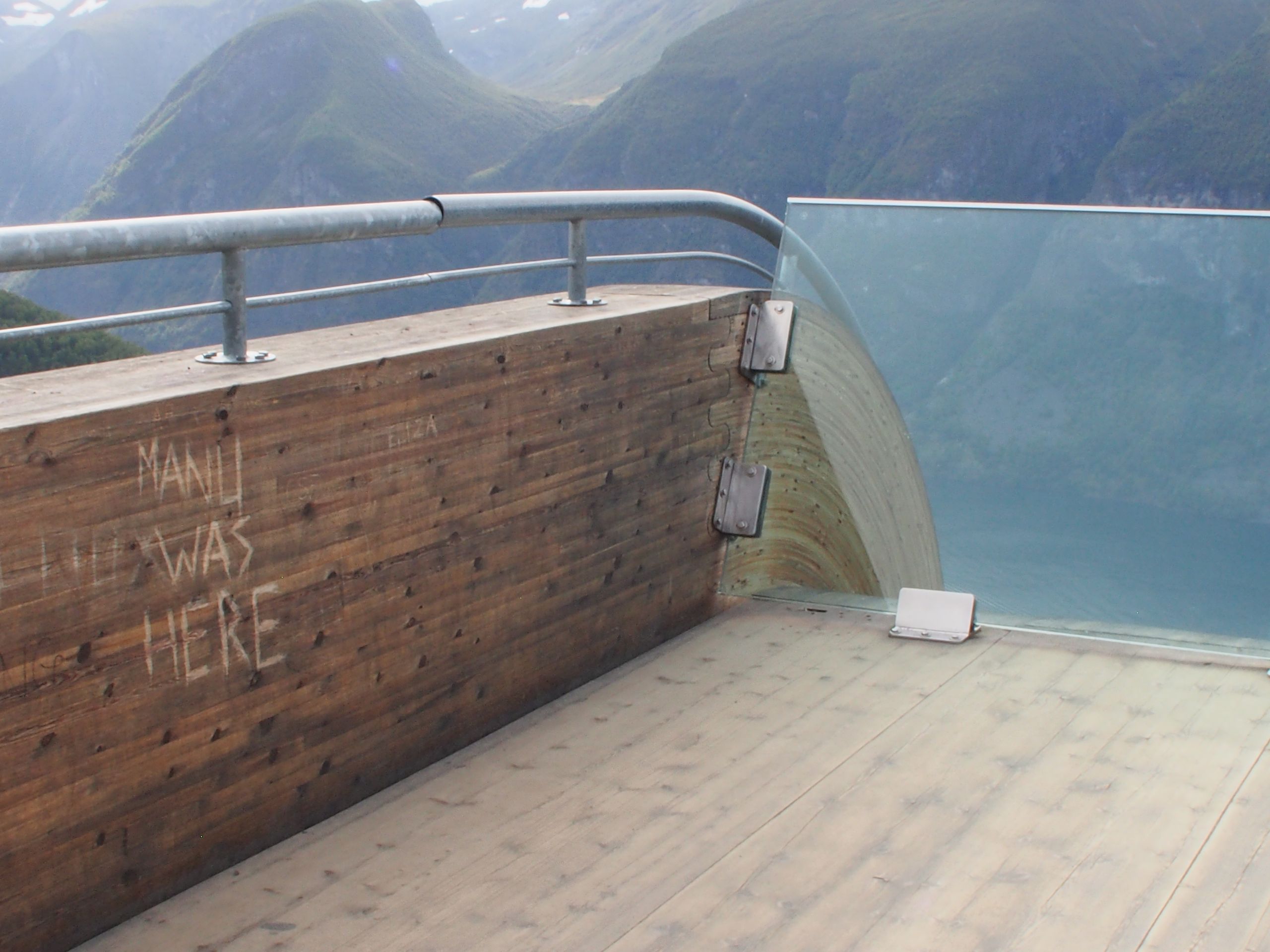
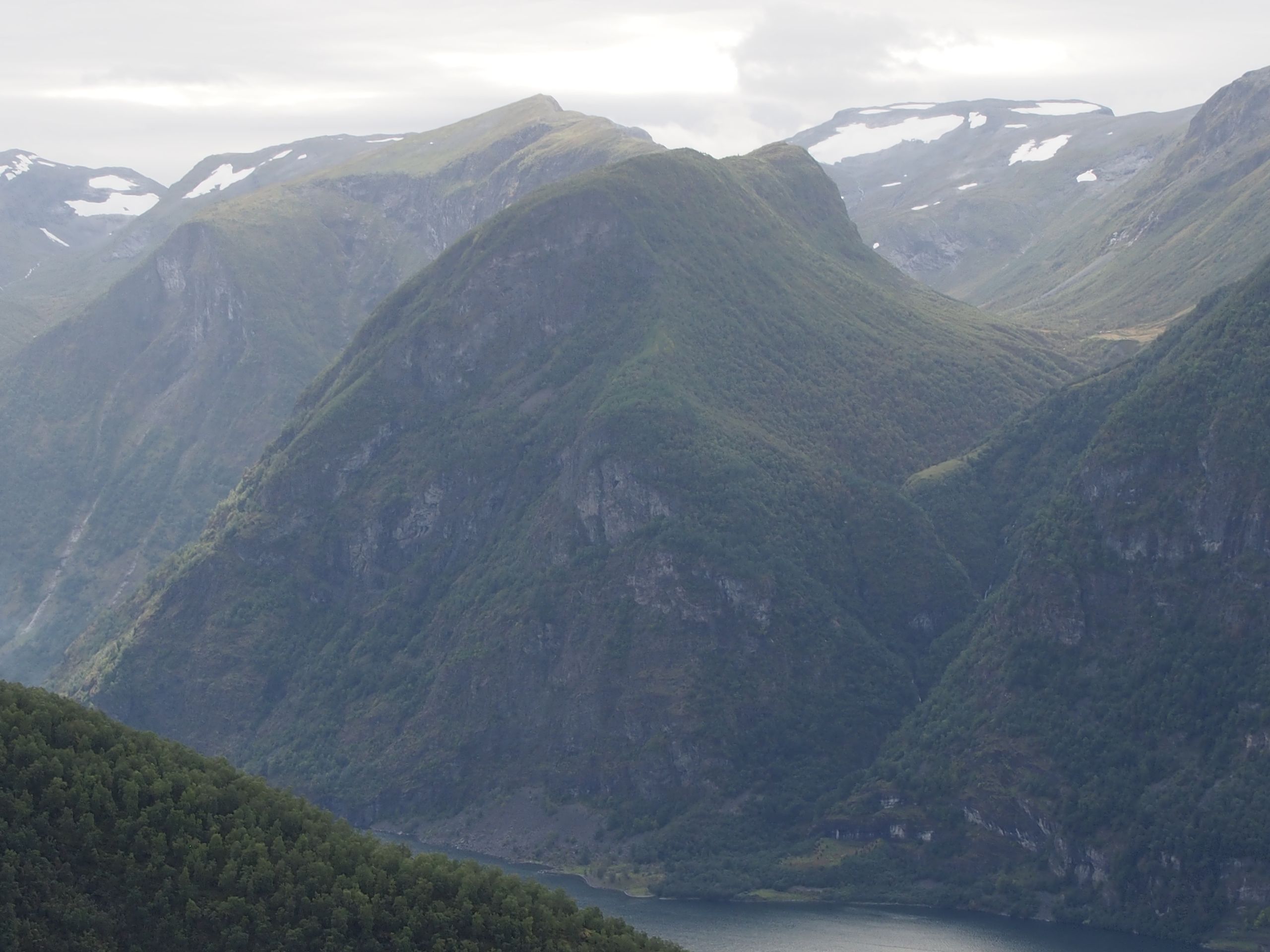
When I finally arrive in Flam, I have enough curves behind me. I have checked into a youth hostel, which charges a proud 100 EUR without breakfast for a single room with a private bathroom. For that, I have a room with bunk beds (fortunately the lower bed is wider), a rock-hard thin mattress on a board.
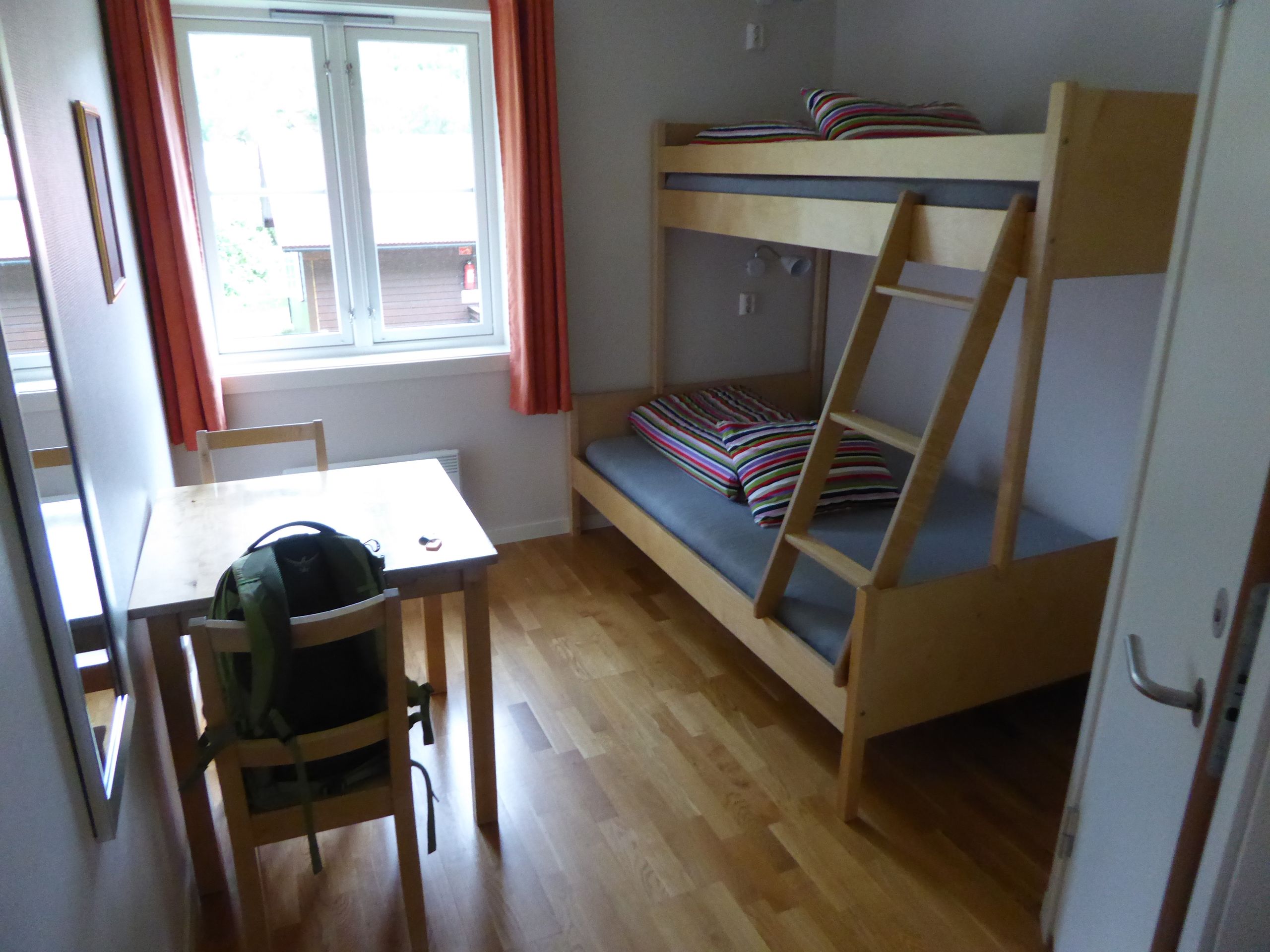
I settle into my bed and walk the 5-minute walk to the village. Actually, calling it a village is an exaggeration. It is a collection of a few houses with souvenir shops, snack stands, and more souvenir shops.
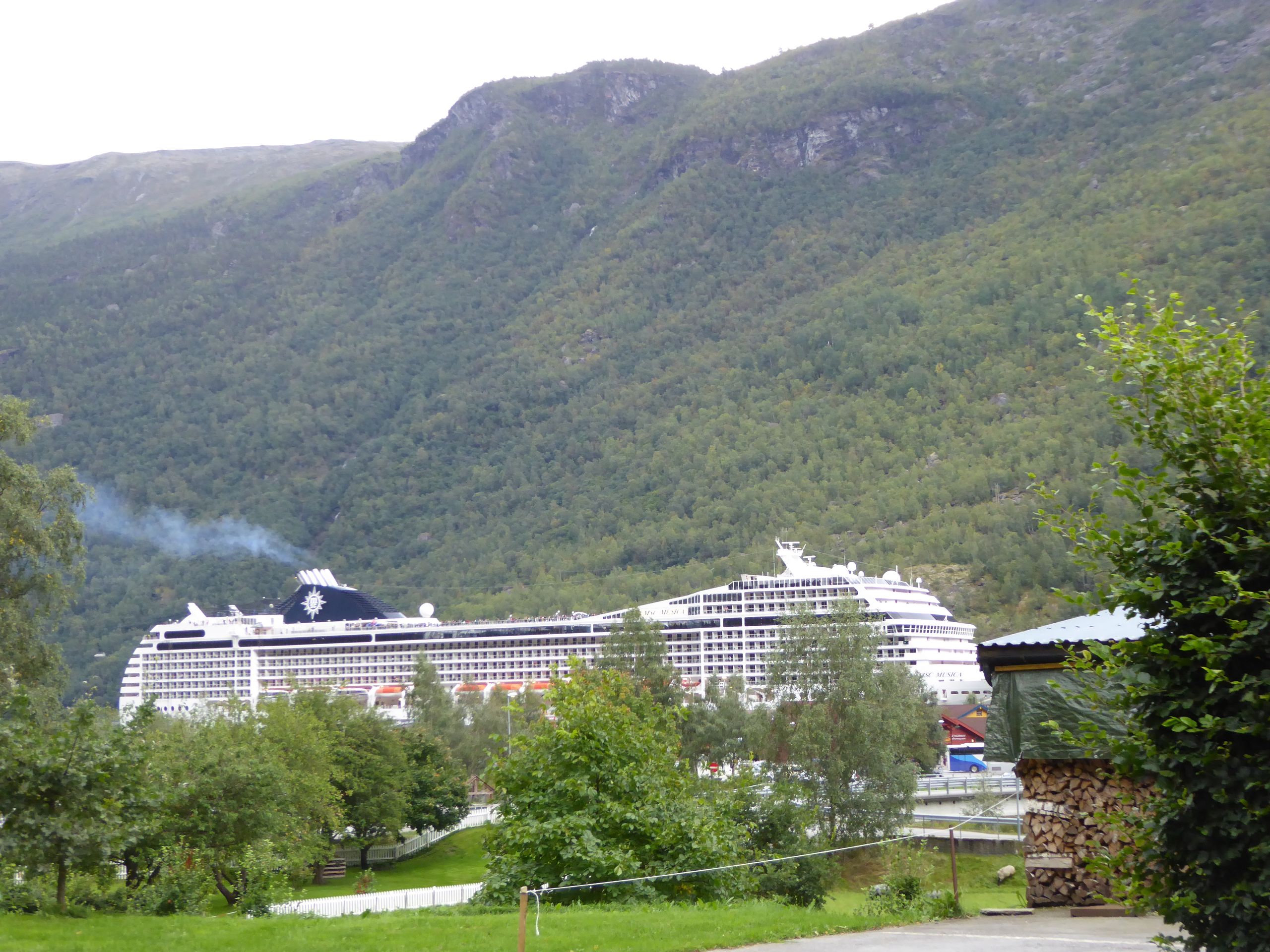
The big tourist info is almost empty because it's already past 5 pm. A huge MSC ship is just leaving, so there are probably 3,000 fewer tourists here than an hour ago. Somehow I'm hungry and now I consider getting something to eat here for the first time. At home, I had already checked the activity options in Flam and there are actually two things you can do here: On the one hand, the Flam Railway, on the other hand, a fjord cruise. Without knowing what the weather will be like, I decided to take the fjord cruise and already booked the tour for tomorrow at 11 am.
So now I would actually have time for the Flam Railway ride. The weather is foggy and it won't get better. I consider it for a moment because I don't know if it's worth it if the weather is lousy, but since I don't have anything else to do, I try to book it online. After all, for 380 crowns, which is about 40 EUR. The tourist information can only sell it to me for 440 crowns (around 50 EUR). But since the Flam Railway apparently doesn't have a booking machine optimized for smartphones, I go back to the tourist information and persuade an employee for so long until he books the ride at 6:40 pm for 380 crowns online using his computer. It's 6 pm when I walk out of there, go straight to a pizza takeaway, and have devoured the 20 EUR pizza by 6:30 pm, and at 6:35 pm I am in the Flam Railway, which is quite empty.
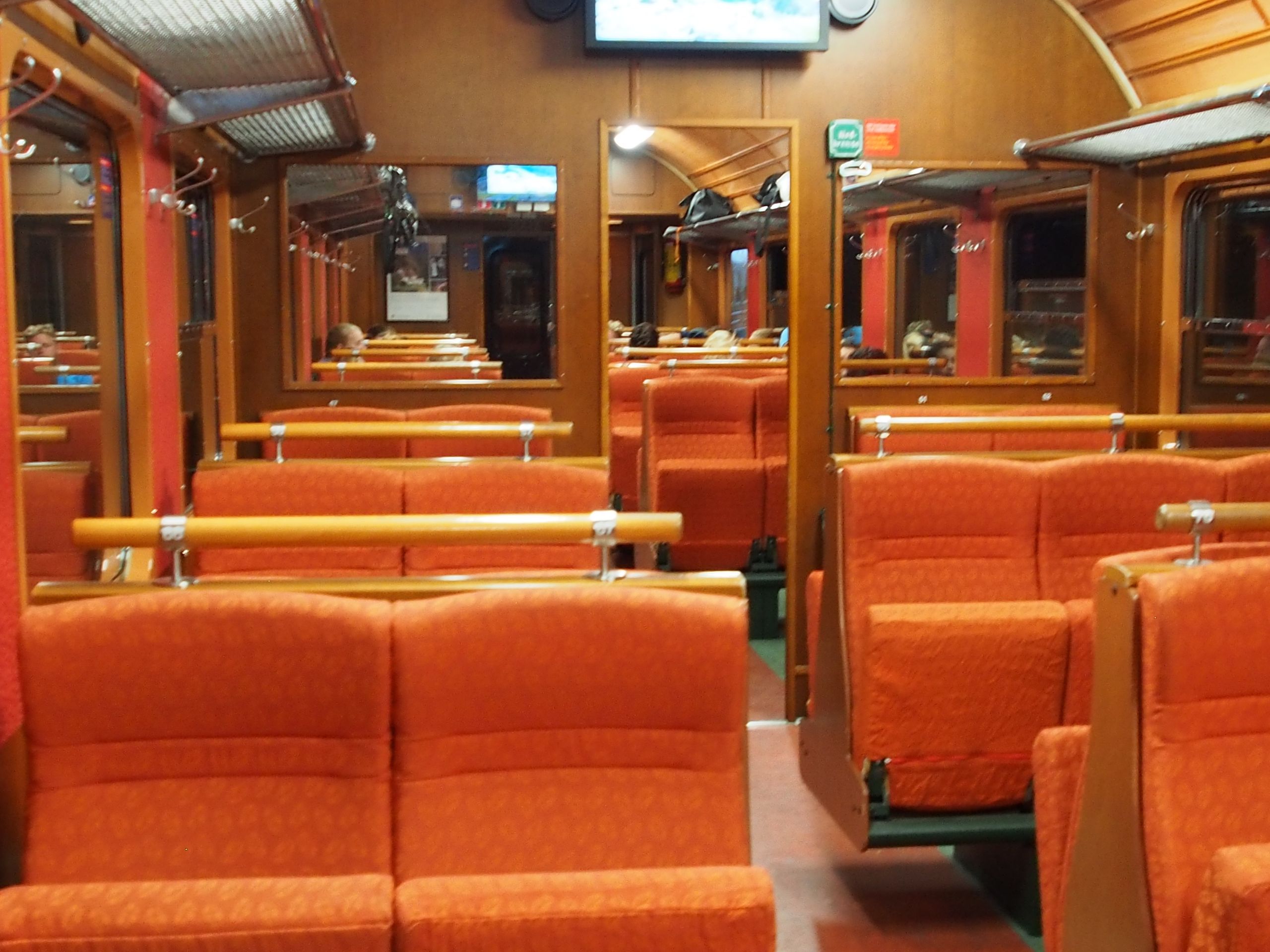
The seats are not even close to what you would expect for the price, but you can open about every other window. The ride takes one hour uphill to Myrdal at an altitude of 867m. The Flam Railway is considered one of the most beautiful train routes in the world - I can't quite understand that - I found the routes of both the White Pass Rail in Alaska and the one from Durango to Silverton in Colorado more beautiful. It is possible that one is delighted here if one has not seen anything of Norway yet, but after such routes as the Vaksvikfjellet and the Aurlandsfjellet, this is not a revelation. Of course, you look deep down into the Flam Valley (often only between tunnel struts) and see many waterfalls, but well, I saw that constantly on the entire travel route. Technically, it is certainly a great achievement and the route is one of the steepest in the world. On 80% of the route, the train has a constant gradient of 5.5% to overcome.

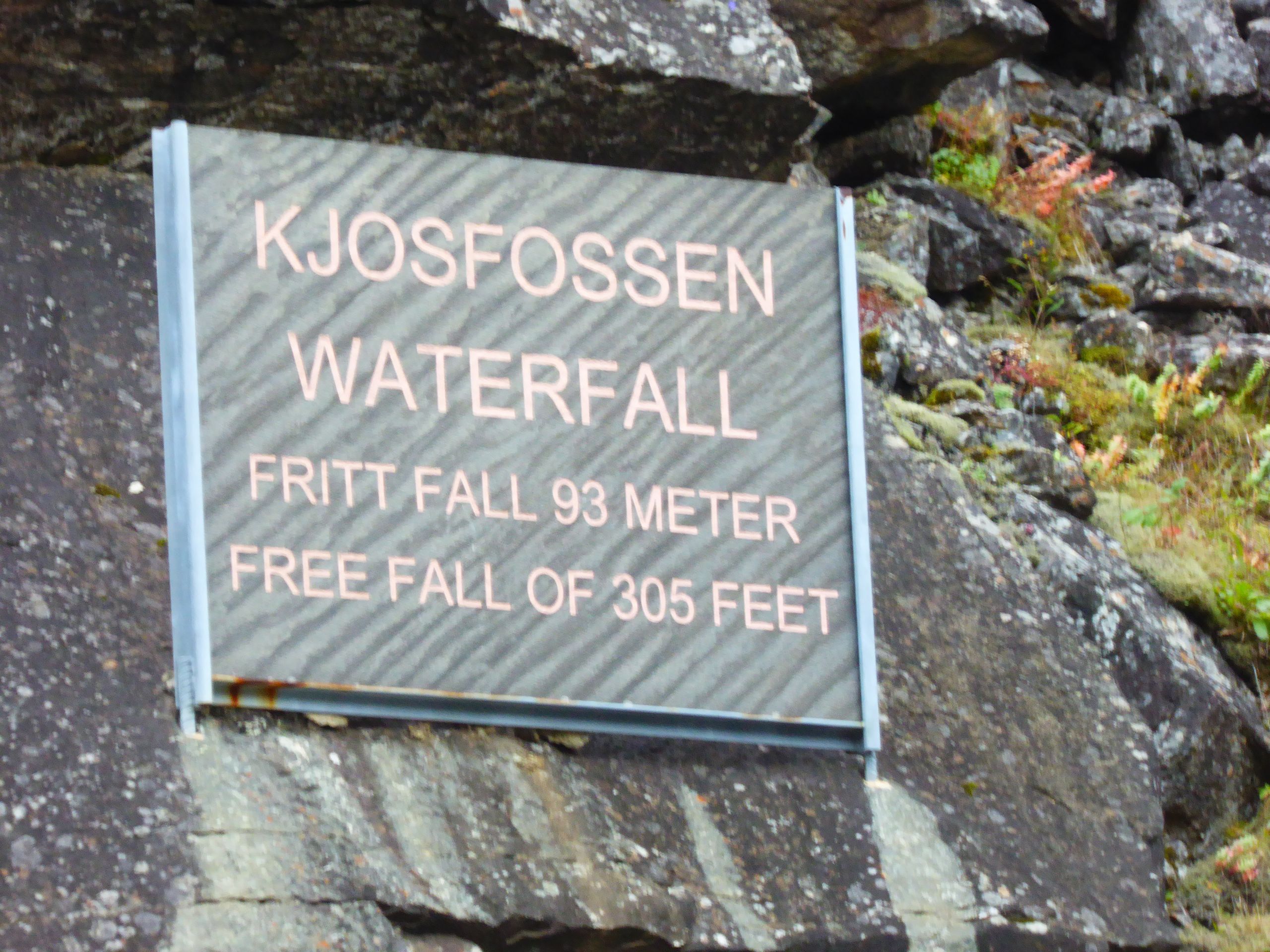
In between, you stop at the Kjosvossen Waterfall. But it's totally misty and gray - it's not really fun.

The route passes through 20 tunnels and therefore you often only have a very short view of the landscape. It would certainly be more beautiful if the weather were better.

The construction of the route took around 20 years from 1923 because the tunnels were hand-cut into the rocks. And ultimately, the enormous gradient of the route is no easy task. With the connection to the Bergen Line in Myrdal, most passengers with luggage get off here in the drizzle, to continue from there to Bergen or Oslo by Bergen Line.
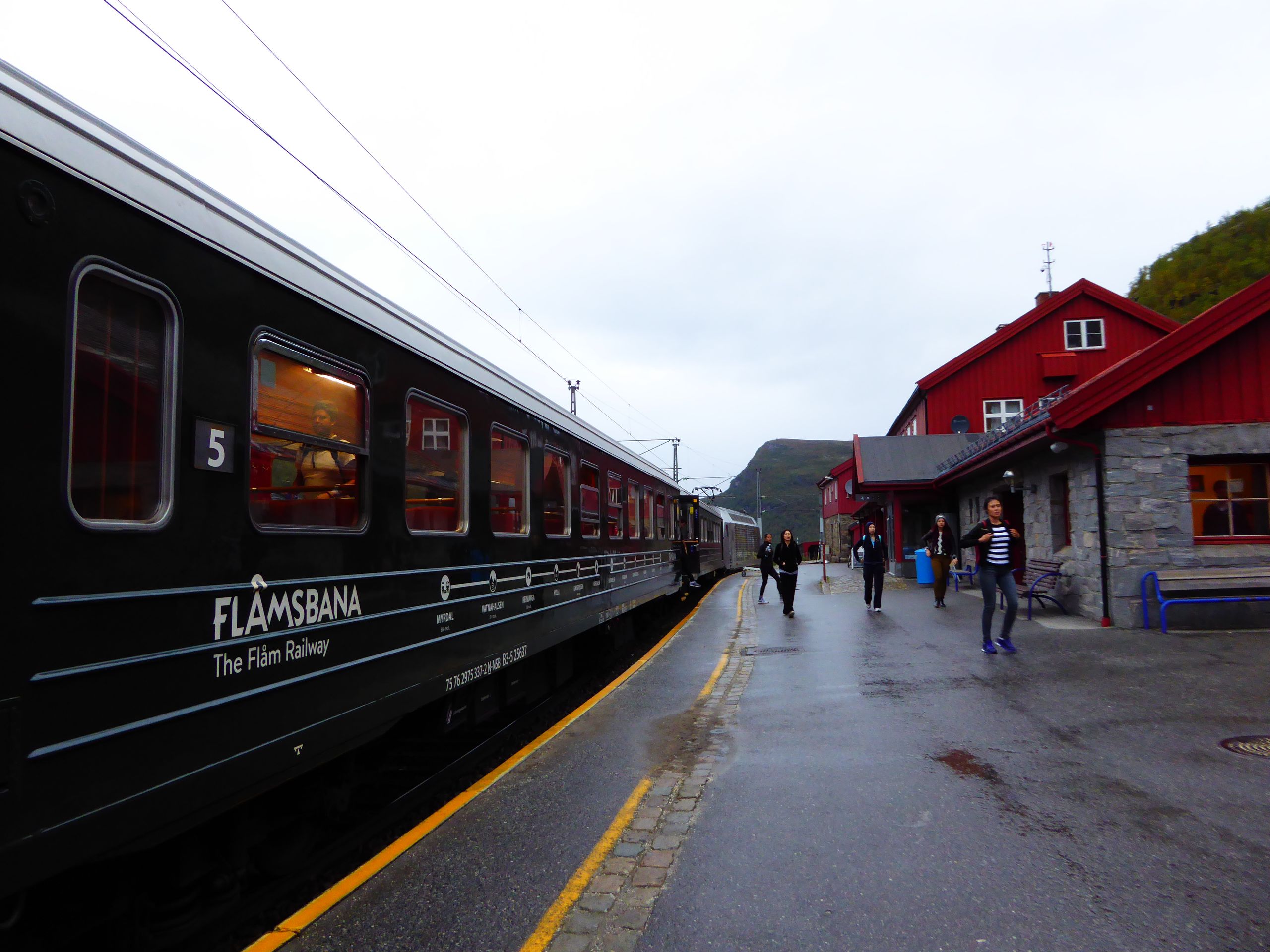
Before the Flam Railway was built, there was no connection from Myrdal to Flam or from Flam to Bergen and Oslo.
At 8:45 pm - about 2 hours after leaving Flam - I'm back in Flam. The stay in Myrdal was about 15 minutes. But even the kiosk there was already closed, so there wasn't even any coffee.
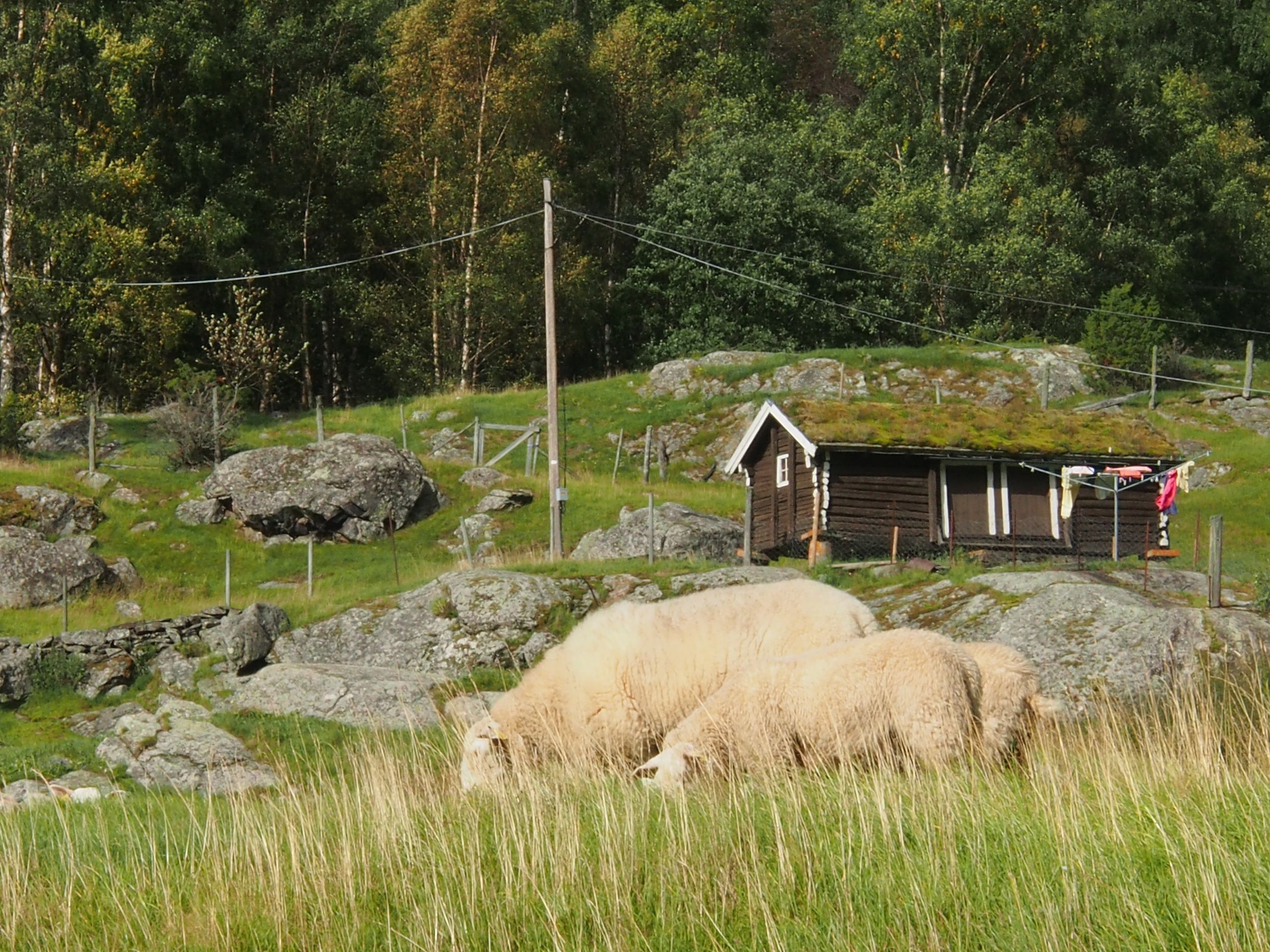
I wander back to my youth hostel, download my pictures, and can sleep with the windows open.
Iscriviti alla Newsletter
Risposta
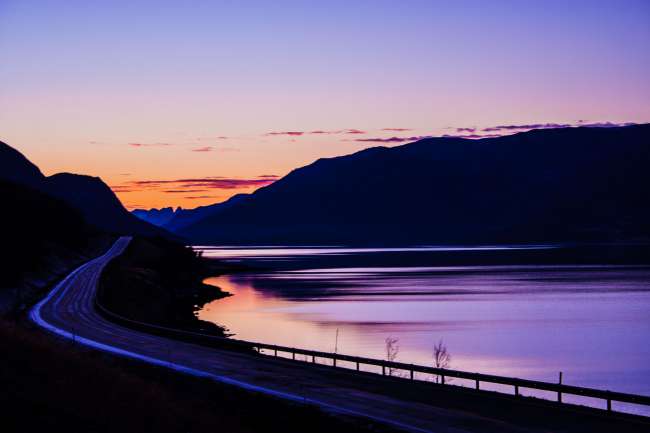
Rapporti di viaggio Norvegia
